BAMBURI CEMENT LTD
Striking the balance between quality and sustainability
SIMBA GROUP
An empowermentdriven conglomerate reaching all corners of the country

Striking the balance between quality and sustainability
An empowermentdriven conglomerate reaching all corners of the country
Kenya Wine Agencies Limited celebrates its 50-year milestone, introducing new brands and energising local communities

IN

The unrelenting demand to travel, both for business and leisure purposes, is showing no signs of slowing up, and for Outlook Publishing, the growing extent to which we are covering this industry across our existing titles has led to the launch of Outlook Travel magazine.
The major component of the publication takes the form of our Outlook Travel Guides, providing executives, avid travellers and our existing 575,000 international subscribers with the ultimate rundown of all the major economic drivers and thriving hubs across the world, with exclusive input from tourism industry associations and stakeholders – the people who know these places the best.

You can join the vast numbers of tourism sector players enjoying the exposure we provide across our digital and print platforms with a range of options, from advertising through to free-of-charge editorials, extensive social media saturation, enhanced B2B networking opportunities, and a readymade forum to attract new investment and increase exposure.
www.outlooktravelmag.com
















EDITORIAL
Editorial Director: Tom Wadlow tom.wadlow@outlookpublishing.com
Deputy Editor: Jonathan Dyble jonathan.dyble@outlookpublishing.com
PRODUCTION
Art Director: Stephen Giles steve.giles@outlookpublishing.com
Senior Designer: Devon Collins devon.collins@outlookpublishing.com
Junior Designer: Matt Loudwell matt.loudwell@outlookpublishing.com
BUSINESS
Managing Director: Ben Weaver ben.weaver@outlookpublishing.com
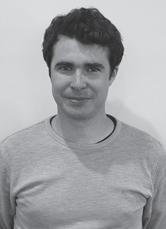
Sales Director: Nick Norris nick.norris@outlookpublishing.com
Operations Director: James Mitchell james.mitchell@outlookpublishing.com
PROJECT DIRECTOR
Joshua Mann joshua.mann@outlookpublishing.com
TRAINING & DEVELOPMENT DIRECTOR
Eddie Clinton eddie.clinton@outlookpublishing.com
HEADS OF PROJECTS
Callam Waller callam.waller@outlookpublishing.com
Vivek Valmiki vivek.valmiki@outlookpublishing.com
SALES MANAGERS
Donovan Smith donovan.smith@outlookpublishing.com
Josh Hyland josh.hyland@outlookpublishing.com
PROJECT MANAGERS
Kyle Livingstone kyle.livingstone@outlookpublishing.com
Lewis Bush lewis.bush@outlookpublishing.com
Matthew Selby matthew.selby@outlookpublishing.com
Sam Love sam.love@outlookpublishing.com
ADMINISTRATION
Finance Director: Suzanne Welsh suzanne.welsh@outlookpublishing.com
Finance Manager: Sophia Curran sophia.curran@outlookpublishing.com
Office Manager: Daniel George daniel.george@outlookpublishing.com
CONTACT
Africa Outlook
East Wing, Ground Floor, 69-75 Thorpe Road, Norwich, Norfolk, NR1 1UA, United Kingdom.
Sales: +44 (0) 1603 959 652
Editorial: +44 (0) 1603 959 657
SUBSCRIPTIONS
Tel: +44 (0) 1603 959 657
Email: tom.wadlow@outlookpublishing.com www.africaoutlookmag.com
Like us on Facebook: facebook.com/africaoutlook
Follow us on Twitter: @africa_outlook
Kenya, it is safe to say, is not renowned for being a prolific wine-producing country.
Producing the tiniest of fractions of African wine, it is dwarfed by the likes of South Africa when it comes to volumes made and exported around the world.
However, the industry is a rapidly growing one. According to figures from industry event Wine East Africa covering 2014-2017, the industry is growing more than 20 times faster than the global average, a trend driven by a growing middle-class population, increased product offerings and improved consumer awareness.
Kenya Wine Agencies Limited is playing an influential role in the latter two of these factors.
The focus of our cover feature this issue, the company has been steadily producing and distributing a growing range of quality wines along with other alcoholic and soft beverages. Lina Githuka, Managing Director, fills us in on the latest developments.
What Kenya is more documented for at the moment is an active construction sector compared to some continental counterparts.
Bamburi Cement, part of the global heavyweight LafargeHolcim, is supplying many landmark projects with its industry-leading products and services, Managing Director Seddiq Hassani explaining to us how four critical pillars are helping it to maintain a leading market position.
“Our emphasis on quality has seen the market associate us with the best products, and that trust is why we are positioned as Kenya’s foremost manufacturer of cement and concrete,” he reveals in an exclusive interview.
Bamburi is one of several construction-focussed articles in this month’s edition of Africa Outlook, with many of our other featured companies also contributing to projects in Kenya, including Gapp Architects & Urban Planners, Pharos Architects, Tilisi Developments and AMA-Kenya.
Beyond the building sphere, we delve into the world of pet retail through an interview with South Africa’s Absolute Pets, while Founder and MD of Nigerian retail conglomerate Simba Group Vinay Grover talks to us about his company’s remarkable rise.
Before this you will find a Q&A with Marta Krupinska, Head of Google for Startups UK, who explains how the global tech giant is investing in the brightest African entrepreneurs, and an interview with Kweku Bedu-Addo, CEO of Standard Chartered Southern Africa, on the fight against the illegal wildlife trade.
Enjoy the read!
Tom Wadlow Editorial Director, Outlook Publishing16
144
146 REGULARS
6 NEWS
Around Africa in seven stories
8 EXPERT EYE
Inclusive finance in Africa: The policy and regulatory challenges




BUSINESS INSIGHT
10 Economy
Immersed in Entrepreneurship
A Q&A with Marta Krupinska, Head of Google for Startups UK

14 Tourism
Trending Travel
Analysing Africa’s tourism prospects, from wellness to bleisure travel


TOPICAL FOCUS
16 Corporate Social Responsibility
CSR in the Wild
How Standard Chartered is leading the war on wildlife crime
EVENT FOCUS
144 Securex West Africa
The region’s dedicated security showcase
146 MMEC 2020
Extractive industry in Mozambique takes centre stage
148 Botswana Mining & Energy Expo and Conference
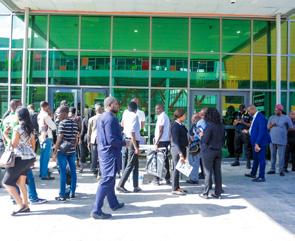

The foremost Southern African forum for the global mining and energy community
150 THE FINAL WORD
What, in your view, makes a successful business?
18
Tell us your story and we’ll tell the world
FOOD & DRINK
20 Kenya Wine Agencies
Limited
Improving with Age
Investing in the future of the nation’s beverage industry
CONSTRUCTION
30 Bamburi Cement Ltd
The Infrastructure Enabler
Striking the balance between quality and sustainability

44 Dangote Cement
Ethiopia PLC
Building a Brighter Future
Catalysing economic confidence through first-class cement


54 Daffonchio Architects
The Qualitative Architect
Delivering design with a personal touch
58 Vharanani Properties
Building Happy Communities
Restoring dignity through infrastructure development
64 GAPP Architects & Urban Designers
The Architecture of Collaboration
Working across borders to enhance the built environment
72 Aleem Manji Architects (AMA-Kenya)
Great Design Meets Great Service
Helping to shape Kenya’s built environment
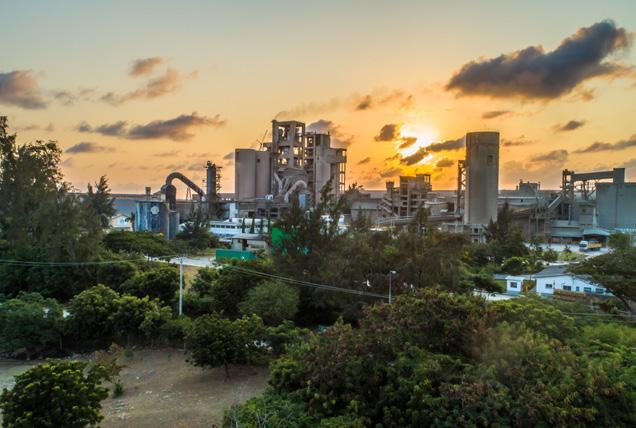
78 Pharos Architects
The Sustainable Pragmatist
Sustainability beyond the gimmicks
84 Tilisi Developments
Infrastructure Inspired
An urban experience in a serene location
88 World of Windows
One Size Doesn’t Fit All
Meeting the needs of major projects
94 FWJK
The Value-driven Visionary Disrupting the property development market
SUPPLY CHAIN
108 BHL Group
Logistics Uplifted
Transforming transport in Sub-Saharan Africa
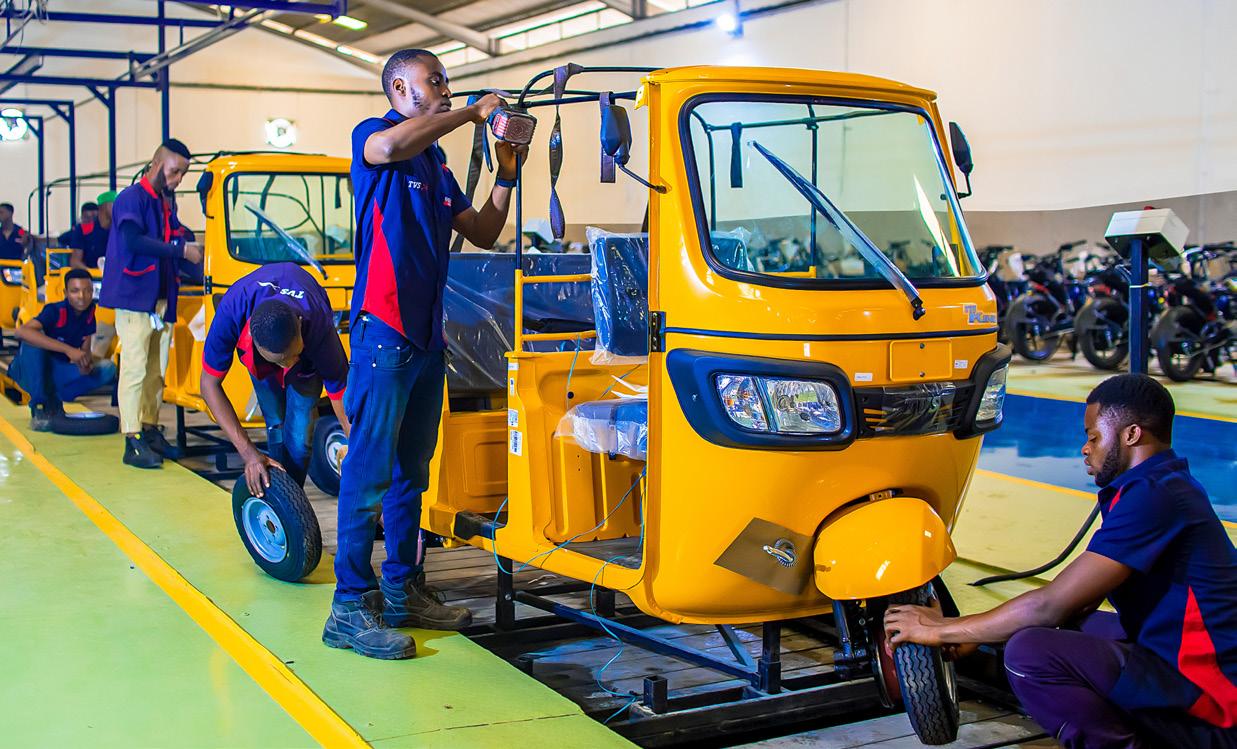
RETAIL
118 Simba Group
Fit for Nigeria
An empowerment-driven conglomerate reaching all corners of the country
130 Absolute Pets
For the Love of Pets
South Africa’s uncompromising champion of pet care TECHNOLOGY
136

ZAMBIA’S ECONOMY is set to grow by more than three percent this year. This is an increase from growth of around two percent in 2019, according to Finance Minister Bwalya Ng’andu. The fiscal deficit will remain elevated as the government borrows more money to fund national spending.
VENTURE CAPITAL firm TLcom Capital has recently closed its Tide Africa Fund after it reached $71 million. Over the next 18 months it is looking to make up to 12 startup investments.

According to TLcom Managing Partner Maurizio Caio, the group is looking to invest in tech-enabled, revenue-driven ventures in Africa from seed stage to series B.
“We’re rather sector agnostic, but right now we are looking at companies that are more infrastructure type tech rather than super commoditised things like consumer lending,” he said.
The company intends to focus on startups working in Africa’s three largest tech hubs – Nigeria, Kenya and South Africa – but is also interested in rising markets like Ethiopia.
Economic growth in Africa’s second largest copper producing country has been hampered by electricity shortages, because of the effects of drought on generating hydropower.
The governmental authorities of Zambia are intending to to focus on increasing green energy capacity in order to plug this gap.
MTN GROUP anticipates full-year headline earnings to rise as much as 50 percent.
The group, founded with the help of the South African government in 1994, has been touted as one of the country’s greatest corporate success stories. However, growth has been slowed by regulatory fines in recent

years. This includes a $1.1 million fine for failing to cut off over five million unregistered sim cards.
MTN will report its 2019 results on March 11. It said headline earnings per share (HEPS) will be within a range of 438 to 506 cents on the IFRS 16 accounting basis that was adopted at the beginning of the year.
THE UN Economic Commission for Africa and investment firm PIMCO – in association with Africa50, the Development Bank of Southern Africa and Nigeria Sovereign Investment Fund – recently announced the SDG 7 Initiative, a program designed to bring more clean energy to Africa.
The project is named for its link to the seventh Sustainable Development Goal for clean and affordable energy. It has already begun scoping out clean energy investment opportunities in several countries, including Senegal, Morocco and South Africa.
The overall objective of the initiative
EAST AFRICA is maintaining strong economic growth, with Tanzania and Rwanda emerging in the top 10 fastest growing economies across the globe. The entire East African region registered an average five percent growth last year, according to the 2020 African Economic Outlook report from the
is to add an extra 10,000 MW to Africa’s electricity in the form of clean energy by 2025 – this includes solar, wind, hydro and geothermal energy.

African Development Bank. Rwanda posted the highest growth rate at 8.7 percent, followed by Ethiopia at 7.4 percent – Tanzania registered growth of 6.8 percent.
According to the report, government policies aimed at improving the business and investment climate are still a work in progress. Attention is especially needed in the areas of tax policy and affordable finance.

However, it indicated key improvements in macroeconomic stability, ICT adoption and business dynamism.
revealed plans to build Africa’s largest airport within six months, at a cost of around $5 billion.
This will help the ascendancy of its national carrier, Ethiopian Airlines, currently the most profitable on the continent – the airline reported a 25 percent increase in profits to $260 million in 2018-2019.
The new airport will be located 70 kilometres from the existing Bole International Airport in the capital, Addis Ababa. It will have the capacity to handle up to 100 million passengers a year. This would give it a larger capacity than London Heathrow (Europe’s busiest Airport), and Dubai International, which offers the most international flights.
THE NIGERIAN government recently unveiled a new visa policy, seeking to attract more foreign investors and boost trade in the country.
New regulations provide a visa on arrival for citizens of African Union member countries, and a new e-visa for other tourists.
The Nigerian President, Muhammadu Buhari, said: “This new Visa Policy will advance our goal of building a globally competitive economy, by helping attract innovation and specialised skills and knowledge from abroad, to complement locally available ones. We are sending a message to the world that Nigeria is open for business.”
Over the past decade, regulators in Sub-Saharan Africa have played an important role in transforming the financial services industry. In countries like Tanzania, so-called ‘test and learn’ regulatory approaches have allowed mobile money operators to roll out their services, and provided regulators with an opportunity to learn more about products before drafting dedicated regulations. This has enabled operators to scale mobile money in a controlled environment, leading to widespread adoption of an innovative product and driving remarkable rates of account ownership in the region. However, as mobile money consolidates, regulators and policymakers will need to tackle several challenges to expand access to unbanked populations, and to broaden and diversify the types of product that can improve the financial lives of African users.
This year, the Global Microscope found that Rwanda, South Africa and Tanzania offer the most conducive environments for financial inclusion in Sub-Saharan Africa. The index evaluates financial inclusion across five categories: government and policy support, stability and integrity, products
and outlets, consumer protection and infrastructure. Overall, the region performed best in the stability and integrity category, which assesses the regulation, supervision and monitoring of financial service providers (including mobile money) that serve low- and middle-income populations to ensure prudential stability and financial integrity.
Compared with last year’s scores, The Economist Intelligence Unit (The EIU) found improvements in the consumer protection category, reflecting the work undertaken in Rwanda, Uganda and Kenya to update data protection laws and build enforcement
capacity to respond to challenges in the digital era. Uganda’s Data Protection and Privacy Act became law in February 2019, and Kenya’s data protection bill – which is modelled on the European Union’s General Data Protection Regulation – is awaiting confirmation. In Rwanda, the newly established Information Society Authority is implementing data and cybersecurity laws and shares data protection and privacy enforcement responsibilities for financial service providers with the Central Bank.
Monica Ballesteros is a Consultant for the Public Policy practice of The Economist Intelligence Unit. She is the project manager of the Global Microscope, a benchmarking index that assesses the regulatory and policy environment for financial inclusion in 55 countries around the world, including 15 countries in Sub-Saharan Africa.
However, Sub-Saharan Africa still lags behind Latin America, East Asia and South Asia in the overall rankings, with opportunities for improvement in three key areas. First, the region received its lowest scores in the products and outlets category, which assesses the regulation of specific products and outlets that reach low-income populations, such as inclusive insurance and credit.
Prior to her time at The EIU, Ballesteros was part of Mexico’s Ministry of Finance G20 team where she focused on the financial inclusion agenda. She holds a master’s degree in International Affairs from the Fletcher School of Law and Diplomacy at Tufts University, where she specialised in international finance and development economics, and a bachelor’s degree in Political Science from Wellesley College.
For example, the Global Microscope highlights the importance of using regulation to restrict excessive lending and prevent crises of over-indebtedness. This year, the Global Microscope report discusses this issue in the context of Kenya, where the proliferation of mobile

credit and a lack of regulation have led to excessive borrowing by hundreds of thousands of Kenyans, with over 500,000 customers negatively listed in credit reference bureaus for debts from small digital credits. As mobile money consolidates and other types of digital financial services proliferate, it is important that regulators and policymakers harness this potential and mitigate new risks to encourage the use of products that can help Africans lead healthier and more dynamic financial lives.
Second, only three of the 15 Sub-Saharan African countries included in the Global Microscope have established a fintech regulatory working group: Rwanda, Sierra Leone and Uganda (in 2019, Rwanda and Sierra Leone established formal regulatory sandboxes to test fintech innovations in a controlled environment). Regulators should continue to work closely with financial innovators to replicate the success of the ‘test and learn’ approach, particularly as Sub-Saharan Africa has
established itself as a hub for inclusive fintech innovations.



Finally, as the region focuses on the expansion of digital financial services, it is important that countries create the necessary infrastructure to ensure that this growth is equitable. Improved connectivity infrastructure is needed to reach users in the last mile, particularly in rural areas. Our findings also suggest that countries that achieve equitable access to the
internet and mobile phones between men and women are more successful at reducing the gender gap in access to financial services. In addition to physical infrastructure, the Global Microscope identifies other types of enabling infrastructure that governments can strengthen to improve access to financial services, including national identification and public credit bureaus.
The Global Microscope is produced by The Economist Intelligence Unit (EIU), with financial support and policy advice from leading organisations in the field, including the Bill & Melinda Gates Foundation, the Center for Financial Inclusion at Accion, IDB LAB and IDB Invest. First published in 2007, the Microscope is the global standard for financial inclusion policy in developing economies. The Global Microscope 2019 report and benchmarking model are available free of charge on The Economist Intelligence Unit’s website at: www.eiu.com/microscope2019.
‘THIS YEAR, THE GLOBAL MICROSCOPE FOUND THAT RWANDA, SOUTH AFRICA AND TANZANIA OFFER THE MOST CONDUCIVE ENVIRONMENTS FOR FINANCIAL INCLUSION IN SUB-SAHARAN AFRICA’
Startups and small businesses are often referred to as the lifeblood of local, national and regional economies, and for good reason.
According to TNW’s 2019 Global Startup Ecosystem Report, the global startup economy is worth nearly $3 trillion, some 20 percent more than it was in 2017 and bigger than the GDP
Edited by: Tom Wadlow
of sizeable economies such as the UK, France and Brazil.
But this does not mean that setting up a business has become any easier. On the contrary, around nine in 10 startups result in failure, largely because they run before they can walk and scale up too quickly, a misjudgement that is said to lead to 90 percent

Google is leveraging its knowledge and resource base to empower startup enterprise across the African continent, its dedicated startup division serving as a vital facilitator
of startup collapses.
Despite this, the year 2019 was a record-breaking one for African tech startups, with 311 companies securing $491.6 million worth of investment according to data from Disrupt Africa, with Kenya and Nigeria proving to be particularly active markets.
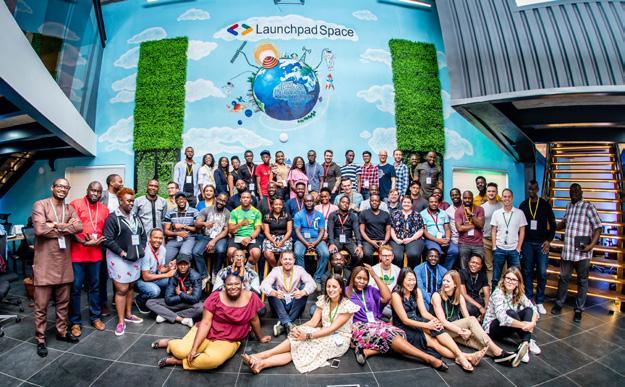
Marta Krupinska knows better
than most the nuances of starting a business from scratch. Now Head of Google Startups UK, the tech giant’s startup accelerator division, the Polish entrepreneur is heavily invested in supporting budding African businessmen and women.
Here, she answers our questions on her own business journey and how Google for Startups is helping to empower local enterprise.
Africa Outlook (AfO): Tell me a bit about your background. What inspired you to become an entrepreneur?
Marta Krupinska (MK): I was born in Krakow, Poland, and that’s where I started my first startup, a social media platform, back in 2007. I don’t have a better answer to ‘what inspired me’ beyond my best friend suggesting ‘we start a website’.
Digital opportunities were vast and largely untapped, and we were excited to be just a bunch of young people in Central Eastern Europe building a product for the global audience. It felt like the internet was allowing us to cross and defy borders. As it so often does with startups, we couldn’t make or raise enough money and had to fold in 2011, which was a humbling and valuable experience that led me to move to New York City to look for the next step.
I came to London in 2012 and co-founded Azimo, a global money transfer platform, building on my own experiences as a migrant. This business grew to millions of customers all around the world and 170-plus employees in London and Krakow.
AfO: How did you get involved with Google for Startups?
MK: I’ve experienced first-hand how valuable the support of Google can be when building a startup – at Azimo I’ve been working closely with Google since 2014.
2018 was a particularly intense year for me. I had stepped down from Azimo and co-founded a new fintech startup, FreeUp, and realised once again how difficult it is, especially if one doesn’t follow the stereotypical model of the Ivy League educated white beta male. When Google for Startups reached out, I saw it as a tremendous opportunity to use the resources of the tech giant to level the playing field for founders.
AfO: Generally, how important do you think startups are or will be to Africa’s ongoing socioeconomic development? Has their significance increased over recent years?
MK: With the population of Africa set to double from 1.2 billion to 2.5 billion

by 2050, there’s never been a more important time to support untapped markets to find solutions to issues faced.
We’re seeing a tech boom as their ecosystem continues to grow, bringing with it a wealth of opportunity. In 2018, African tech startups raised approx. $725.6 million in funding, which almost doubled in 2019, with the total being $1.34 billion.
This represents astonishing year-onyear growth in funding raised by tech startups on the continent, with more than 350 different investors putting money in and 91 startups in 2019. Evidently, startups are already positively impacting Africa’s socioeconomic development and I have no doubt they will continue to do so with the right support in the future.
AfO: Introduce us to the Immersion programme. What are its main objectives?
MK: Google for Startups UK launched its first ever 12-week Africa Immersion cohort in September 2019, and the aim of the programme was to connect high potential early stage startups from Africa to the London venture capital ecosystem, with the dedicated support of the Google for Startups team.

10 founders were chosen for the programme and the societal issues being tackled by them are vast. From the inclusion of African DNA in pharmaceutical research (54gene) to extending access to clean cooking fuel (PayGo Energy), and from enabling the creation of digital addresses to support the four billion people across emerging markets who do not have a physical address (OkHi) to powering financial cooperatives so they can immediately meet their members’ needs (Kwara), we had the absolute honour of working with some exceptional entrepreneurs who are tackling big global issues with tech.
The objective was to help these talented founders grow their startups and propel their missions to drive socioeconomic impact in their operating countries. Throughout the 12 weeks, founders were given access to Google tools, expertise and mentoring to provide support where it’s most needed. This included help to boost sales, advising on marketing strategies, troubleshooting a product issue and even support with fundraising. After one week of full-time support in London, the founders returned to their home countries and continued the programme in tandem with growing their businesses. In November, we hosted a graduation ceremony for them in Lagos, Nigeria, celebrating their amazing achievements.
AfO: What happens now the founder graduation event is over?
MK: The founders will continue to work extremely closely with the Google for Startups team. Whilst the 12-week programme allows us to offer the best of Google’s expertise and tools within a concentrated time frame, we continue to support and collaborate with all of our founders once their graduation is complete.
On January 30 in London we got together at the Google for Startups campus with 30 angel syndicates and VC funds from the UK, Germa-
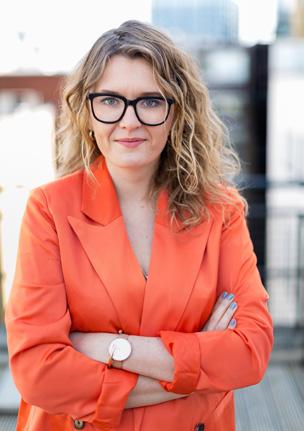
“THIS IS THE OPPORTUNE MOMENT FOR AMBITIOUS AND TALENTED FOUNDERS TO MAKE THEIR MARK AND HELP SHAPE THE FUTURE OF THE CONTINENT”Marta Krupinska
54GENE (NIGERIA) – African DNA makes up only two percent of genetic research material used in pharmaceutical research. Founded in 2019, 54gene is creating the world’s first and largest pan-African biobank. In June, 54gene raised $4.5 million from Y Combinator and others.
FIELDINSIGHT (NIGERIA) – Fieldinsight helps to collect data in a structured manner using mobile and IoT devices. It then aggregates and represents this data through visualisations to help businesses make the best decisions.
KWARA (KENYA) – Kwara powers financial cooperatives with technology so they can meet their members needs instantly.
OKHI (KENYA) – Four billion people across emerging markets do not have a physical address costing economies $175 billion a year. Based in Nairobi, OkHi creates digital addresses for people, which they can use for free to access reliable business services.
PAPS (SENEGAL) – Paps is an African logistics startup focused on the last mile delivery and domestic markets, with strong client care orientation, allowing live tracking, intelligent address systems and automatic dispatch.
PIGGYVEST (NIGERIA) – Piggyvest is an automated savings and investments platform that helps Nigerians save little amounts of money periodically, and then invest those funds for competitive returns.
PAYGO ENERGY (KENYA) – PayGo Energy’s connected home gas meter links to a global IoT-based infrastructure for cooking gas delivery within high-density, high-demand urban communities — changing the entire cooking experience for households and unlocking access to clean cooking for a billion people.
THANKUCASH (NIGERIA) – ThankUCash is an analytics and rewards platform built to enable banks and businesses in Africa acquire, reward and retain loyal customers.
THRIVE AGRIC (NIGERIA) – Thrive Agric provides farmers with access to finance, data-driven advisory and access to a market upon harvest.

VOYC (SOUTH AFRICA) – Voyc is on a mission to accelerate the world’s transition towards customer-centricity by making it easy for companies to understand their customers.
ny, Nigeria, Kenya and South Africa, with whom we went in detail through investment opportunities in Africa, with special focus on the 10 companies who went through our UK Immersion programme.
The response has been fantastic –the talent, conviction and focus of the founders really stand out to investors, and companies like PiggyVest (savings
and microinvestments in Nigeria), OkHi (digital addressing platform in Kenya) or Voyc.ai (AI regulatory compliance platform from South Africa) received lots of interest.
AfO: Are you looking to expand the programme and support more African startups in the future?
MK: Absolutely. Google has been very
active in Africa, running accelerators on the continent since 2018, and this commitment has now been strengthened by the opening of Google Dev Space in Lagos in January 2020. Google leadership, myself and the UK team were so thrilled with the results of last year’s programme, that we’re already planning to run the same initiative in London in 2021.
AfO: Are you optimistic about the future role such companies can have in shaping the future of the African continent?
MK: This is the opportune moment for ambitious and talented founders to make their mark and help shape the future of the continent.
Startups have the power to take an innovative idea and turn this into reality, provided they have the financial backing and support required to nurture their thinking and grow their teams. Their role in tackling some of the biggest issues Africa faces is vital, and I constantly feel inspired by their desire and relentless efforts to do so.
I felt their optimism in Lagos during the graduation ceremony, which was truly a once in a lifetime opportunity. Collectively, we recognise the potential and are committed to investing in Africa’s continued success.
We created this programme because we believe that London became the Silicon Valley of Europe because of its access to funding, talent and startup experience. At the same time, we recognise that there is an incredible wealth of passion, talent and opportunity in less developed startup ecosystems.
We want to help exceptional African founders and their teams connect to the ecosystem in London and tap into the opportunities here while they continue growing their businesses in their home countries and creating local success stories.
Tourism is a growing sector in many African countries.
According to the Latitude Hotels Group’s 2019 CSR Report, in 2018 tourism was the highest foreign exchange earner in Uganda, representing 18.5 percent of the total export. Meanwhile, in Zambia it was the fastest growing economic sector – according to the World Travel and Tourism Council, international visitor spend represented seven percent of the country’s export total.
“Tourism in Africa enjoys continuous growth, partly made possible by prevailing peace conditions in many countries, air accessibility and diversity of attractions supporting investments,” commented Judy Kepher-Gona, Executive Director of Sustainable Travel & Tourism Agenda. For example, 2020 will see several new direct flight routes opening up between Africa and the US, such as Rwanda Air’s direct flight from New York to Kigali.
Writer: Dani Redd
However, Kepher-Gona stresses the importance of taking community wellbeing and sustainable development into account when expanding tourism provision. It will also be important for Africa to harness global tourism trends to keep on pulling in the crowds.
One such global trend is ‘transformational travel’ – a desire for meaningful connections with people, wildlife and the environment while travelling. According to Sherwin Banda, President of African Travel Inc., Africa is well-placed to deliver such experiences. “African Travel focuses on making sure every trip has a positive impact, whether it’s engaging with wildlife through an
elephant rehabilitation programme, tracking gorillas responsibly in Rwanda or Uganda, or trailblazing new experiences for travellers to engage with people and wildlife,” he said.
Africa is also well-placed to capitalise on a recent global interest in walking holidays, which are an environmentally friendly way of discovering a country. According to tourism insiders, more active safari experiences will be trending in 2020.
“Tourists are moving away from being sedentary, only sitting in a game vehicle, watching, seeing. They also want an immersive and interactive programme where they can meet local communities and learn about their culture,” said Murray Gardiner, CEO at Giltedge Africa.
Walking safaris in Kenya and Uganda will be increasingly popular in 2020, as will visiting more off-the-beaten track locations on active excursions, such as horseback riding.
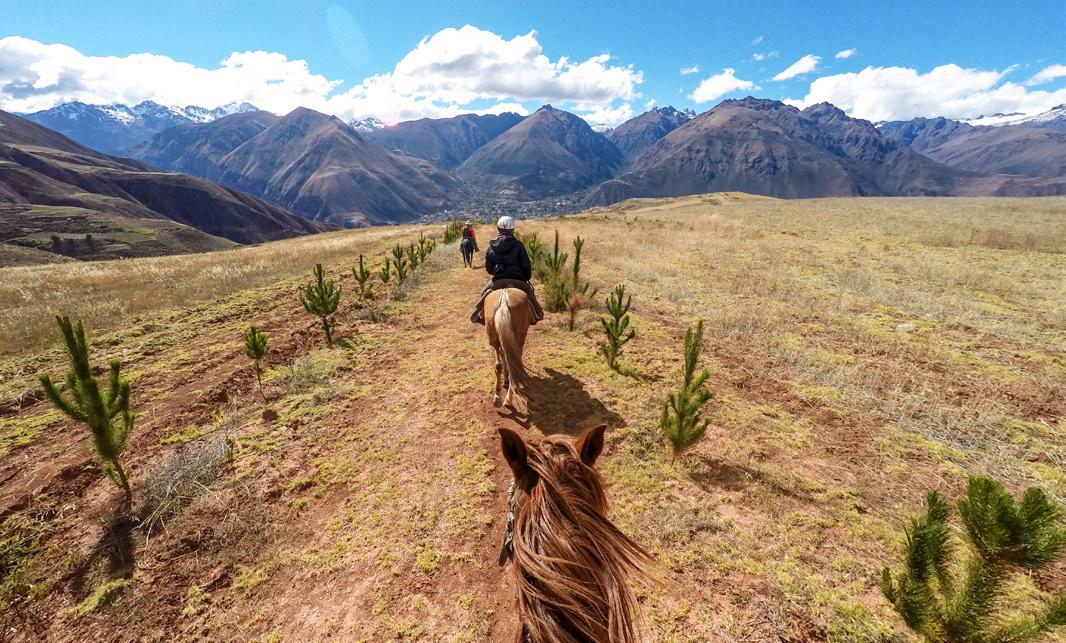
This year, Africa looks set to capitalise on a range of global trends ranging from transformational travel experiences to bleisure tourism
Wellness travel will be a big trend in 2020, with many travellers interested in wellness experiences such as spa treatments and gourmet farm-to-table dining activities.
Katie Blackstone, product manager for Africa at Travel Beyond, said: “Historically, safari camps have been focused on the wildlife and the game drive experience, but well-known resort chains that specialise in wellness are beginning to invest in safari destinations, as well.
“The introduction of this style of safari accommodation may call to a different type of traveller as well as put pressure on other camps to offer more wellness-focused experiences.”
Karkloof Safari Villas, in South Africa’s KwaZulu Natal Province, is both a safari experience and wellness retreat. Days spent there consist of game drives balanced out with yoga classes, waterfall excursions and spa treatments.
But not all tourists visit Africa just to experience its breathtaking landscapes. There has also been an increased interest in African city breaks. In 2018, for example, Johannesburg attracted 4.05 million international overnight visitors, making it Africa’s most popular destination city.

“Whereas a few years ago we would expect, in the main, to take overnight bookings, today’s visitor to Joburg typically spends two to three nights with us, booking an array of activities – whether their ‘thing’ is food, art, culture or history,” said Rinse Wassenaar, Marketing Manager for the Morukuru Family, which has a property, AtholPlace Hotel & Villa, in the city’s suburbs.
This points to a rise in ‘bleisure’ travellers visiting the continent.
These are business travellers who wish to combine attending a conference or business meeting with a few days of sightseeing, getting to know the city or nearby surroundings. According to a study commissioned by the German Travel Association in 2018, 18-34-year-olds now comprise the largest segment of business travellers – around 48 percent of millennials regularly extend their business trips for leisure. They expect more from the MICE industry than ever before, including innovative takes on local cuisine and authentic cultural experiences alongside state-ofthe-art conference facilities.

One African company in particular is set to harness the growing bleisure trend. The Latitude Hotel Group is a boutique hospitality brand,
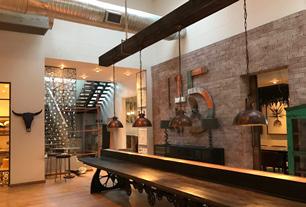
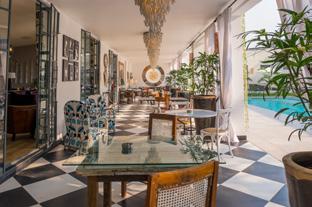
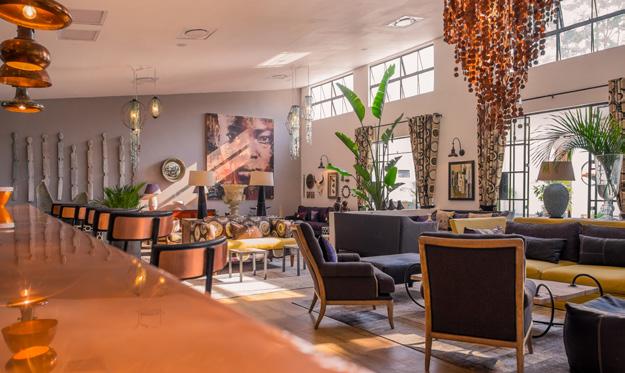
which strives to facilitate integration between local communities and international business travellers. Its hotel Latitude 15°, in Lusaka, gives traditional African craftmanship a cosmopolitan twist with its interior décor. Hotel guests can access its private members club, Open Space, which hosts a series of music, cultural and business events, as well as housing The Works, a contemporary coworking space for business travellers to use.
According to industry experts, the future of tourism in Africa looks bright. The continent has all the right ingredients to capitalise on current trends: luxury accommodation, stunning wilderness areas and plenty of ecotourism and wellness initiatives to engage millennial travellers.
Southern Africa is blessed with native animal species that have been a huge source of attraction to humanity, from international researchers to tourists from all over the world.
“If you have experienced observing wildlife in their natural habitat, it is a memory you will always cherish. Think of the beautiful wildlife you can see in Hwange National Park in Zimbabwe, South Luangwa National Park in Zambia, Chobe National Park in Botswana or Kruger National Park in South Africa.
“I am talking about the beauty, the serenity and sheer innocence of the various species of wildlife who are sim-
ply living their lives. They did nothing to harm our way of life and this should be reciprocal.”
For Standard Chartered’s Southern Africa CEO Jerry Kweku Bedu-Addo, fighting wildlife crime is now part of the day job.
A finance industry veteran whose career has seen him train at the IMF and work for the World Bank and Ghanaian government on economic policy, Bedu-Addo is now based in Johannesburg, having first joined the bank as Executive Director in Zambia in 2004.
Back then he would have been hard-pressed to foresee the impact that wildlife perseveration has had on
both Standard Chartered and himself personally, his passion for the cause palpable as he outlines the critical nature of the challenge.
“I do believe that we are reaching a critical point, and this is no longer simply a matter of conservation of local flora and fauna,” Bedu-Addo says.
“It is also about the preservation of the fragile balance between climate and ecology and the biodiversity they support. We risk compromising the quality of life that future generations deserve, and must be responsible custodians of natural resources.
“The scale of the challenge is enormous, and the statistics are alarming. The African elephant, the largest animal walking the earth, is facing a high risk of extinction, with just over 400,000 left in the wild. African elephant populations were severely reduced to current levels because of hunting and the illegal demand for ivory which is the biggest driver of elephant poaching.”
The problem is escalating. In 1989, the Convention on the International Trade in Endangered Species issued a worldwide ban on the trading of ivory, and since then its value has risen by more than 1,000 percent, resulting in an estimated 100 elephants being killed on average every day.
Rhino horn is also extremely valuable on the black market. Estimated

Standard Chartered’s Southern Africa CEO Jerry Kweku Bedu-Addo is determined to win the war on wildlife crime, leveraging the power of the company to hit criminals where it hurts the most – their bank accounts
Writer: Tom Wadlow
Kweku Bedu-Addo: “Research shows that combatting the illegal wildlife trade has a direct connection to the narcotics trade, with two thirds of illegal wildlife trade directly associated with narcotics activities and organised crime. That means that combating the illegal wildlife trade offers an opportunity to better tackle the threat of organised crime.
“However, to date, the illegal wildlife trade has barely received any attention as a form of financial crime. In fact, according to the UN Office on Drugs and Crime, only 26 percent of jurisdictions look at the finances behind it. That means there is an important opportunity for banks to strengthen the fight against wildlife criminals.
“We need to rethink our game plan and that means disrupting the business model used by those involved.”
to be worth around $65,000 per kilo, demand in Asia in particular is fuelling the epidemic of rhino poaching in South Africa, where illegal activity continues relatively unabated and remains unsustainably high.
The impact of poaching stretches far beyond endangering Africa’s beautiful animals, however.
“This isn’t simply a conservation issue,” says Bedu-Addo. “The reality is that the illegal wildlife trade is an organised crime which fuels violence, drives corruption, and impoverishes communities in the long run. To turn the tide, we need to rethink our approach, and that means recognising that we all have a part to play.”
This includes the financial sector and leading players such as Standard Chartered, the Southern Africa CEO well aware of the power the company can yield.
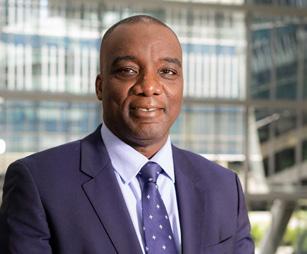
“The brutal business is now worth billions annually to the criminals behind it,” Bedu-Addo continues. “That means combating the illegal wildlife trade offers an opportunity to better tackle the threat of organised crime and banks like us can play a role.
“It matters to us because our unique footprint as a bank means we’re working in many of the communities most affected by the trade and are therefore on the frontline of the challenge. We as a financial entity have the power to disrupt the business model behind the trade. Its Achilles heel is the very thing that motivates it – the money.
“The need to move, store and realise proceeds gives the financial sector and other stakeholders like governments the power to identify criminal networks via their financial footprints and help close the net. So, the financial system must become attuned to the activity
that courses through the system and apply the armoury of tools that they use to fight other financial crimes.”
And Standard Chartered is starting to make a difference in several ways.
In its branches, it is training staff to better spot potentially suspicious transactions relating to the illegal wildlife trade. The company is also prioritising this activity as an area of focus for its financial crime investigators and, through its correspondent banking academies, working with clients to better understand and respond to the issue.
Raising awareness is also crucial. Standard Chartered’s latest brand campaign focusses on the illegal wildlife trade and is spread across 11 countries.
The firm is harnessing the relationships and reach it has with millions of customers around the world, including in many of the countries crucial to the demand, supply, or transit of illegal wildlife products, meaning it can easily draw attention to the damage the trade can cause.
“But no one organisation, government or law enforcement agency can combat wildlife trafficking alone,” Bedu-Addo says.
“We will only succeed if we work in partnership with each other. That’s why coalitions of NGOs, financial institutions and wildlife experts like the United For Wildlife Financial Taskforce are so important. We are proud to have played a central role in its establishment, and we must expand and accelerate partnership action.
“We are hopeful that the world is approaching a tipping point in the efforts to combat the trade. It’s time for the financial sector to take a stand, and by working together we can make a real difference.”
“WE AS A FINANCIAL ENTITY HAVE THE POWER TO DISRUPT THE BUSINESS MODEL BEHIND THE TRADE. ITS ACHILLES HEEL IS THE VERY THING THAT MOTIVATES IT – THE MONEY”
AFRICA OUTLOOK is a digital and print product aimed at boardroom and hands-on decision-makers across a wide range of industries on the continent.
With content compiled by our experienced editorial team, complemented by an in-house design and production team ensuring delivery to the highest standards, we look to promote the latest in engaging news, industry trends and success stories from the length and breadth of Africa.

We reach an audience of 185,000 people across the continent, bridging the full range of industrial sectors: agriculture, construction, energy & utilities, finance, food & drink, healthcare, manufacturing, mining & resources, oil & gas, retail, shipping & logistics, technology and travel & tourism.


In joining the leading industry heavyweights already enjoying the exposure we can provide, you can benefit from FREE coverage across both digital and print platforms, a FREE marketing brochure, extensive social media saturation, enhanced B2B networking opportunities, and a readymade forum to attract new investment and to grow your business.

To get involved, please contact Outlook Publishing’s Managing Director, Ben Weaver, who can provide further details on how to feature your company, for FREE, in one of our upcoming editions.


Having passed the 50-year milestone, Kenya Wine Agencies Limited is investing in the future of the nation’s beverage industry, introducing new brands and empowering local communities
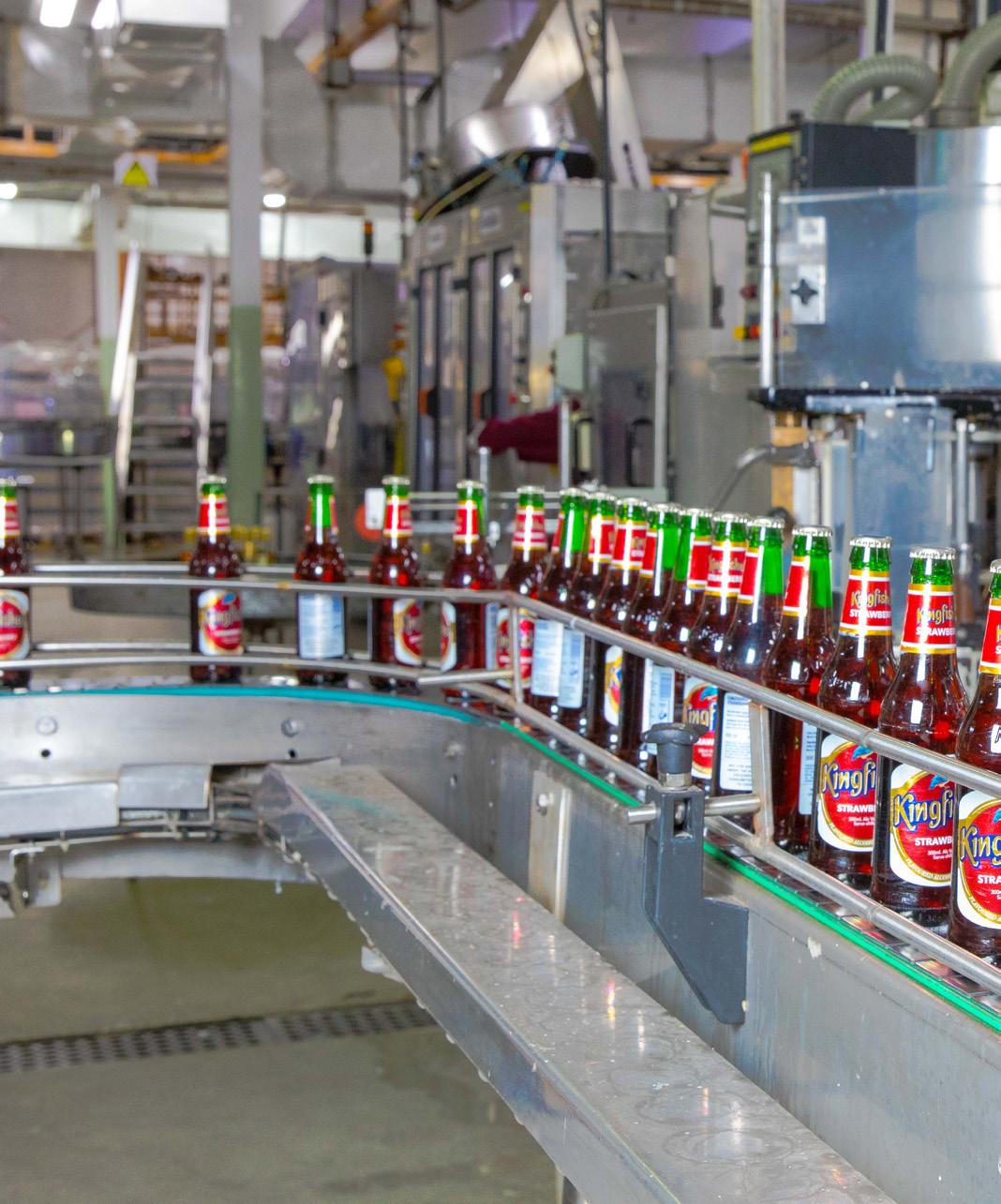 Writer: Tom Wadlow | Project Manager: Matthew Selby
Writer: Tom Wadlow | Project Manager: Matthew Selby
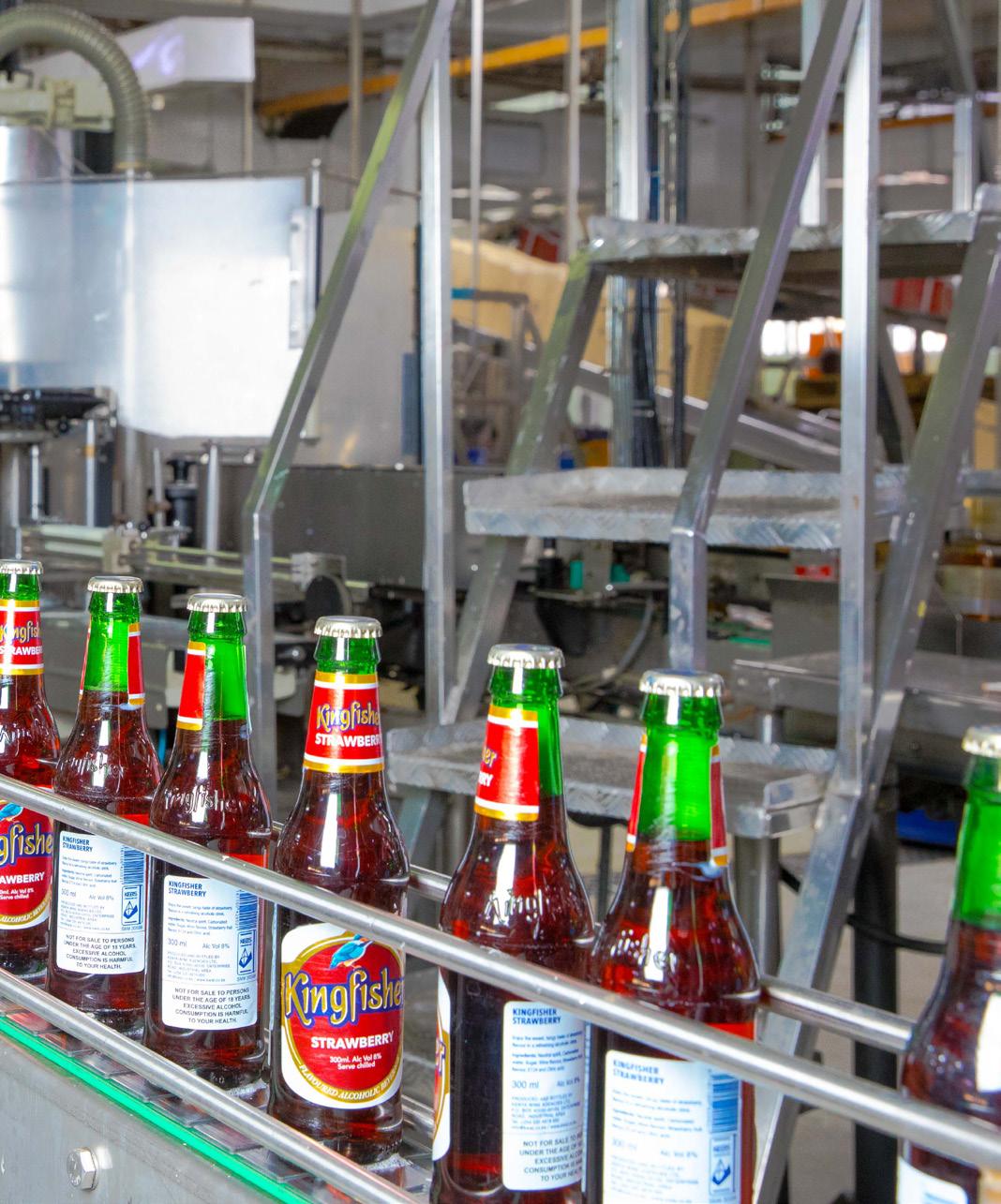
Wine, it is believed, has been produced for at least 8,000 years.
The evidence comes from Georgia, specifically a small rise of land just south of Tbilisi called Gadachrili Gora. Here, there is archaeological indication of large-scale winemaking which dates back to 6,000 BC.
To say that wine has stood the test of time is something of an
Being a national producer and distributor of a wide portfolio of beverages, KWAL is naturally reliant on an efficient supply chain network to function smoothly on a day to day basis.
Asked about the critical nature of these relationships, Lina comments: “Our suppliers are an integral part of KWAL’s success. We value the partnerships we have developed with suppliers over the years and believe that continuous engagement with our partners goes a long way in improving service.
“Quality, cost effectiveness, efficiency, innovation and compliance are the most important value points that we derive from our relationships. We seek to partner with businesses that offer long term value to KWAL.
“Therefore, we undertake rigorous processes to ensure we partner with the right businesses. Our supplier Code of Conduct ensures our suppliers cooperate in embedding sound and internationally recognised best practices.”
understatement, the industry projected to be worth around $424 billion by 2023 and currently growing at over five percent a year. In volume terms, 2018 was a record-breaking year, with 292.3 billion litres having been harvested all around the world.
In Kenya, according to figures from industry event Wine East Africa covering 2014-2017, the industry is growing more than 20 times faster than the global average.
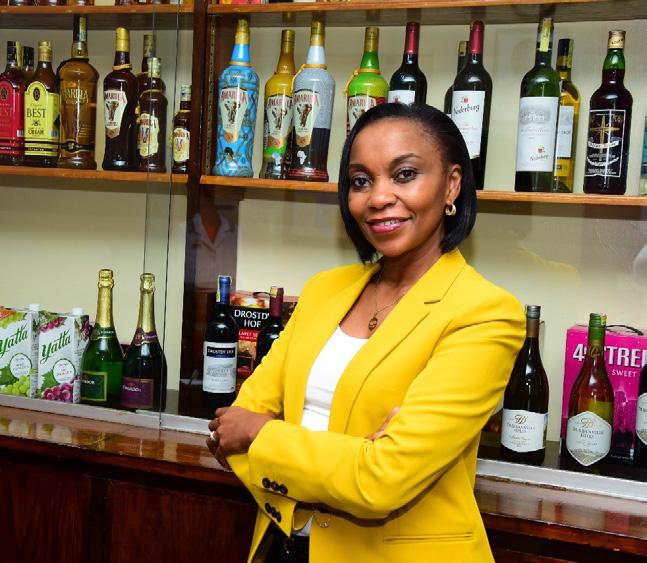
Although constituting a tiny fraction of the region’s overall output (South Africa produced 960.2 million litres in 2018), Kenya is now producing more than seven million litres a year, which translates to around $85 million in revenue.
Several factors are contributing to this upward trajectory. A growing middle-class population, increased product offerings and improved consumer awareness are major reasons why Kenyans are consuming more wine.
Gan Shmuel Foods Ltd. (GSF) is the largest exporter within the Israeli food industry and a leading company in the international citrus industry.
GSF supplies many of the most prominent food and beverage companies in more than 60 countries worldwide. We supply:
• NFC juices, concentrates and bases, fruit and vegetable mix concentrates, clear concentrates.
• Unique tailor-made solutions as raw materials for the production of various beverages including juices, soft drinks, carbonated and still drinks and nectars.
• Versatile packaging and processing lines that fit your exact needs.
Proudly certified to: ISO9001, HACCP and FSSC22000 standards.
idom@ganshmuel.com
Guala Closures Group is the world leader in the production of Non-refillable security closures and anti-counterfeiting technologies in Spirits & Wines markets, with over 14 billion closures sold each year. Guala Closures Group made its foray in East Africa when it incorporated the Guala Closures East Africa plant in Kenya in November 2018. The closures were produced for the local market during March 2019, from the state of art equipment and machinery, developed and manufactured in Italy.


We are particularly proud that the products produced in this local facility already incorporate a range of proven anti-counterfeiting technologies that have been developed specially by Guala Closures. Technological innovations by Guala has provided spirits manufacturers with various solutions that make the counterfeiting
of packaging increasingly difficult, enabling them to protect their brand image. Guala Closures Group’s core competency has been developing and innovating solutions in collaboration with our customers to fight counterfeit products. Current solutions encompass an infinite number of non-refillable pourers with different levels of protection, like non-refillable valve systems and tamper-evident systems. We can design customized closures in an endless range of colours, shapes, sizes, and materials to meet the needs of customers and to enhance brand image.
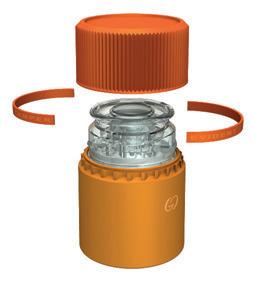

“We see this facility in Kenya as a pivotal part of our growth plans in East Africa and are looking forward to servicing more African countries from Kenya as a first step in taking Kenya globally.”
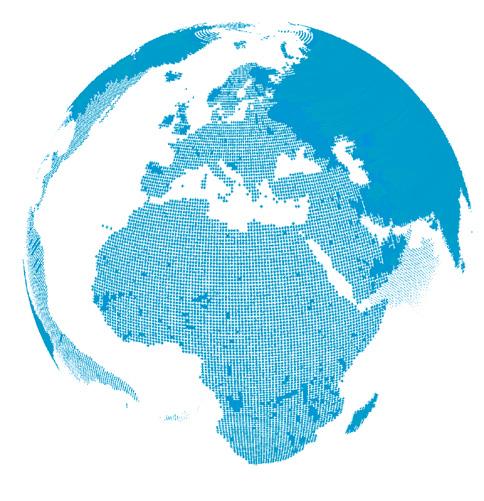
“It is a great time to be in the industry,” comments Lina Githuka, Managing Director of Kenya Wine Agencies Limited (KWAL).
“Most of the categories are enjoying high single digit to double-digit growth driven by a stable economy, a growing middle class and discerning consumers. It is a competitive space with a good mix of local and international players.”
The development of Kenya’s wine and wider beverage industry owes a lot to the work of KWAL.

The organisation was incorporated as a government agency in 1969 to provide an opportunity for Kenyans to take part in the country’s beverage industry, providing an avenue for the importation of wines and spirits from international companies.
KWAL also pioneered the local wine market, establishing Kenya’s first commercial winery in 1982, thereby adding
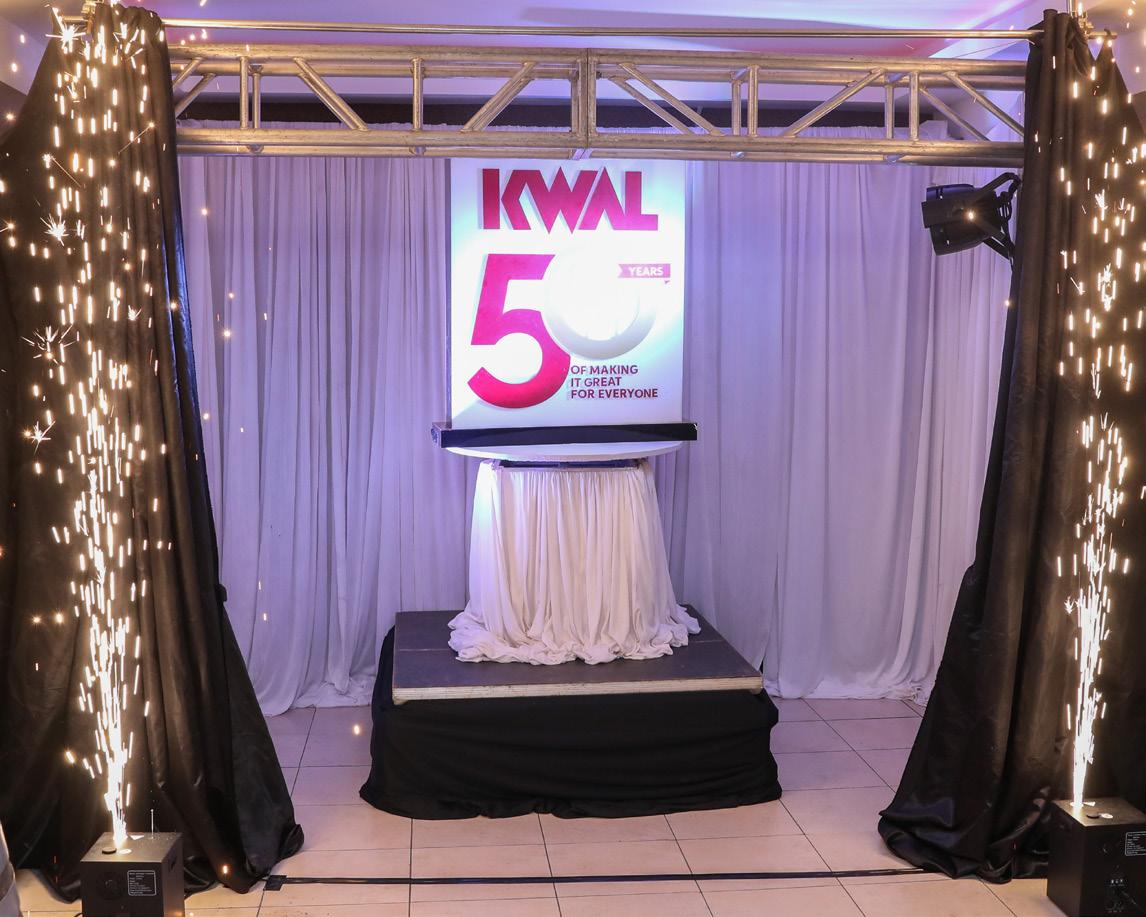
its own products to an ever-growing portfolio. Today, the company’s operations include the manufacture, import, distribution, sale and export of both alcoholic and some non-alcoholic drinks, from wine and cider to spirits and fruit juices.
Lina, who herself enjoys a dry cider, came on board in 2016 as part of an exercise to bring a more commercial mindset to the enterprise.
“I joined KWAL at the time when the business was embarking on its transformation journey on the heels of a successful privatisation,” she recalls, the company last speaking with Africa Outlook in 2017. “The opportunity to work in an environment re-engineering processes and structures, coupled with the challenge of a competitive and fast-growing sector, was exciting.
“The last few years have been a period of business transformation and growth. My focus is to ensure we continue to grow sustainably whilst creating an agile operating environment,
Acme Containers understands the non-negotiable value that FMCG companies place on food safety and hygiene.


As a Kenyan Plastic InjectionMolding company, we take pride in manufacturing plastic pallets and crates using 100 percent virgin, globally certified food-grade material. We harness over 25 years of technical expertise and innovation to introduce market-leading quality products to our customers.
Under our long term Eco-Pal Sustainability Initiative, we offer to buy back pallets for recycling. This helps create a circular loop and minimises our customers’ carbon footprint. www.acmecontainers.com




• Exempt from ISPM15 regulations
• RFID chip slot for tracking
• Ideal for cold storage
• One piece; no nails or splinters
• Eco-Pal Sustainability Initiative

• Free from insects, germs, moulding & mildew; easy to clean & maintain hygiene
Switch to Plastic Pallets
sales@acmecontainers.com www.acmecontainers.com

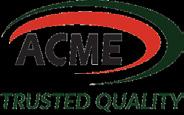
and continuously empower our employees.
“We find ourselves at a remarkable time to be part of the KWAL family – as we continue the journey of realising our true potential. KWAL at 50 years is like a fine wine and getting better with age. The best is yet to come!”
Indeed, KWAL’s distribution network is countrywide, the firm looking to become a regional distributor of quality beverages in line with its growth strategy spearheaded by majority shareholder Distell, a leading South African distiller.
Wine remains the company’s flagship product. It produces and distributes a range of premium and mainstream reds and whites to ensure all consumer tastes are well catered for, its brands including Nederburg, 4th Street, Cellar Cask, Drostdy-Hof and Caprice Wine.
Kenya Wine Agencies Limited has been producing and distributing leading beverage brands for more than 50 years.

Its portfolio can be divided into four major categories, including:
WINE: ALTO, Caprice, Durbanville Hills, Nederburg, 4th Street, Cellar Cask, Drostdy-Hof.



CIDER AND READY TO DRINK: Savanna Dry, Hunter’s Dry, Hunter’s Gold, Kingfisher.


SPIRITS: Kibao (vodka), Hunter’s Choice, Scottish Leader and BEST Classic (whisky), County and Viceroy (brandy), BEST (gin), BEST Cream, Amarula (cream liqueur), Caribia (cane).
NON-ALCOHOLIC: Yatta (fruit juices: mango, red grape, white grape, tropical, apple and orange).
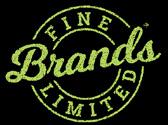
Mirage Plaza, Suite 2L, 2nd Floor.
Mombasa Road
P.O. Box 4429 - 00506 NAIROBI
Tel: 020 - 202174206/7
Mobile: 0714 636 233/0737 331 066
Email: info@finebrands.co.ke
Website: www.finebrands.co.ke

We make it happen!
Fine Brands Ltd, is a Kenyan based, below the line, marketing agency founded in 2011. We pride ourselves with a wealth of experience, armed with a team of highly dedicated individuals with a penchant for creating and bringing youthful, original, international and outstanding ideas to life.
Our services include but are not limited to: Distribution, Merchandising, events/product launches and consumer promotions.





Our products ranges from;
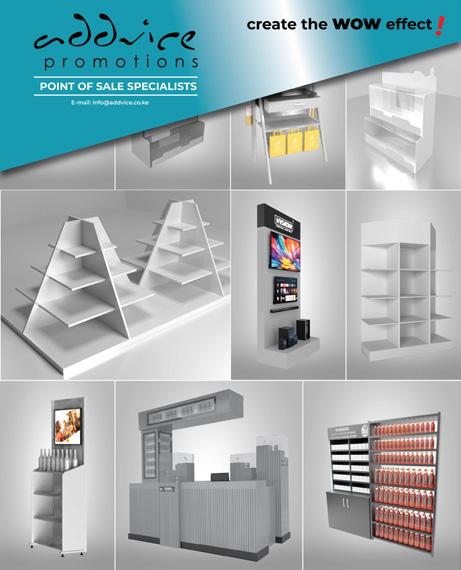


• Industrial Packaging
• Fisheries Packaging
• Floriculture Packaging
• Horticulture packaging
Dodhia Packaging Kenya Ltd
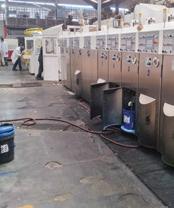
Kampala Road, Industrial Area
P.O. Box 42571, Nairobi 00100, Kenya sales@dplkenya.com www.dplkenya.com
 Right First Time
Right First Time
Staying abreast of such tastes is critical to ensuring KWAL’s portfolio remains relevant, Lina going on to outline some of the latest trends which have impacted the Kenyan market recently.
“Fuelled by the growth of the middle class, we have seen a growth in premiumisation in the spirits and wine market,” she says. “Our premium wine portfolio has grown with the introduction of Durbanville Hills and ALTO wines.
“We have also diversified the KWAL local portfolio with the exciting launch of our latest addition, Caribia Cane. Caribia is a finely crafted smooth cane spirit designed to mirror the progressive attitudes and behaviours of the Kenyan millennial and their dynamic tastes and preferences.
“It’s packaged in a unique design inspired by the energy and vibrant expression of the target audience who are lovers of afro-inspired themes. In addition, we also recently introduced
BEST gin for consumers in the growing gin category.”
Other spirit segments are also gaining traction among Kenyan consumers, notably whisky and vodka. For instance, KWAL’s flagship spirit brand Kibao Vodka was recently named among the top 100 fastest-growing spirit brands by IWSR, the leading source of data and intelligence on the alcoholic beverage market.
In response to the evident growth across these drink segments, KWAL is futureproofing itself through an investment in a brand-new manufacturing facility in Tatu City, just northeast of Nairobi.
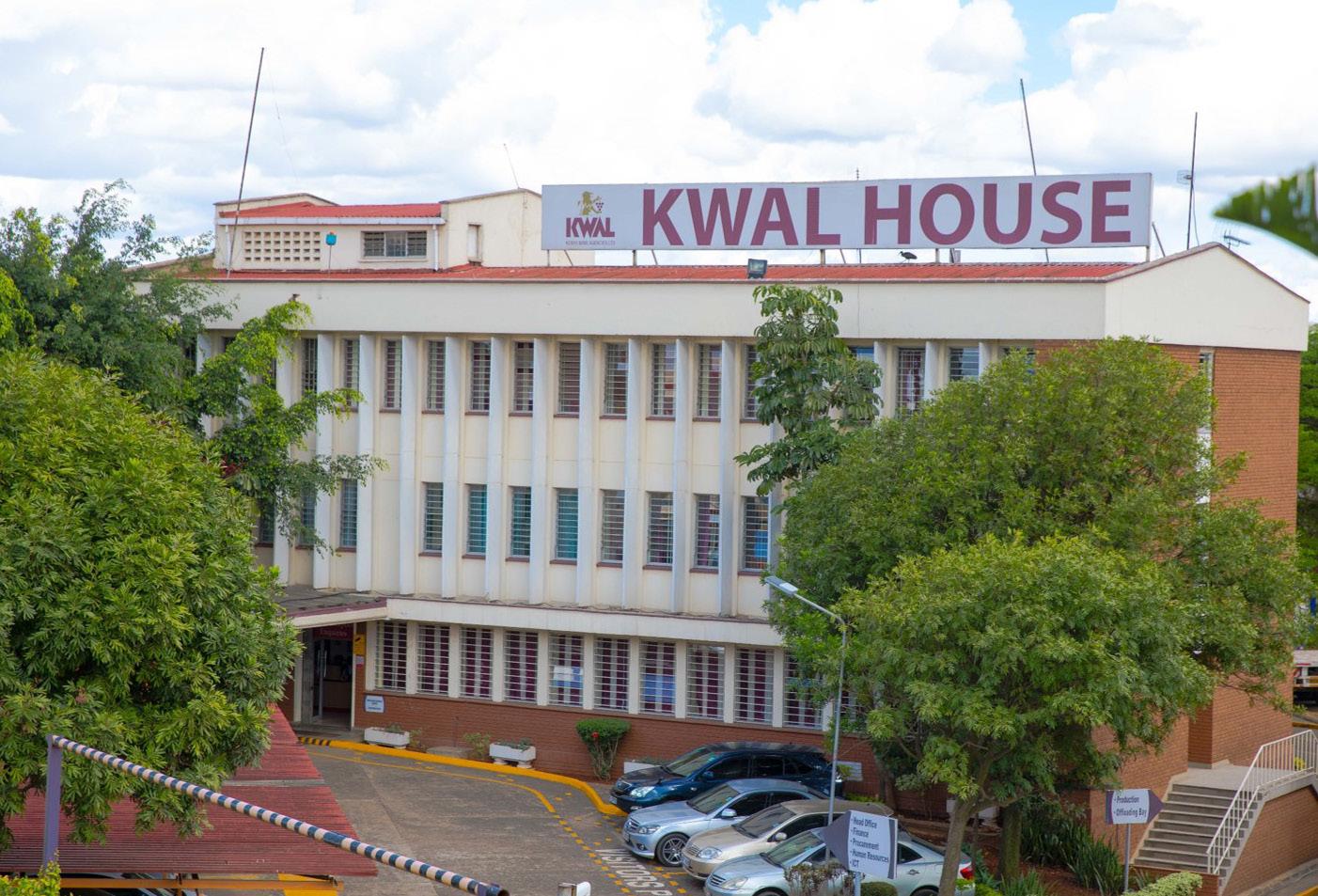
Here, the company is in the process of finalising plans for what will be an ultra-modern site designed to meet consumer demand and continue localising the production of imported brands, a project which is estimated to cost around $30 million.
“The investment will mark the first new production facility opened by KWAL in over two decades and, alongside the expansion of the distribution and marketing of our brands, will result in increased employment opportunities for Kenyans,” Lina reveals.
“This investment represents significant foreign direct investment into the country and is aligned to the government’s Big 4 agenda. It is a vote of confidence in our brands and
“WE FIND OURSELVES AT A REMARKABLE TIME TO BE PART OF THE KWAL FAMILY – AS WE CONTINUE THE JOURNEY OF REALISING OUR TRUE POTENTIAL”
the positive outlook in the Kenyan market.”


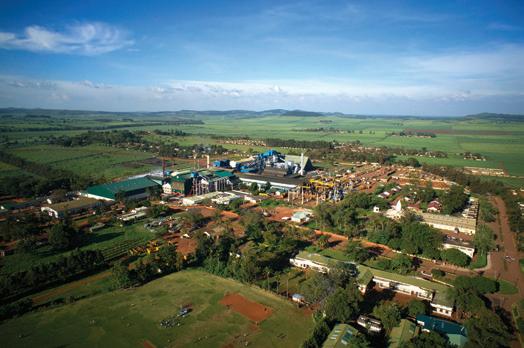
A more successful KWAL will also enable it to impart a greater impact on the communities in which it serves, a coordinated corporate social responsibility programme lying at the heart of its identity and covering four key areas – environmental responsibility, social interaction, economic impact and employee welfare.

Lina details two such programmes, the first being Inua (Swahili for uplift), a social impact scheme aimed at upskilling young Kenyans through training in practical and theoretical skills geared towards employment in industries such as hospitality and entertainment.
The other initiative cited by the Managing Director is carried out through its flagship Amarula brand, an

African cream liqueur made with the marula fruit.
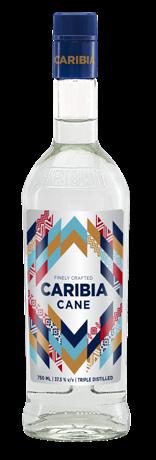
Here, KWAL is working hard to protect the continent’s elephants, the brand launching its third global campaign in 2018 to coincide with World Elephant Day on August 12, with Kenya representing one of the key regions that the campaign is active in.
Partnerships with like-minded organisations have been key to sustaining both campaigns, Lina highlighting the Mukuru Promotion Centre as central to the Inua programme and Wildlife Direct as a prominent partner of Amarula’s ongoing conservationist efforts.
The continued support of activities like these is just one of the MD’s ambitions for 2020 and beyond.
Asked to outline her objectives for the year ahead, Lina starts by highlighting the crucial

role KWAL’s dedicated employees play on a daily basis, and how increasing employee engagement, and enhancing their development is high on the priorities list.
Evolving the product portfolio and making such products more accessible is another key goal, along with maximising operational efficiency and promoting responsible marketing, sale and consumption of alcohol in Kenya.
“Overall, we want to continue making it great for everyone, delighting our consumers and satisfying our stakeholders,” Lina buoyantly concludes.
With best-in-class products, intuitive investments and crucial employee and community empowerment practices, LafargeHolcim’s Bamburi Cement in Kenya is striking the perfect balance between quality and sustainability
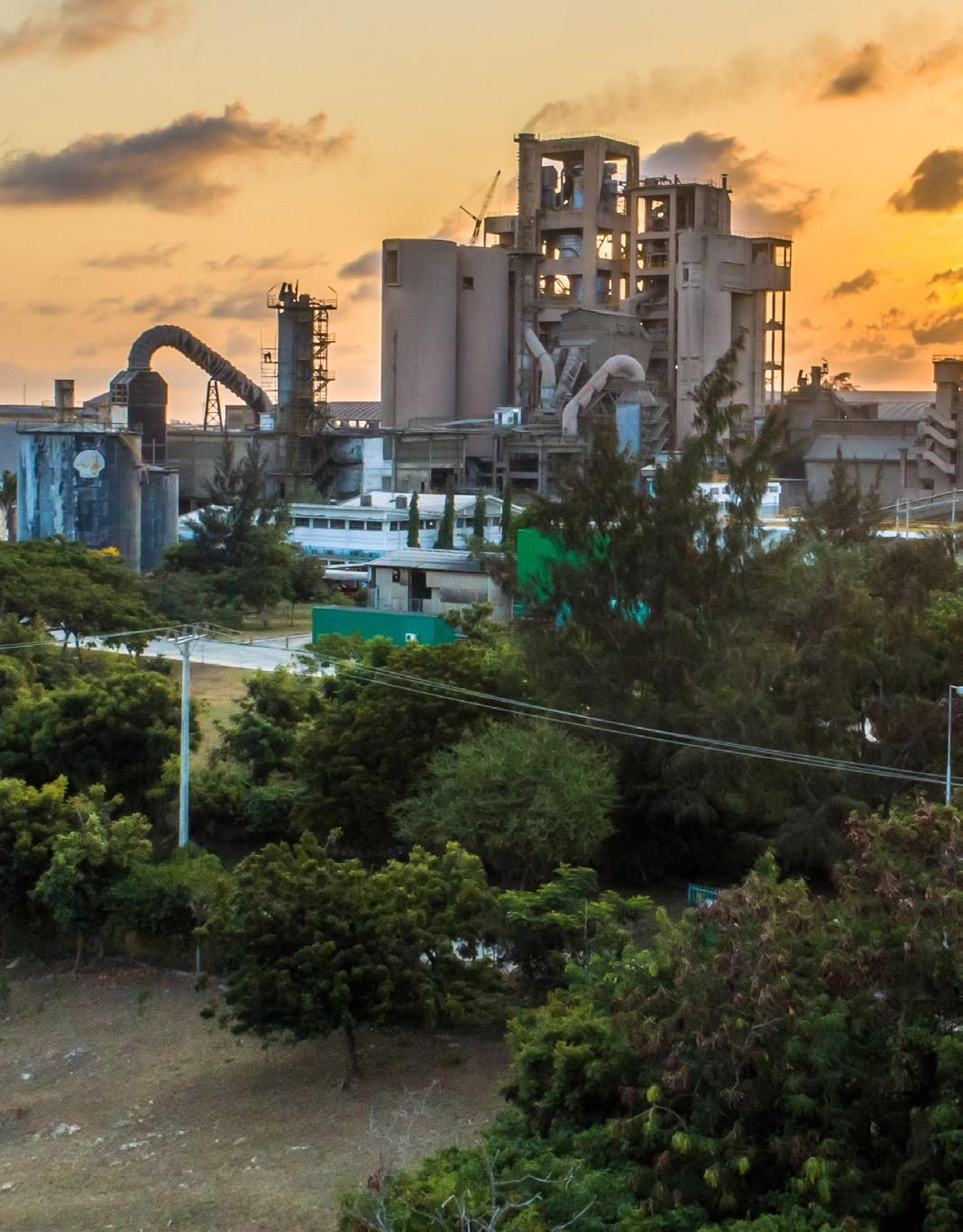 Writer: Jonathan Dyble | Project Manager: Josh Mann
Writer: Jonathan Dyble | Project Manager: Josh Mann
It is an industry that offers many opportunities for sustainable growth, but only if you have the right focus. The challenge is for organisations to pursue long term sustainability as opposed to short term targets. Ultimately, the winners will be the ones who get this right.”
Seddiq Hassani is referring to Africa’s cement industry, a field that his company Bamburi Cement is thriving in.
Part of LafargeHolcim, a group
comprising an array of businesses that combined employ about 75,000 people across operating sites in 80 countries around the world, Bamburi is one of its operations in the Middle East and Africa (MEA) regarded as the leading cement manufacturing and marketing company in the East African region.

“We have operations in two countries – Kenya and Uganda,” explains Hassani, the company’s Managing Director.
“In Uganda our cement subsidiary
company runs as Hima Cement Ltd. In Kenya, meanwhile, Bamburi Special Products Ltd is our subsidiary involved in the manufacture of high-quality precast and ready-mix concrete products.
“Our corporate headquarters are in Nairobi and cement plants in Nairobi and Mombasa, and our environmental arm Lafarge Eco Systems is based in Mombasa, from where it champions restoration, environmental conservation, education and awareness. It is also responsible to rehabilitating all Bamburi’s exhausted quarries.”

Buzeki Enterprises Limited is the flagship company of Buzeki Group of Companies. a multi-faceted business group with interests and representation in various sectors of the economy. Incepted in 1999 under the ownership of local Kenyan entrepreneurs, Buzeki Enterprises is a fast-growing business conglomerate with a global vision & provides a wide range of transport services in Kenya as well as the larger East and Central Kenya regions.
In 2004. our transport division Buzeki Enterprises was founded to cater to the rapidly expanding regional markets of diverse industry verticals like Manufacturing, Distribution and Agriculture among others with quality transport services.
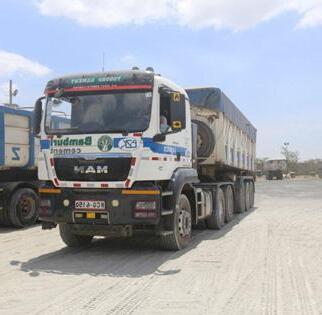
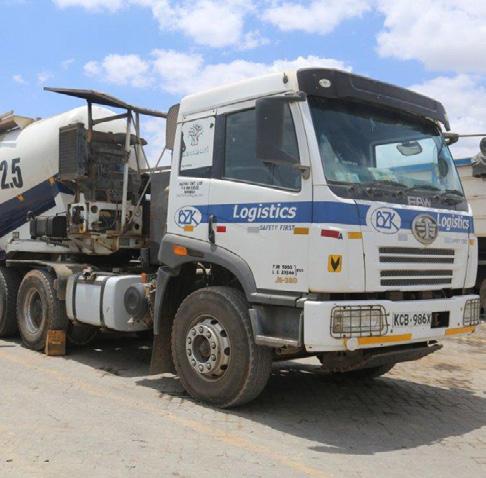
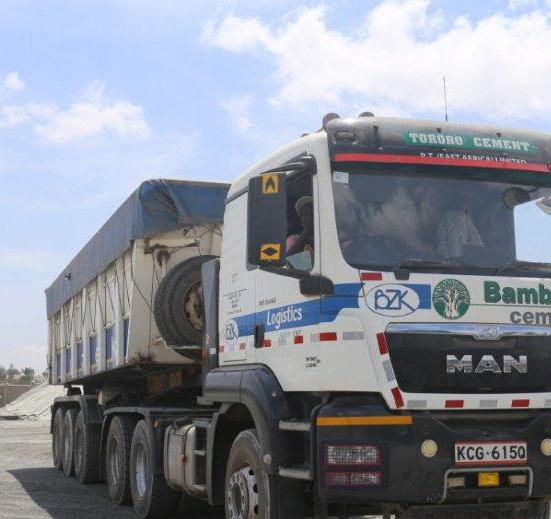
We have over four hundred trucks and still growing in numbers which all are in a very good condition operated by qualified personnel which guarantees both the transport sector & distribution management smooth strategic plans and operations are implemented effectively and efficiently. We provide quality reasonable transport service packages in the major areas.
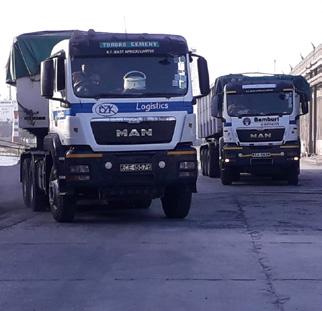 Zedekia Kiprop Buzeki Bundotich Founder and Group Chairman Website: www.bundotich.com
Zedekia Kiprop Buzeki Bundotich Founder and Group Chairman Website: www.bundotich.com
 Major clientele; Bambrui Cement, Hima Cement, Tororo Cement, National Cement, Spedag Interfreight, Grain Industries & Kobo360.
Major clientele; Bambrui Cement, Hima Cement, Tororo Cement, National Cement, Spedag Interfreight, Grain Industries & Kobo360.
• We maintain a sufficient and efficiently operating fleet that may respond to any volume of customer needs at any given time.

• Voted and honoured with the Best Road Safety Transporter Award in transporters category in 2008 by Bamburi Cement Limited. Lafarge Group.
• Won Road Safety Awards in 2011 and 2012 for Best General Cartage position l and 3 respectively initiated by Association of Kenya Insurers. Professionalism in the transport operations. reinforcement of safety standards and the ability to maintain quality “as-scheduled” delivery.
• A member of Kenya Transport Association.
• We ensure all our fleets are well maintained, always conform to transport licensing (TLB) requirements and are operated by law-abiding workforce.
• As safety ambassadors, we adhere to all laid road safety guidelines and ensure all loading of our trucks are within the tolerable government load limits.
• All our trucks have GPS (Global Positioning Systems) enabled and can be tracked real time in any location at any time.
• We ensure that all our drivers are trained in defensive driving courses and also undertake annual refresher courses.
• We undertake regular toolbox meetings with all our drivers and staff on safety and operations.
• We have a strong safety team, which supervises road and in-house safety. We have regular road patrols running from Mombasa to Malaba in border. We also have checkpoints along the highways where drivers are closely monitored.
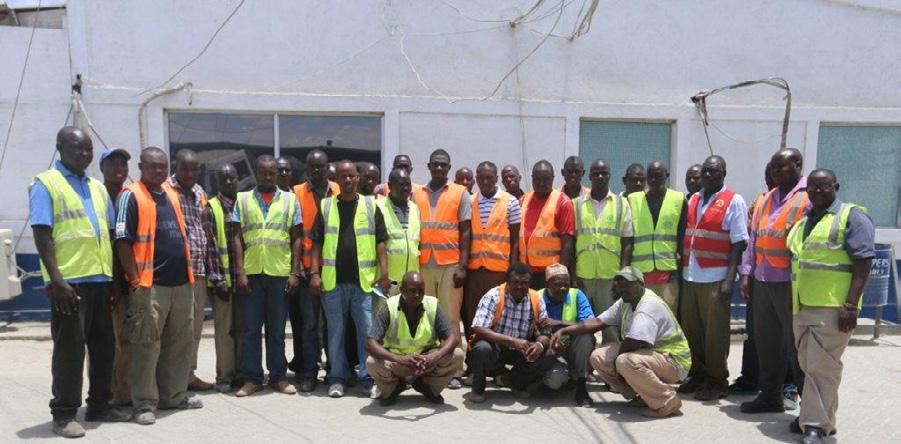
• We have mining equipment and personnel suited for Limestone. Gypsum, and Kunkur mining.

• We also provide all safety equipment (PPE equipment) for all staff such as reflector jackets, helmets, safety goggles, safety boots and safety handbooks.
Head Office:
Buzeki Enterprises Ltd.,


Mariakani, Mombasa, P.O Box: 85532-80100.
Email: transport@buzeki.co.ke
Website: www.buzeki.co.ke
Contact: +254 734601155
Nairobi Office:
Kirichwa Lane Court House No 26, Ngong Road, Nairobi, Kenya
P.O. Box; 26237-00100
Email: transport@buzeki.co.ke
Website: www.buzeki.co.ke
Contact: +254 726618438
Buzeki Enterprises Ltd. BuzekiLogistics BuzekiGroupSo how has the Bamburi brand grown to become such a renowned player with a wide remit in the regional economy?
In the eyes of the MD, there is no one simple answer to this question. Rather, it is owed to the company’s inherent desire and ability to excel on four key fronts, the first of which is an unwavering focus on standards.
“Our emphasis on quality has seen the market associate us with the best products, and that trust is why we are positioned as Kenya’s foremost manufacturer of cement and concrete,” he reveals.
Further, this product portfolio is not just unrivalled in terms of quality, but also variety. With the largest selection of cement and concrete products of any regional supplier, Bamburi Cement is able to meet a diverse range of construction needs that span all segments, from individual home
builders to more complex infrastructure players.
This brings Hassani to the company’s third point of differentiation – its sustained commitment to innovation and ever-growing capacity which ensure it is able to deliver on technical projects with ease by leveraging modern, first-class solutions.
“Our leading technology capabilities are the result of our membership within LafargeHolcim,” the MD explains, reiterating the collective group’s standing as one of the world’s leading building materials and solutions providers.
“We benefit not only from its extensive expertise across numerous markets, but also from its research and development centre in Lyon, France. This facility is a first of its kind in the industry, and ensures we’re able to stay abreast of industry best practices including innovative products,
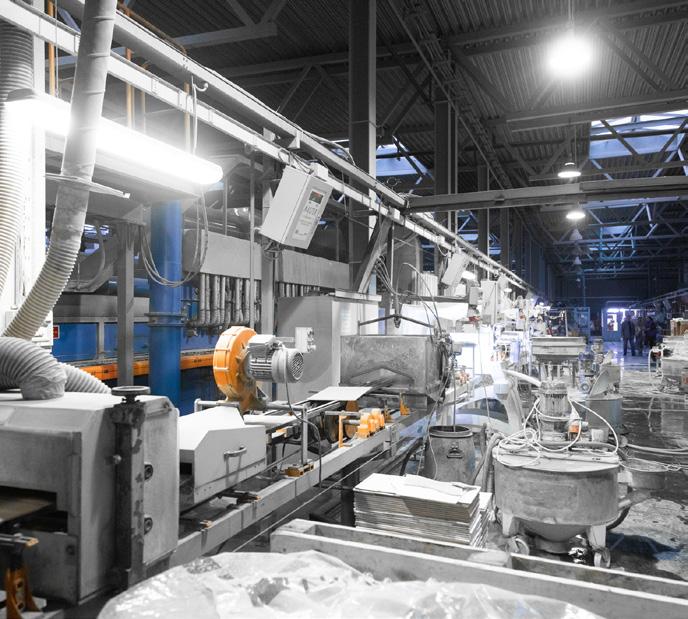
Sika Kenya is dedicated to providing and maintaining the highest standards with its products and services. An unwavering commitment to innovation enables Sika Kenya to not only satisfy current demands, but also anticipate future expectations.
All Sika products and system solutions are designed with customers’ success in mind, and the ambition to build strong, long-lasting and mutually beneficial relationships rather than focus on short-term business. This is well demonstrated by the great business relationship the company has with Bamburi Cement.
Since 2016 Sika Kenya has been supporting Bamburi Special Products by developing a concrete admixture that is compatible with aggregates and cement used in concrete production. With the rising demand for watertight structures, Sika Kenya has been able to supply waterproofing admixtures to ensure the required specifications are met.
Towards the end of 2018, Bamburi Cement began using Sika grinding aids to increase production and efficiency at its plant on the Athi River.
Besides providing products, system solutions and technical support, Sika Kenya has partnered with Bamburi Cement to sponsor its Zawadi challenge, a loyalty programme to reward retailers and dealers who actively purchase cement from the company.
These events have created a great chance for Sika Kenya to grow its network and generate more business opportunities.
Great brands are not built overnight”, The most successful brands know that this is a myth that only works in fairy tales. The truth is that the best companies take time to build — any successful company requires a strong base on which to grow and develop.
Sika Kenya Limited, a subsidiary of Sika Group, was established in 2011 and the company has grown over the years and made a mark for itself in Kenyan and East African construction market. Nowadays, the company has become the leading manufacturer and distributor of construction chemicals in the country and has the biggest market share across the region.
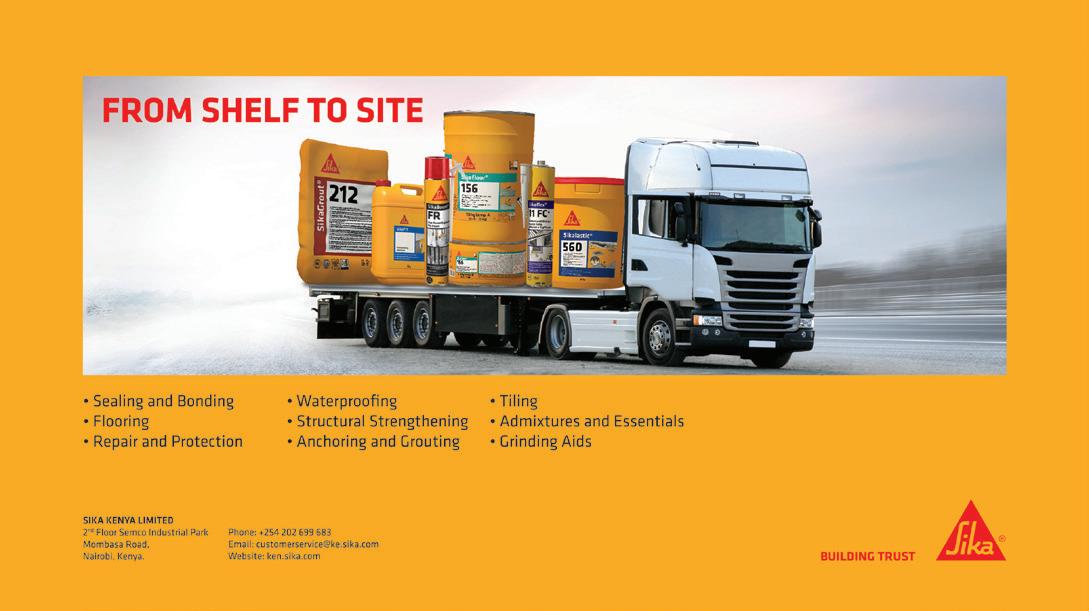
Sika’s Target Markets are connected with various aspects in the construction industry. They involve: Concrete, Waterproofing, Roofing, Flooring, Sealing & Bonding, Engineered Refurbishment, Building Finishing and Industry.
Majority of Sika products are locally manufactured although some products are imported from sister companies in Africa, Europe, Middle East and Asia. Sika Kenya has a chain of distributors who sell Sika products and supply big projects directly as well.
Since 2011, the company has seen a tremendous growth which has led to supplying new markets. Sika Kenya is not only supplying the market in Kenya, but also in Uganda, Rwanda, South Sudan, eastern part of DRC, Burundi and partly Somalia. Each market comes with its own challenges and their aim is to ensure that Sika Kenya overcome all challenges that customers might face and provide best products and system solutions backed by strong technical support on site.
Sika Kenya business philosophy has led us to an unparalleled success and today is recognized as a global technology leader in many markets, with special focus in creating value for our customers. Sika Kenya has invested in technology center which take the lead in long-term research programs and the development of new innovative solutions to meet local markets’ specific needs and requirements.
Sika Kenya has introduced Sika Academy in Africa concept where they train professionals in the construction industry to have top of mind product and application knowledge of their products. At the end of such trainings, the participants are usually awarded certificates and a few of them become certified Sika applicators after a vetting process.

Sika Kenya has taken part in various important projects such as, Britam & UAP Towers in Kenya and Karuma dam in Uganda just to mention a few. Currently, they are supplying products to affordable housing project along Park Road, wind park project in Kipetu, residential and commercial projects (GTC for example) and several others.
The high-quality products and systems together with the technical support on site, which is provided for free, are the main reasons which put Sika Kenya to be the first choice when it comes to construction business.
At the same time improving existing products and systems and introduction of new products and systems in the market enable Sika Kenya’s customers to move with the ever-changing trends in the construction industry safely.
Hassani joined the LafargeHolcim Group in 2000 when he began working for Lafarge Morocco, holding several positions including Control Manager, CEO Lafarge Gypsum Morocco, Purchasing and Logistics Director, and Marketing and Strategy Director. Prior to this he worked as an auditor and strategy consultant with Arthur Andersen Casablanca.
In 2015 he then moved to work for LafargeHolcim as Head of Growth & Innovation for Middle East and Africa, before joining Bamburi Cement Ltd as Managing Director in

“I had an interest in not only cement but the broader construction industry from early on in my career,” Hassani reveals. “In the early 2000s Morocco had a lot of construction projects in the pipeline –houses, roads, highways, ports, airports, hotels and more.
“I wanted to be part of that exciting journey, and I am proud to say I have contributed to many major projects to date, including the construction of the Tanger-Med Port, which is among the largest in Africa and the Mediterranean Sea, high speed train lines travelling at speeds of 320 kilometres per hour, and highways stretching over 1,000 kilometres.”
solutions and services as well as advanced manufacturing processes.”
By tapping into this network, Bamburi Cement has been successful in partnering with and contributing to some of the most iconic buildings and infrastructure projects across Kenya and beyond.
A mere glance at its portfolio provides the evidence, the company able to call upon a growing number of successfully completed projects. It has been involved in the construction of the Kenya’s Standard Gauge Railway (SGR), for example – a monumental multi-phase track development that is set to transform Kenyan transport by connecting the country’s major cities.
“This is the largest transport
infrastructure project in Kenya since independence was achieved in 1963,” Hassani affirms, “a project in which we were the local lead cement supplier, owing to our capacity and quality solutions.”
The SGR aside, a second highlight in the form of the recently commissioned Lake Turkana Wind Power project is a similarly landmark development, soon to be the largest wind farm on the entire continent.
“Our joy is magnified by the impact of such projects and their ability to inject momentum into Kenya’s dream of prosperity, playing a positive role in serving economic and social development,” the MD adds.
Indeed, talk of sustainable energy prompts him to loop back to Bamburi Cement’s fourth critical differentiator,
G4S is a leading global integrated security company, specialising in the provision of security products and solutions and outsourced business processes where safety risks are considered to be a strategic threat. In Kenya, the firm’s portfolio includes an array of managed security services, courier services, cash services and technology services, working to safeguard the welfare and prosperity of people across the country.
Passionate about safety, security and service excellence, and acting with integrity, respect, innovation and teamwork, we strive to secure your world.
T +254-20-6982000 / 2999
E info@ke.g4s.com
www.g4s.co.ke
Alloy Steel Castings Limited was established in 1990 and specialises in manufacturing carbon and alloy steels, as well as alloy iron castings to 37 different international specifications.
Catering largely to the cement, mining and sugar sectors within East and Central Africa, the company was the first engineering company in Kenya to attain ISO 9001-2015 Quality Assurance Certification.
Today the plant produces over 120 tonnes of various grades of castings per month and is well reputed in the region for its quality and timely delivery.
For more information, visit the Alloy Steel Castings website via the link below.
www.alloysteel.com
Securing Your World
• Manned Security Services



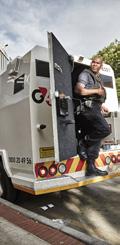
• Courier Services


• Cash Services
•Technology Services

Tel: +254-20- 6982000 / 2999
Fax: +254-20-532380, 531719, 6982202
Mobile: 0732172000, 0711042000
Email: info@ke.g4s.com
www.g4s.co.ke
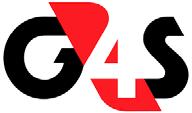
the company active in and Hassani himself particularly passionate about sustainable operations.
It is no secret that, around the world, the manufacturing industry is being placed under heightening pressure to make a fundamental shift towards environmental sustainability. Yet the Kenyan business and its parent company have not shied away from these demands, instead helping to set new standards in the cement sector with a can-do attitude.
“Our focus on sustainability is unmatched in the market,” Hassani expresses, alluding to the recent introduction of LafargeHolcim’s Chief Sustainability Officer position to its Executive Committee as a clear showcase of the company’s environmental ambitions and Bamburi’s own sustainability programmes.
“In our plants, waste materials are recycled and used to support production processes, and beyond that we
have dedicated extensive resources to environmental restoration, conservation, education and awareness – a discourse driven by our environmental arm and subsidiary Lafarge Eco Systems.
“We are particularly proud of Haller Park in Mombasa, a world-class example of environmental restoration where a barren landscape and disused quarry were systematically transformed into a diverse ecosystem of flora and fauna, now playing host to a wide range of animals, forests, grasslands and ponds.”
Intuitive investment in responsible practices and meaningful products is a theme present throughout the firm’s overall remit.
It is not just a cement producer but a company offering wholesale solutions. In dealing with homebuilders, for example, it not only offers its products,

but equally provides the opportunity to access construction funding through partner financial institutions, architectural drawings, bills of quantity, technical assistance and construction advice.
“These challenges excite me – we help people build their dream,” comments the MD.
Meanwhile, its community investment initiatives are likewise both diversified and expansive, the Bamburi Cancer Center located in the Coast General Hospital in Mombasa standing as a different but similarly impactful undertaking.
“A key element to cancer management is supportive care, crucial as it ensures that the quality of life of patients is at an optimal level to improve outcomes. Thus, having a fully-fledged cancer unit is at the core of ensuring patients receive good care.”
Indeed, this is exactly what the Bamburi Cancer Center is delivering.


Since opening in November 2017, the facility has been at the heart of the country’s healthcare system and a best practice showcase. And, in the way of education, Bamburi’s contributions are similarly significant.
Here, the company has for 15 years been running a social marketing programme named Builders Academy that offers tailored training for masons, foremen and small contractors across the country, imparting crucial construction skills in an effort to help tackle emerging industry issues, spur job creation and improve overall construction standards.
And Bamburi also invests in proactive and continuous education of communities on health and safety. Among its programmes is an annual road safety campaign where the company partners with county governments and other public and private partners, including transporters, to sensitise communities to road safety.
“This is concentrated in high risk road networks, and also include training activities for motorcycle riders (locally known as boda boda), school children road safety programs among others,” says Hassani.
Investment into the empowerment of people is not only focused on vulnerable groups. Likewise, Bamburi Cement’s sizeable workforce benefits from the company’s culture which is committed to delivering benefit to all stakeholders.
The broad reach of LafargeHolcim is one way in which this is delivered.
Alongside impeccable health and safety practices and general training, it is able to offer its employees enhanced learnings through exposure to the group’s global operations that can range from best practice sharing across divisions and borders to receiving support from its flagship research centre in Lyon.
Since 2014, Bamburi Cement has partnered with KenGen Foundation and Better Globe Forestry to encourage and enable schools to participate in environmental activities by developing and sustainably managing small forests and woodlots within their compounds.

There are multiple benefits to this, including improved access to renewable sources of wood fuel that reduces pressures on surrounding forest resources, contributing to a reduction of greenhouse gases through carbon sequestration, and controlling soil erosion by reducing runoff and increasing topsoil infiltration.
“Our efforts in the area of CSR are well recognised within the LafargeHolcim Group,” Hassani states. “One of our projects, a safe waste oil disposal initiative between ourselves and the Petroleum Institute of East Africa, recently won a silver award at the LafargeHolcim’s MEA CSR Awards 2019 campaign.”
“Once we recruit good people, we make sure we provide them with the space to deliver,” states Hassani.
“We recognise that our people and their expertise are central to the solutions we deliver to our customers. They work hard to overcome barriers and solve customer challenges, and this requires both drive and knowhow. Indeed, the same can be said for
Bamburi Cement’s suppliers and business partners that are likewise deemed crucial to the overall success of the company.
The MD affirms: “Reliability is key, and we continue to enhance our relationships with our partners and suppliers in order to operate efficiently and effectively while adhering to the highest standards of integrity.
We are proud to be associated with Bamburi Cement in provision of industrial Gypsum raw materials for cement production
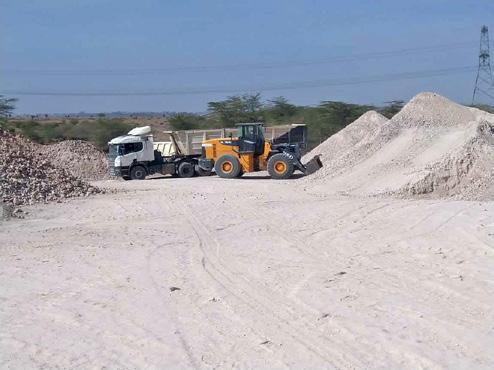
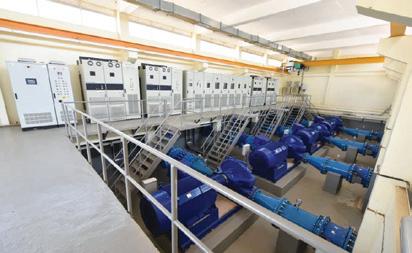


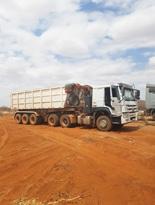
Derdols Director, Eng. Derick Kimathi (Left) handing over one of the New Trucks to his long serving driver of 16 years Mr. Muthini Umithi on 5th january 2020.
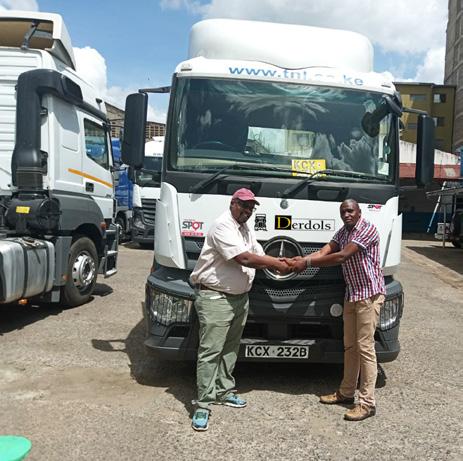

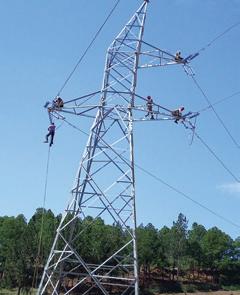
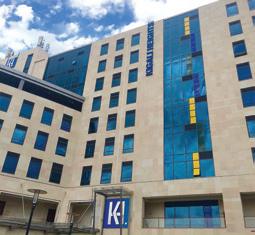
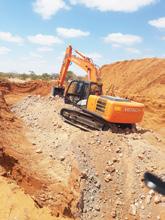
The Directors, Sta and Logistical Partners of Phoenix Procurement Ltd take this opportunity to Congratulate Bamburi Cement Ltd on the ongoing development initiatives.
As a Leading Gypsum Mining, Crushing and Distribution Company Phoenix Procurement Ltd is proud to be associated with you and look forward to continued growth and a mutually beneficial relationship with Bamburi Cement Ltd.


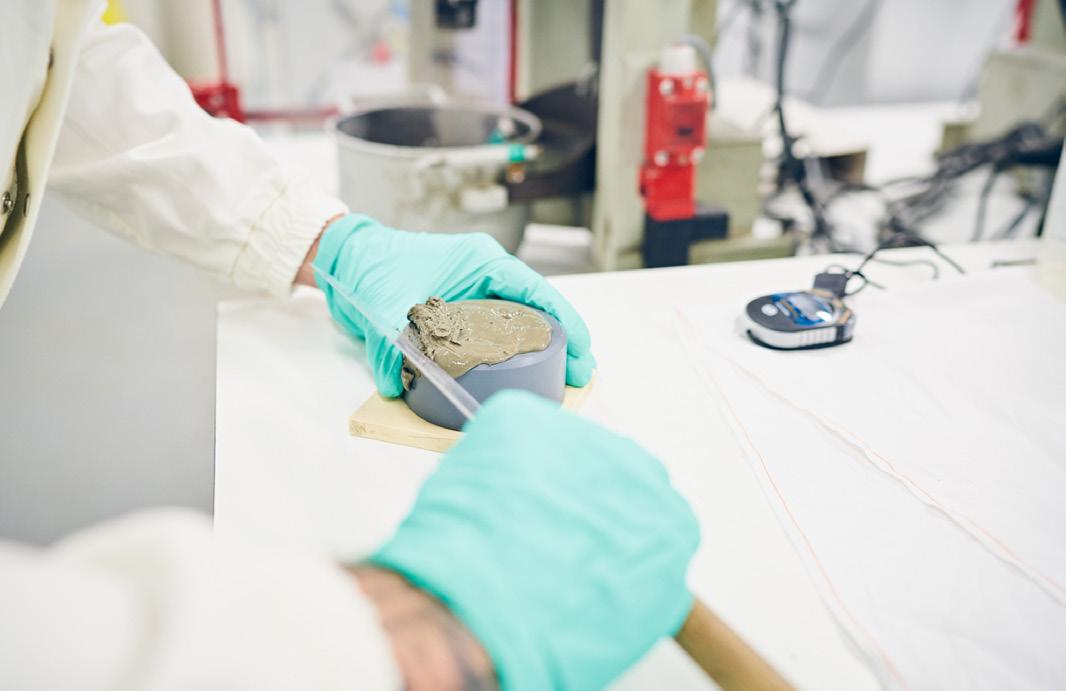
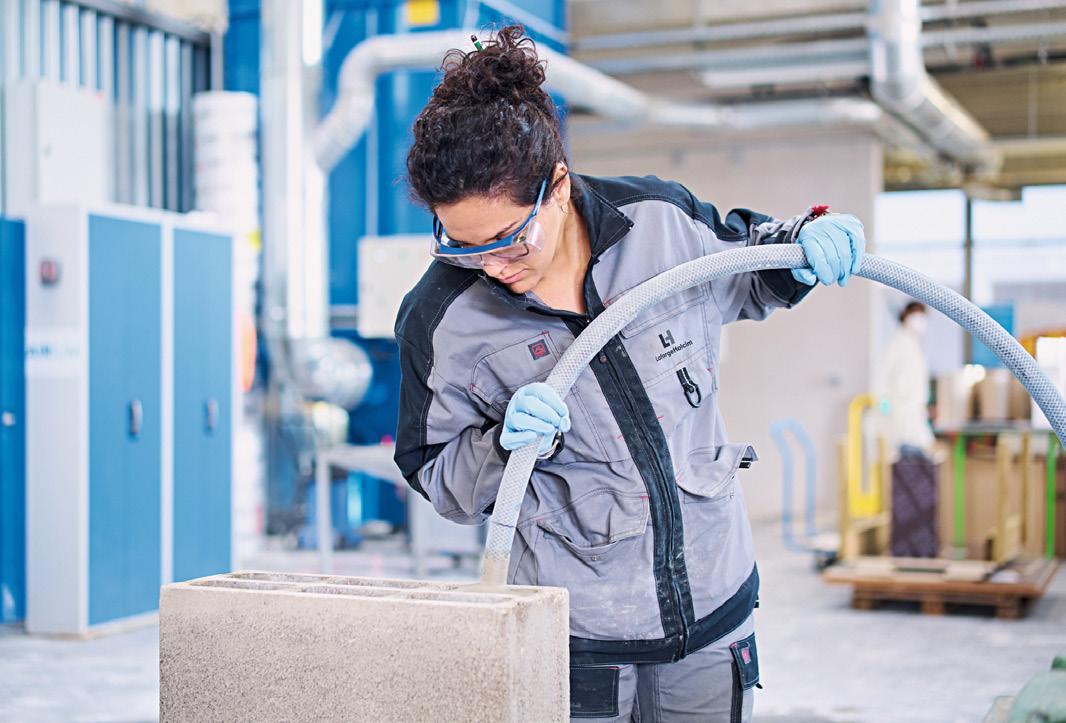
“Following our supplier code of conduct, we develop long-term relationships with those companies who are also committed to sustainable development. Such engagements are ongoing and in February we hosted our Supplier Week to firm up these partnerships.”
Without question, maintaining fruitful relations with suppliers and employees alike will be crucial to Bamburi Cement’s progression as it enters a new, ambitious chapter in its already illustrious history.
The company recently completed a major investment and capacity upgrade at its Athi River grinding plant, significantly increasing its cement production capacity. And Bamburi’s aspirations extend far beyond this, with a number of similarly exciting developments in the pipeline moving forward.
Attentions are currently focused on building a new clinker line, improving the newly launched digital application – a platform that has transformed
customer journeys by enabling clientele to place orders, follow up on their status and check balances, payments and deliveries – and expanding its range of cement and concrete products to better meet the construction needs of the region.

“We will be more agile and prepared to adapt to new changes, which are emerging more rapidly today than they have done in previous years,” says Hassani. “We aim to remain a reference point in our industry.”
As talk turns to the future, the MD is also able to outline his optimistic view on the overriding prospects for Africa’s construction sector.
The continent is home to some of the world’s fastest growing economies that are poised for high-speed development – a trajectory underpinned by a thriving construction industry which Bamburi Cement is at the forefront of.
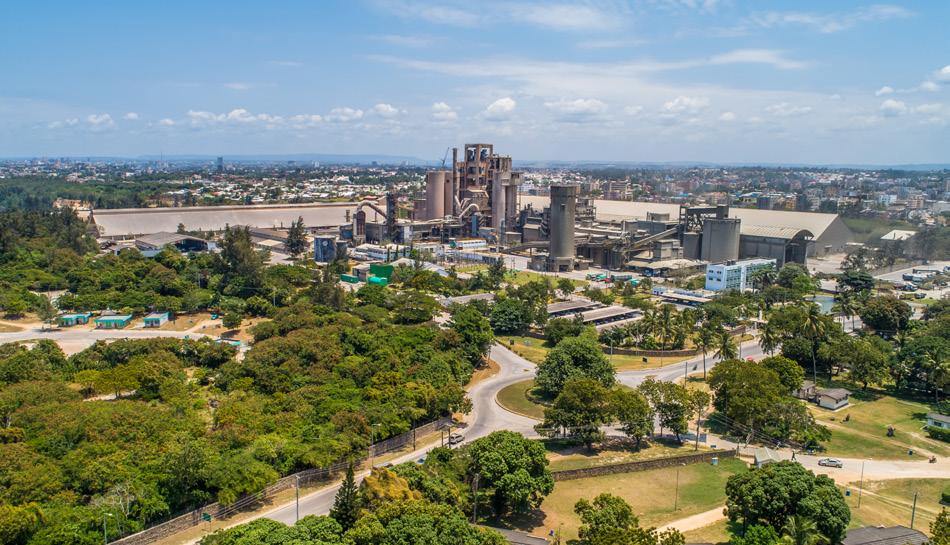
“The 2019 Economic Report on Africa by the United Nations Economic Commission for Africa ranks East Africa as the fastest growing sub-region on
the continent, with the trend being attributed to strong investment in infrastructure,” Hassani states.
“In my view, Africa offers the greatest potential for cement industry. It has the lowest urbanisation rate of any continent in the world, and therefore, in keeping with global trends, the majority of African countries have shown commitment to change the status quo and invest in major infrastructure projects from roads, railways and stadiums to new cities, power projects and more.
“It will be interesting to see how this exciting landscape changes in the coming years – we’re certainly looking forward to contributing to any transition.”
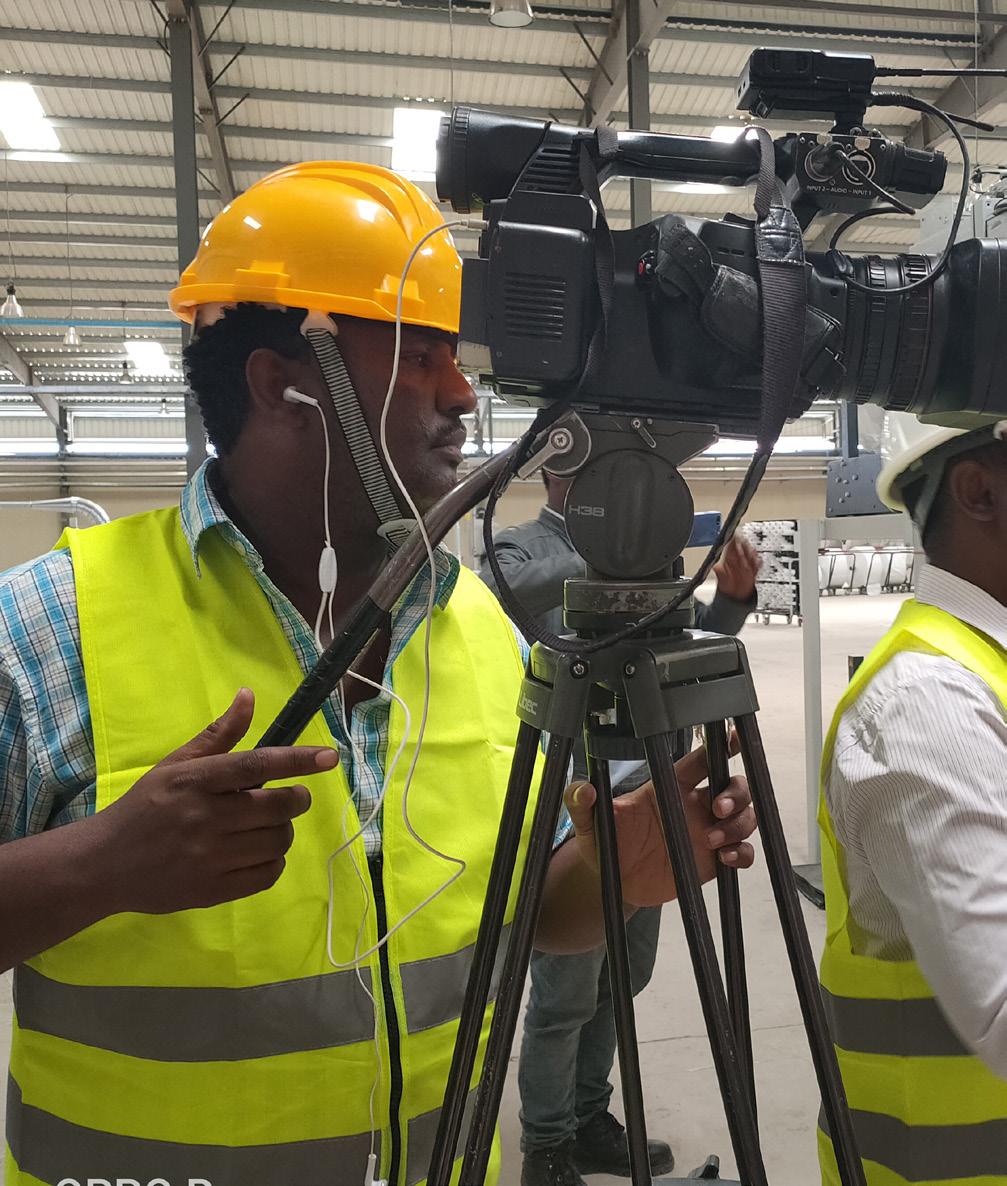
government developed two Growth and Transformation Plans (GTPs), each lasting five years.
“The first phase (2010-2015) focussed on agriculture development and support services including infrastructure preparations like human development, education, healthcare and banking. As a result, however, the country began spending millions of dollars on cement imports as local production could not sustain demand.

Economic diversification.
Described by the World Bank as arguably the greatest challenge facing developing countries, small economies and landlocked nations that are primary commodity dependent, it is crucial to achieving sustained, job intensive and inclusive growth.
For Ethiopia, such rings particularly true. Deemed the fastest expanding economy in the world after recording an annual GDP growth rate of almost 10 percent between 2008 and 2018, Africa’s third largest inland nation has been looking to consolidate on recent gains by bolstering its infrastructure and public and private offering.
Danilo Trugillo, the Country Manager of Dangote Cement Ethiopia, explains: “To support Ethiopia’s strategic plans and ambitions, the
“The turning point came in 2012 when the government called for a series of cement plants to be built locally, leading both national and foreign investors to construct new such facilities in different locations across the country.”

Dangote Cement and its flagship Mugher plant have transformed Ethiopia’s construction capacity in the past half-decade, delivering 2.5 million tonnes of high-quality building materials to the local market every yearWriter: Jonathan Dyble | Project Manager: Josh Mann
Dangote Cement itself, Africa’s leading cement producer, was one such investor.
Embracing the challenge and opportunity to make a critical contribution to Ethiopia’s sustained growth and development, the company earmarked $650 million for the construction of a flagship cement manufacturing facility at a 135-hectare site in Mugher – a town situated 83 kilometres west of Addis Ababa.
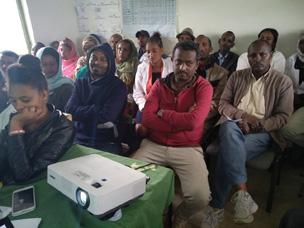
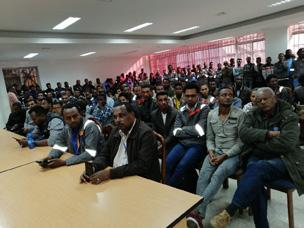
Inaugurated June 3, 2015, the facility is able to produce 2.5 million tonnes of cement every year and accounts for 30 percent of the entire local market.
“We’re proud to have stabilised the cement shortage and its resulting artificial price escalation here in Ethiopia,” Trugillo states. “Our plant has changed the cement business perspective of the country with regards to service in terms of product availability, price and quality. It plays a vital role in controlling the cement market of the country.”
Indeed, the company has garnered a revered reputation as a result, underpinned by its emphasis on maintaining a best-in-class operation.
The Mugher plant itself provides the evidence: it is the only cement facility locally to have vertical mills for its grinding processes and is uniquely run by a sophisticated robotics system, helping to ensure its products are in line with world class standards (32.5R and 42.5R).
Meanwhile, all of its machinery and control systems have been delivered by high-class European original equipment manufacturers.
Its in-house packaging facility that is currently under development and set to be functioning in March 2020, for example, will leverage Haver & Boecker’s ROTO-PACKERs and automatic loading bag technologies that have the capacity to load 6,000 tonnes of cement every eight hours. “Once complete, this facility will
produce approximately 60 million polypropylene cement bags per annum,” Trugillo affirms. “And in the cement plant our modern robotic laboratories strictly monitor product standards, and online gamma metrics system analysers are used from the raw materials stage right up to the final product.”

Operating these advanced technologies are the company’s equally adept, highly trained staff that adhere to stringent quality assurance processes to likewise guarantee quality and consistency. Yet beyond those employed in technical positions, the company is responsible for the livelihoods of thousands of others.
“Our factory creates employment opportunities for more than 3,000 people in permanent, contract and agencies directly and indirectly,” Trugillo states. “Moreover, there are 20 SMEs with more than 900 members combined benefiting from the company through job opportunities,
“Along with the whole Dangote group of companies, we aggressively focus on people development through training and international exposures”

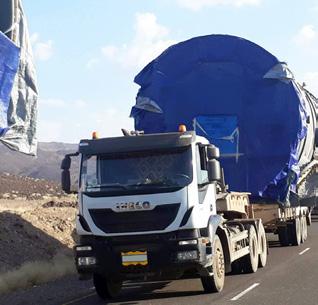
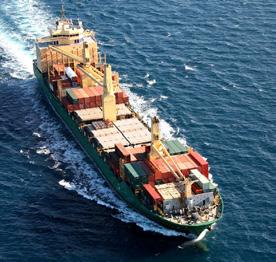

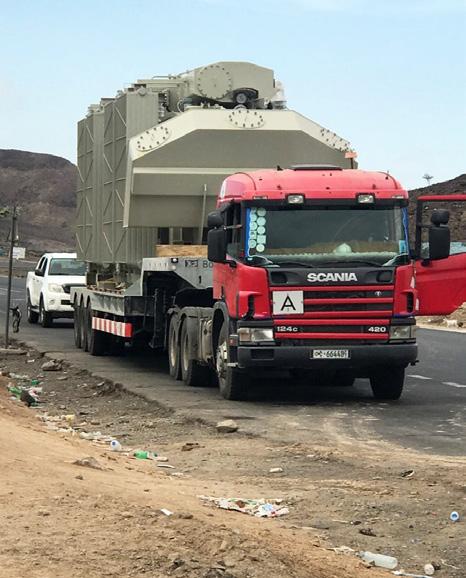
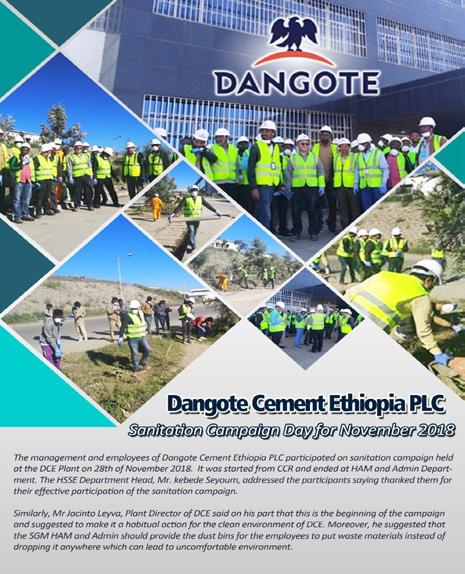
• To become a profitable organization, which satisfies its customers’ needs by producing and selling high quality cement products at a competitive price and maintaining good business values.

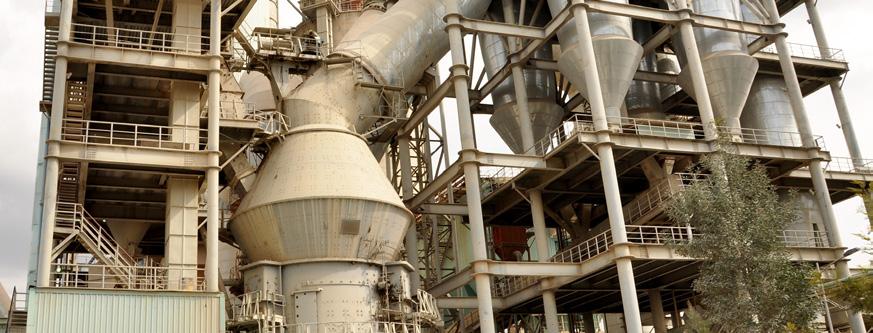

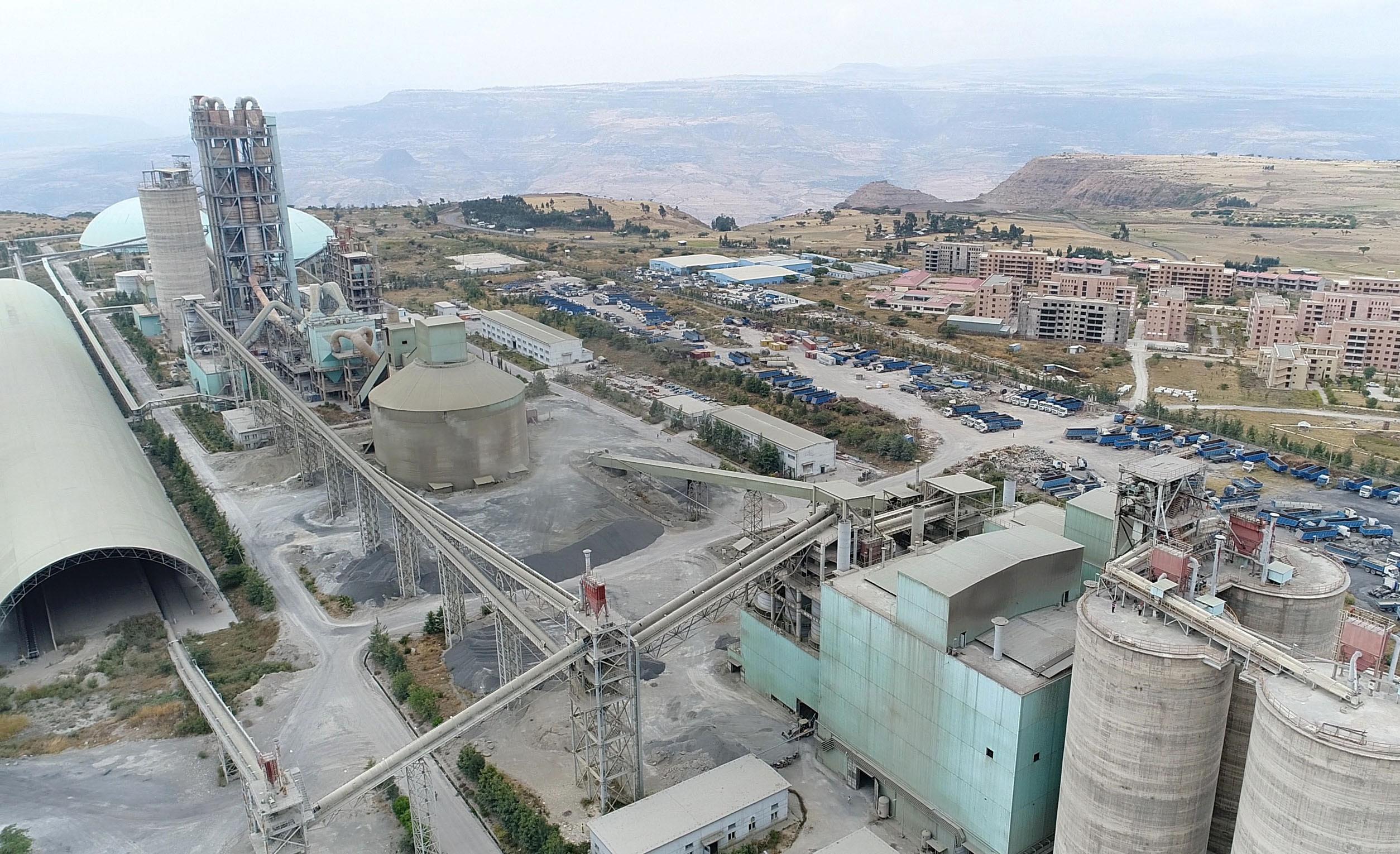
• To promote the development of our work force to b able to use high technology for efficient and cost-effective operation.
• To continuously endeavor to promote and conserve the environment using alternative fuel and other energy efficient method.
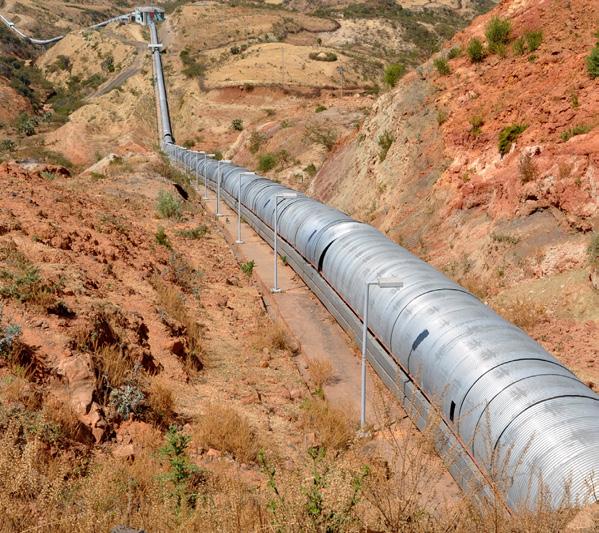




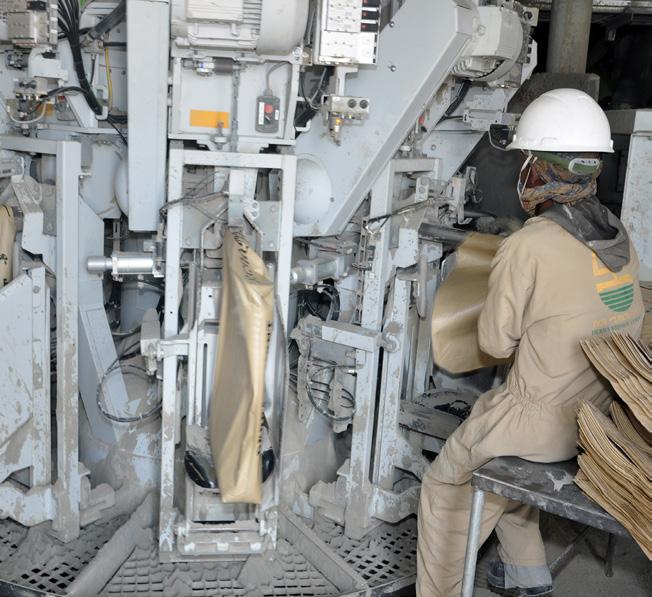
and between 50 and 100 people benefitting from job opportunities as daily labourers.
“We also have a fleet of 420 trucks that is manned by our capable logistics team – critical to supporting our inbound and outbound supply chain, and further making sure of the smooth, seamless and reliable production and delivery of cement products.”
Reducing imports and bolstering employment are not the only ways in which Dangote Cement is able to contribute to the Ethiopian landscape, however.
Corporate social responsibility initiatives are also a major part of the organisation’s overall remit, the national division having invested more than $3 million in such programmes since inaugurating its plant four and a half years ago, including schooling improvements, supplying water to Mugher town, and building roads for Mugher and Inchini towns.
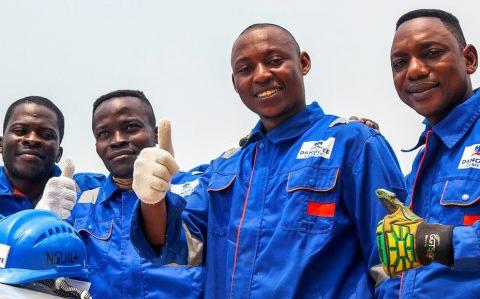
“Another area in which Dangote Cement Ethiopia is unique is the fact that we are free from environmental pollution,” Trugillo reveals.
“We undertake a major tree plantation project every year to balance the nature of our operations in the mining area and compound of the plant, and use new technologies which are unique to our plant that allow us to leverage old tires, plastic bottles of water and tattered bags of cement as a source of energy, subsequently minimising our environmental footprint pollution.”
Indeed, such practices resonate particularly well at a local level, creating an aura of respect and appreciation around the enterprise.
“Being one of the top foreign direct investment companies in Ethiopia, Dangote Cement is always the preferred company for vendors in the domestic scenario,” Trugillo explains. “It’s the company’s image and reputation that has helped to build trust, along with the transparency of
VISION:
• To be Africa’s leading producer of cement, respected for the quality of its products and services and for the way it conducts its business.
MISSION:
• To deliver strong returns to shareholders by selling high-quality products at affordable prices, backed by excellent customer service.
• To help Ethiopia and other African countries towards self-reliance and self-sufficiency in the production of the world’s most basic commodity, establishing efficient production facilities in strategic locations close to key growth markets.
• To provide economic benefits to local communities by way of direct and indirect employment in all countries in which it operates.
• To lead the way in areas such as governance, sustainability and environmental conservation, and to set a good example for other companies to follow.
VALUES:
• Customer Service – as a world-class organisation, the company understands that it exists to serve and satisfy its customers. Accordingly, customer orientation reflects intimacy, integrity and learning.
• Entrepreneurship – continuously seeking and developing new business, employing state-of-the-art methods to retain market leadership.
• Excellence – it is a large organisation, working together to deliver the best products and services to valued customers and stakeholders. To achieve this, it demonstrates teamwork, respect and meritocracy.
• Leadership – thriving on being a leader in its business, markets and communities. To drive this, it focuses on continuous improvement, partnership and professionalism.
The foundation for the establishment of Derba MIDROC cement was laid down on February 13, 2006 with the objective to play a momentous role in turning around and transforming the Ethiopian cement manufacturing sector, which was then struggling with the shortage of supply and consequently unbearable prices.
We joined the Ethiopian cement sector with a sizeable cement plant and state-of-the-art technologies. Scores have joined the sector since then including Dangote Cement Ethiopia, which is being featured in this edition of Africa Outlook. With our collective effort, the Ethiopian cement industry is currently experiencing increased supply and stabilised prices. Today, Ethiopia is also a net exporter of cement.
We are committed to environmental and social protection from the get-go. This is evident in our environmental and social management plans and actions, which we executed (during the construction of our plant) as part of the regulatory requirements of Ethiopian laws, and also as part of the environmental and social standard requirement of the International Finance corporation (IFC), which was one of the lending banks involved in the financing of our current plant.
We believe that all of our environmental and social programmes have impacted the local community surrounding our plant positively and some of the social management plans are still ongoing. We wholeheartedly aim to identify ourselves with a cement sustainability manufacturing programme to balance society’s need for cement products with stewardship of the environment and development of the local community. Hence, we are highly engaged
in community development activities, through our corporate social programmes, and we are also working together with our partners in the Ethiopian cement industry to partially replace the use of fossil fuels with biomass fuel alternatives.
For those of you who are numbers and statistics enthusiasts, the following summarises us…
We are based in Muger Valley, Ethiopia, approximately 70 kilometres northwest of the Ethiopian capital, Addis Ababa. Our plant was built with an investment outlay of around $500 million. We plan to double our production capacity, which currently is 8,000 tonnes of cement per day. We mainly produce OPC and PPC cement that meet the requirement of the Ethiopian National Standard. Currently, we command a 20 percent market share in the Ethiopian cement market and are expanding to markets in northern Kenya and Somalia.
 Haile Assegide Chief Executive Officer
Haile Assegide Chief Executive Officer
www.derbacement.com

our operations within the community and regulatory agencies from the government.
“Our aim is to always be part of the solution in resolving national challenges, aiming to localise the main inputs of our work. This spans everything from the supply of spare parts and raw materials to fuels and other associated products and services.”
Its staff unsurprisingly have a similar affinity for their employer, testament to a series of progression programmes that are tailored to each individual.
The Country Manager continues:
“Along with the whole Dangote group of companies, we aggressively focus on people development through training and international exposures. One of our long-term aims is to create an Ethiopian expatriate community that will provide the option of travel to other African countries where Dangote also operates.”
In contrast to these international ambitions, however, there is still much to be done at the local level in a broader Ethiopian context.
The second GTP covering the period 2015-2020, focussed on the industrialisation of the country, is nearing its end and has slightly underperformed owed to different social, political and economic factors. As a result, Ethiopia continues to lag behind many of its African counterparts.
“Cement consumption per capita in Ethiopia is still at 75 kilograms while adjacent countries like Egypt are already at more than 300 kilograms,” states Trugillo. “This does, however, show huge opportunity in Ethiopia for the medium term, should the number of projects that the government has
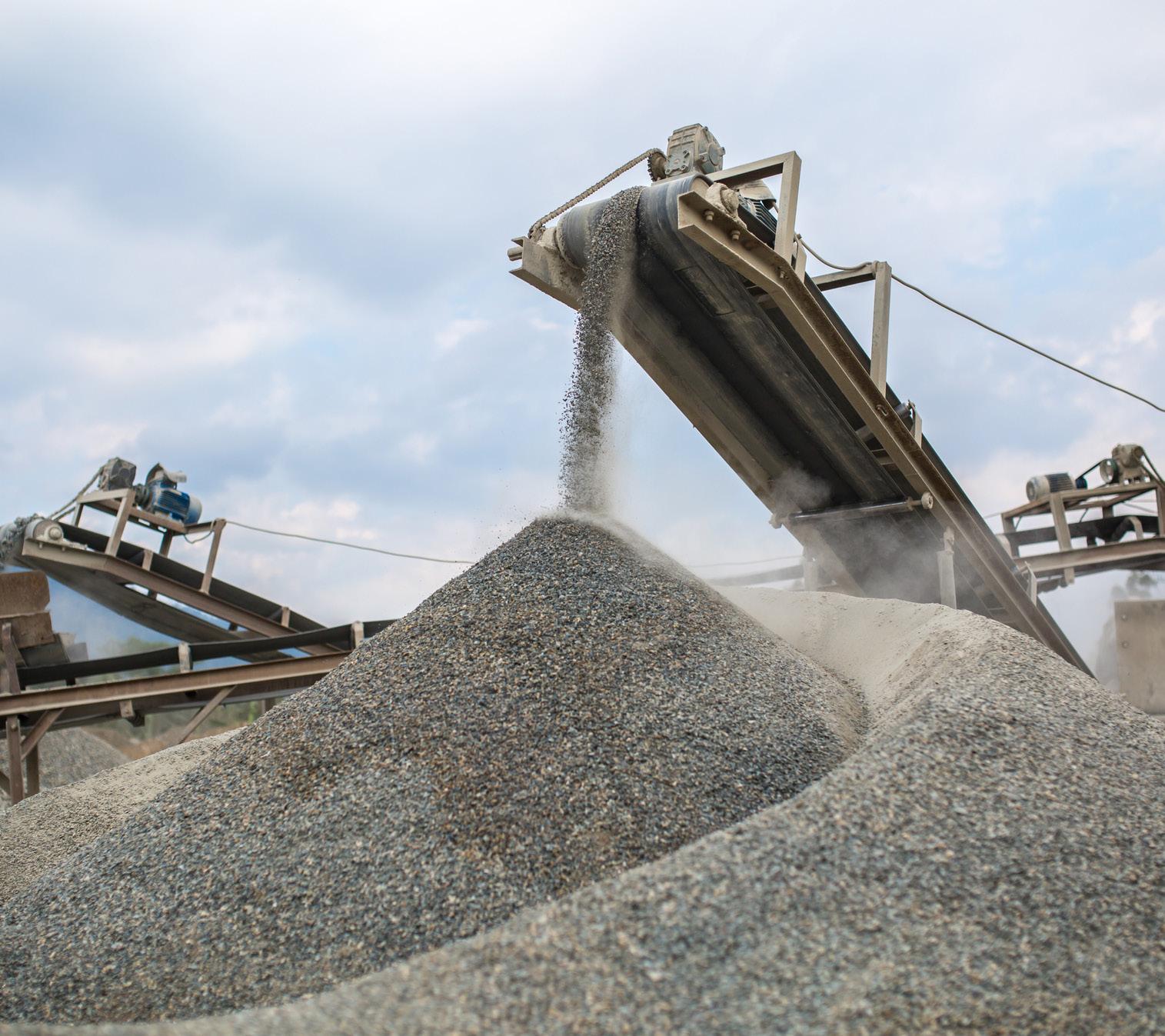
“FOR US AT DANGOTE, THE PLAN IS TO DOUBLE CAPACITY AND BECOME MORE AGGRESSIVE IN EXPORT MARKETS”
capacity to finance rise.”
Pointing to a report which suggests that a possible increase can and will happen, the Country Manager is able to conclude our conversation with a degree of optimism, confident that not only the construction sector but the country as a whole is heading in the right direction.
He affirms: “Ethiopia’s capital budget expenditure has been rising continuously during the course of the past 10 years, and total cement consumption will be increased further should the growth of urban populations be supported by a proportional
increase in incomes.
“Naturally, the need for more housing and the associated infrastructure will cause construction demand to increase. And for me, Ethiopia’s high construction demand will stay at the heart of Africa’s economic revolution, with the industry predicted to grow by at least 15 percent in the next year.
“For us at Dangote, the plan is to double capacity and become more aggressive in export markets. Looking longer term, the ultimate way for our company to be more competitive is to improve our productivity and reduce our emissions, so for the next three



“We undertake a major tree planta tion project every year to balance the nature of our operations in the mining area and compound of the plant, and use new technologies which are unique to our plant that allow us to leverage old tires, plastic bottles of water and tattered bags of cement as a source of energy, subsequently minimising our environmental footprint pollution”
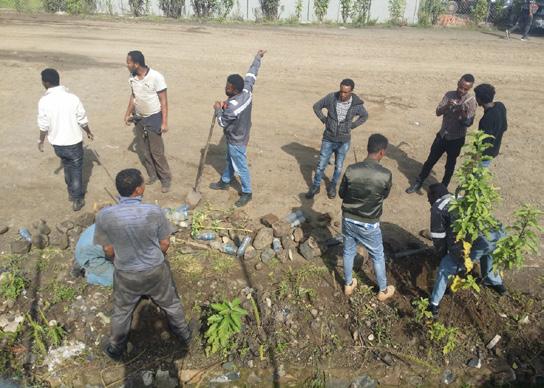
years we’ll also be aligning with the country’s ambition to have a clean and resilient green economy.
“It will certainly be a busy but exciting time ahead.”
With a hands-on approach to all projects, Daffonchio Architects is looking to expand its reach abroad as it continues to deliver landmark designs in Johannesburg and Cape Town
Writer: Tom Wadlow | Project Manager: Eddie Clinton
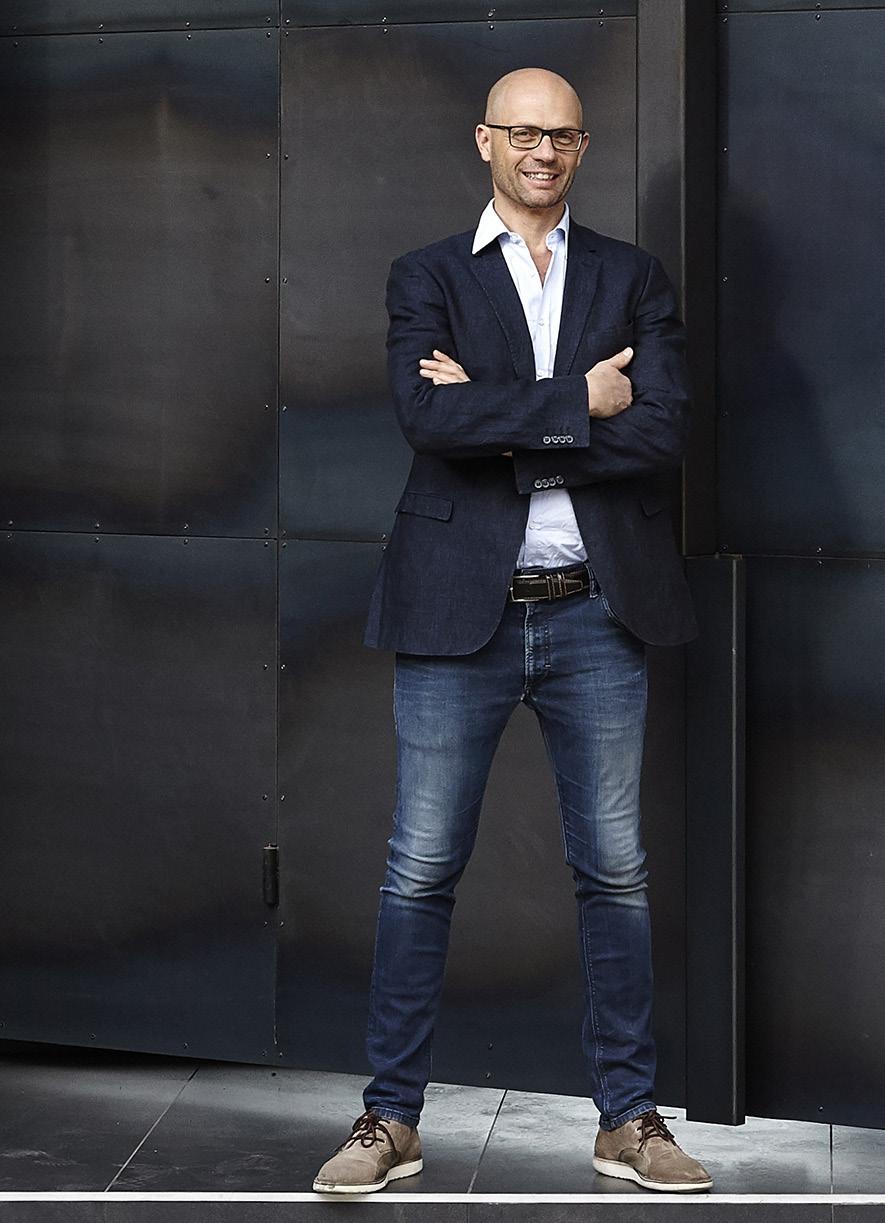
Since I was a child, I have always been fascinated by construction and beautiful design,” muses Italian architect Enrico Daffonchio.
“I was exposed to an architectural studio environment when I was 10 years old or so, when a friend’s dad who was an architect used to give us small tasks such as colouring up plans.
“My decision to set up my own firm was therefore not a business decision, but rather a case of finding a path that I enjoyed very much. Being an entrepreneur rather than following a corporate career I think is just what suits me best.”
In 1996 Daffonchio Architects was born.

Based in Johannesburg, South Africa, today its work covers not only its home city but also Cape Town, Dubai and Milan, the latter three combining to represent around 40 percent of its activities.

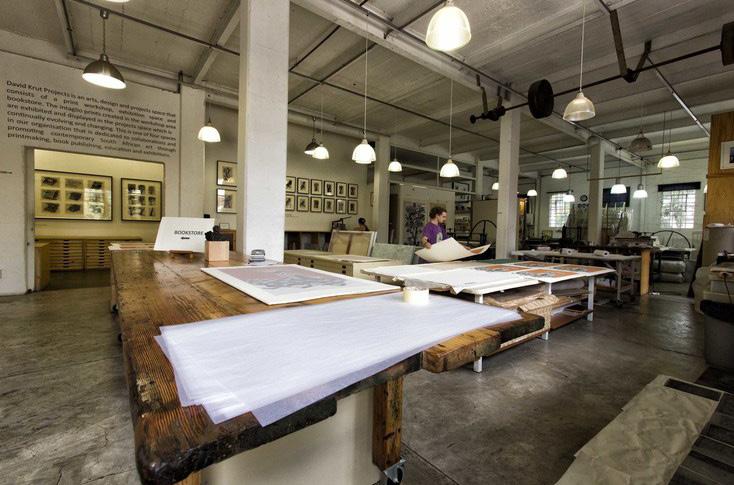
“Our home market is still tremendously exciting,” Daffonchio continues. “The Sub-Saharan Africa region is always more active than, say Europe, because so much infrastructure is still lacking.
“I love the variety of opportunities that this region offers. The tourism sector provides opportunities to design more hedonistic projects, while the need for mass housing poses interesting challenges in sustainability and urban design. We are based in the Johannesburg-Pretoria area which is one of the world’s megacities, and this is very exciting, as urban regeneration opportunities are enormous and well incentivised.”
The company’s move into a newly regenerated green building is reflective of its approach to design and the promotion of a more sustainable built environment.
For example, its recent project at 78 Corlett Drive in the Melrose North area of Johannesburg is ground-breaking in many ways, not least because it has achieved a Green Building Council

6 Star Rating and Net Zero Carbon accreditation.
It is the first office development in Africa to be awarded such a status, fitted with electric car charging stations, full cyclist facilities, passive solar shading design and a full photovoltaic array.
“We worked on this for Legaro Properties, and it is an important milestone for us because as well as the green credentials, it is making an above average return for the developer,” adds Daffonchio.
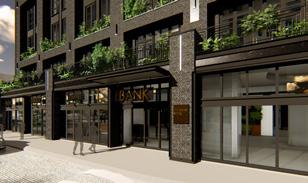 Nuvola Shelf by Enrico Daffonchio, exhibited at the Southern Guild. Cumulonimbus in shape, this shelf houses a collection of carefully curated “found” objects.
The David Krut Workshop at Arts on Main in the Maboneng Precinct, Johannesburg
The Bank, in the Rosebank CBD, set to launch September 2020
Nuvola Shelf by Enrico Daffonchio, exhibited at the Southern Guild. Cumulonimbus in shape, this shelf houses a collection of carefully curated “found” objects.
The David Krut Workshop at Arts on Main in the Maboneng Precinct, Johannesburg
The Bank, in the Rosebank CBD, set to launch September 2020
“It is a beautiful building too, and people seem very happy working in its environment, so it is all-round a project we are very proud of.”
The Founder is quick to point out that the company puts equal effort and emphasis on quality and sustainability into all of its projects, its pipeline of completed works demonstrated such a commitment.
An ongoing development, also in Johannesburg, is The Bank in Rosebank.
“This is a great story because it rolls together urban regeneration,
sustainability, mixed-use, a privatepublic space interface, landscaping and more,” Daffonchio continues. “It is a very articulate project that I feel will uplift an area that needs more considered developments, at a time where generic towers are being piled next to one another.”
The Bank is far from a generic tower. Spanning 12 storeys and around 14,300 square metres, the project involves expanding on the structure of the current bank building while retaining its character.
The ground floor houses retail space and a restaurant, as well as a reception area for the hotel which occupies the other 11 storeys along with offices.
Again, sustainability is front and centre of the design. The building predominantly uses renewable energy from rooftop solar panels and a heat recovery system which utilises waste heat from the HVAC system to heat
water for the hotel.
This, as with all Daffonchio Architects’ projects, is the result of a highly personalised way of doing business inspired by the Founder.
“We are a boutique firm with only 20 architects in total, all highly talented and skilled, all capable of handling all the aspects of a project,” Daffonchio explains. “I chose a qualitative growth path rather than a quantitative one – I would not enjoy running a practice with hundreds of architects. This allows me to have a personal work relationship with each of our clients.”
It also enables the company to execute a wide range of projects, from luxury homes and urban regeneration schemes to off-grid office campuses and large residential and mixed-use schemes, its architects provisioned with a real-world approach to training and development.
“We look for talented and intelligent
Outside of Johannesburg, Daffonchio Architects has worked on a number of landmark projects in the likes of Cape Town and in Kruger National Park.
7 CALAIS ROAD, SEAPOINT, CAPE TOWN: A picturesque residential development on the Atlantic Seaboard comprising four luxury apartments designed for an ultramodern urban lifestyle.

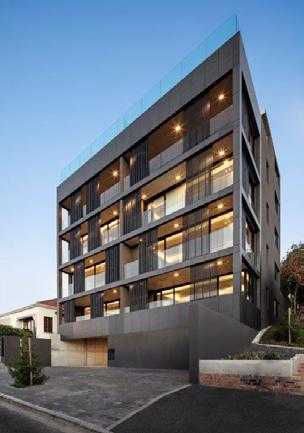
UNTAMED PAVILION, KIRSTENBOSCH, CAPE TOWN: Designed in partnership with sculptor Dylan Lewis at the Kirstenbosch Botanical Gardens, this is a structure created for the pure purpose of communicating an idea or message, visually blending into the building’s surroundings.
THE OUTPOST LODGE, KRUGER NATIONAL PARK: Nestled in the most remote park of the stunning Kruger National Park, The Outpost Lodge was as created a result of a ground-breaking agreement between the Makuleke people and the South African National Parks Board. Made up of 12 freestanding units, it was named Wallpaper Magazine’s Best Safari Lodge in 2003.
Daffonchio, as well as praising his team of 20 highly skilled architects, also outlines the vital role played by external partners and suppliers in helping to bring projects such as the above to fruition.
He says: “The building contractors, clients, artisans and technical consultants are an integral part of our success, we always make an effort to work with them as one team.”
We are a specialist property law firm with a creative focus on positive outcomes for our clients’ requirements. Exceptional service is our differentiator in a competitive environment.

Taps inspired by life.
www.tcinc.co.za
young people and then train them internally in technical, legal and design skills,” Daffonchio adds.
“I encourage getting a ‘sense of the world’ rather than becoming ‘experts in architecture’, and by this I mean that a good architect must understand the global socioeconomic and cultural realities, and not just be great at our profession. I believe that the more an architect is interested in the reality outside the profession, the better.”
It is an outlook which has stood the company in good stead for more than two decades, the next chapter of its story very much centred around broadening its horizons in other parts of the world.
The UAE is a particularly exciting proposition for Daffonchio.
“Yes, I am very interested in the UAE because I feel that, while the financial muscle of the area is phenomenal, so much could be improved in urban design and architectural thinking,” he says.
info@blutide.co.za | www.blutide.co.za

“I feel that we could challenge the way things are done and be very competitive there. We have started our first project and we are definitely looking for more opportunities there.”
And Daffonchio is confident his architects can live up to a global billing, his concluding remarks restating his confidence in the team he has built up since building the business in 1996.
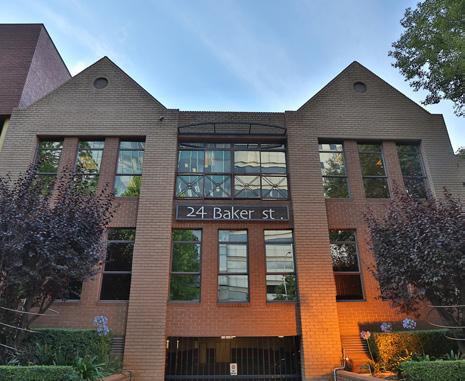
“In truth, I constantly benchmark our firm with the leaders in the region and in the world, trying to match and

exceed them in every aspect,” he says. “So, while I don’t know if we are better or different, we certainly have a constant tension towards excellence.”
DAFFONCHIO ARCHITECTS

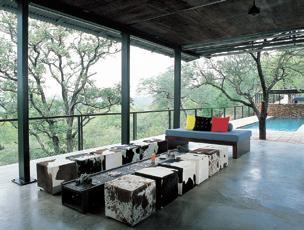
Tel: +27 11 447 8118
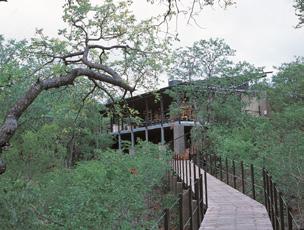

info@daffonchio.co.za
www.daffonchio.co.za
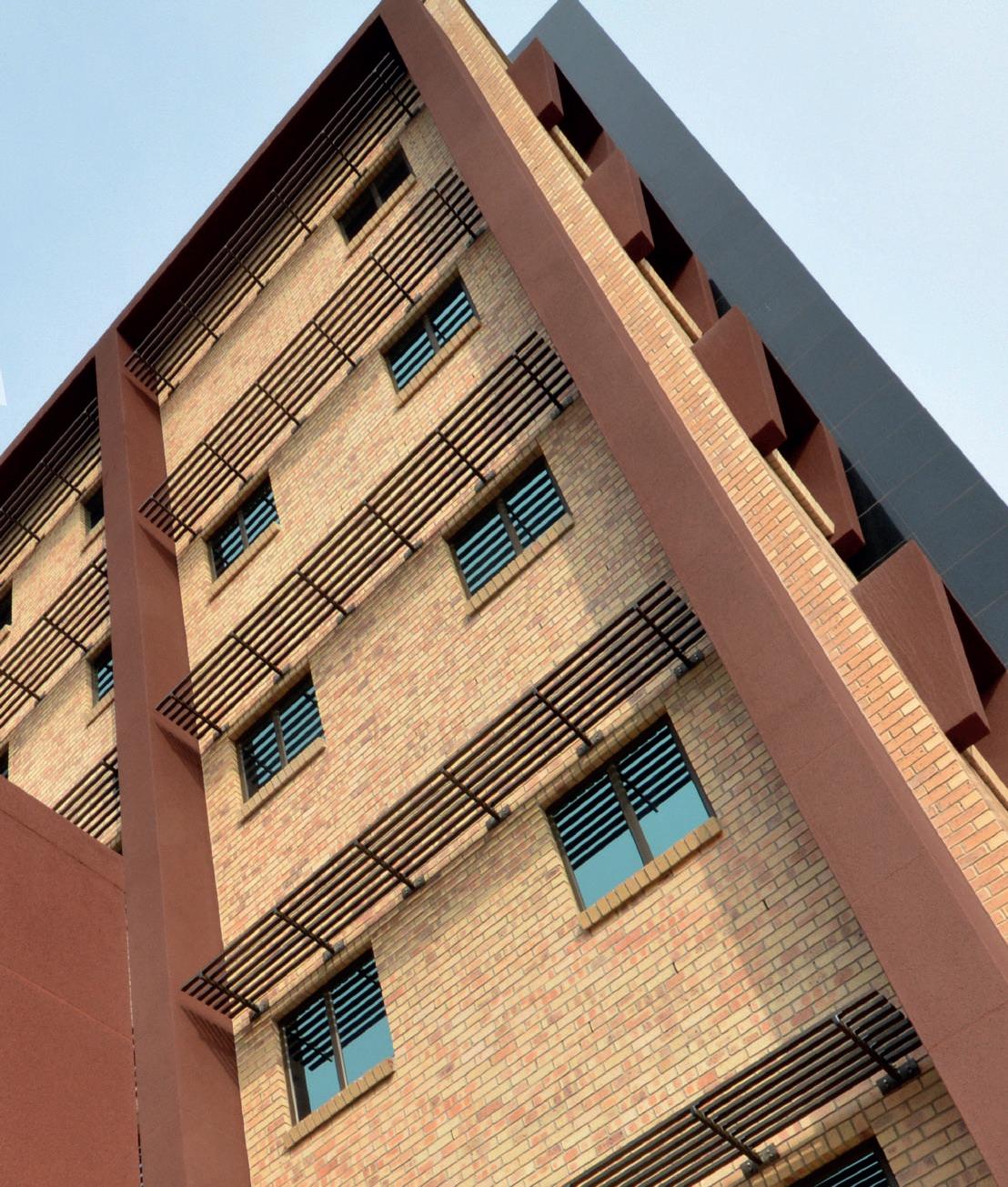

Despite imperfections and shortcomings, South Africa’s policy of black economic empowerment has helped to shift the dynamics of the country’s post-apartheid socioeconomic backdrop.
Stretching far beyond a moral redress, the policy is also a pragmatic growth strategy to help realise South Africa’s full economic potential by helping to bring the black majority into the economic mainstream.
The process is by no means complete. However, many enterprising black-owned businesses have risen to the forefront of their industries, contributing to the economic development of regions nationwide and helping to uplift the communities they serve.
In the construction arena, Vharanani Properties stands proud as a 100 percent black-owned success story.
Set up in 2001 by David Mabilu, who still serves as CEO to this day, the company has built itself into one of South Africa’s premier infrastructure development specialists, covering roads and bridges, reservoirs, bulk earthworks, water infrastructure, schools, clinics, community centres, office buildings and more.
Vharanani Properties is one of four entities within the Vharanani Group, an organisation providing oversight and resources to its family of subsidiaries in housing, infrastructure, property development and ICT solutions

And despite the well-documented troubles facing the nation’s building industry, Vharanani Properties has continued to stand tall. For instance, in 2018 it was recognised as the best performing black owned and managed construction company in South Africa.
For current Operations Director Chris Mthombeni, the decision to come on board in 2017 represented a perfect marriage of passions.
“I joined Vharanani Properties because I wanted to be part of a growing black owned company,” he says. “I have always been intrigued by beautiful concrete structures around town, and that led to my interest in wanting to know how these structures are constructed, so this was always the profession for me.”
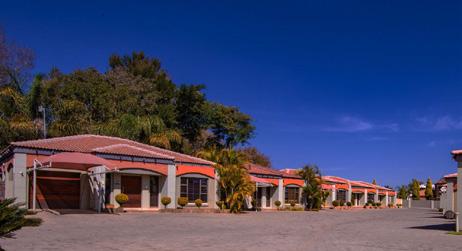
The Operations Director is one of many employees who are vital to the successful delivery of Vharanani Properties’ projects, its cohort of skilled staff identified as its greatest asset.
“Training is important to Vharanani in order to have the right skills for project delivery,” Mthombeni adds. “We employ experts in their field and our people’s development is at the heart of what we do, hence the continuous building up of our staff in all the areas of their specialisation. This is key in delivering all our projects.”
Indeed, Mthombeni has himself
Established in 2001, Vharanani Properties’ portfolio of projects spans across the entire spectrum of sustainable infrastructure development, from residential, commercial and public buildings to roads, waterworks and property development.
It is a Level 2 BBBEE company which is ISO 9001: 2015 certified, formed around a culture of teamwork and collaboration which drives its approach to each and every project.
VISION: To be an infrastructure provider of distinction.
MISSION: To restore people’s dignity through infrastructure development.
VALUES: Professionalism, Accountability, Transparency, Honesty (PATH).
witnessed the successful delivery of a number of landmark builds during his tenure.
In Pretoria, for example, Vharanani Properties has constructed a new bus depot in the heart of the City of Tshwane – named Belle Ombre, it is designed to cater for buses on the new Bus Rapid Transit system, commonly known as BRT, and a vital new means of transportation for local citizens.
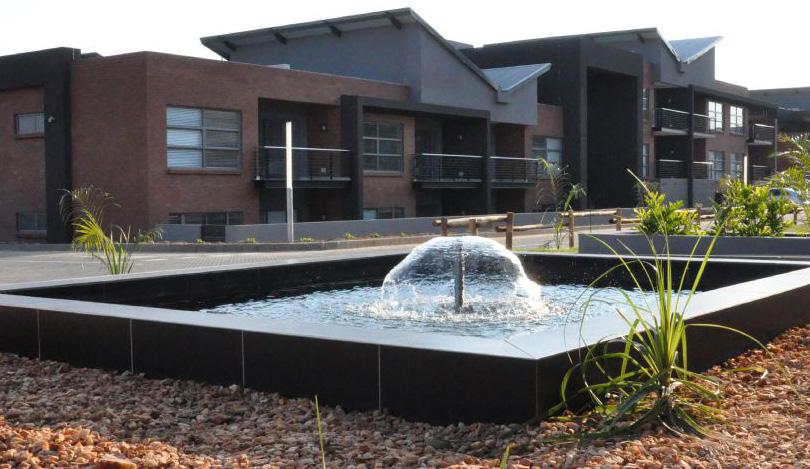
“The bus depot was a complete project awarded to Vharanani Properties because of its prestige to the city and value it would create in housing the buses and the administration building for the employees of the Riyavaya BRT system,” Mthombeni explains.

“The project consisted of hard stand parking areas for the buses, a state-ofthe-art mechanical workshop for servicing and repairing the buses, and an administration building with facilities, canteens, boardrooms and offices.”
Another flagship project, one which Mthombeni cites as particularly demanding and therefore special to the company, was delivered in Polokwane’s central business district (CBD).
It involved the replacement of the AC pipes network – Vharanani Properties was enlisted with the challenging task to install new, fit-for-purpose HDPE pipes without disruption to the water supply of businesses and residents in the area.
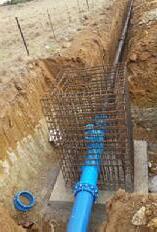
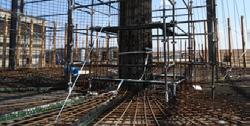
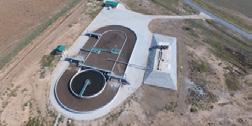

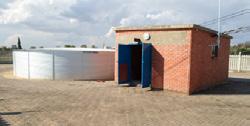


As well as delivering for clients and communities with its own workforce and dedication, Vharanani Properties also relies on a network of esteemed partners and suppliers to function on a day to day basis.
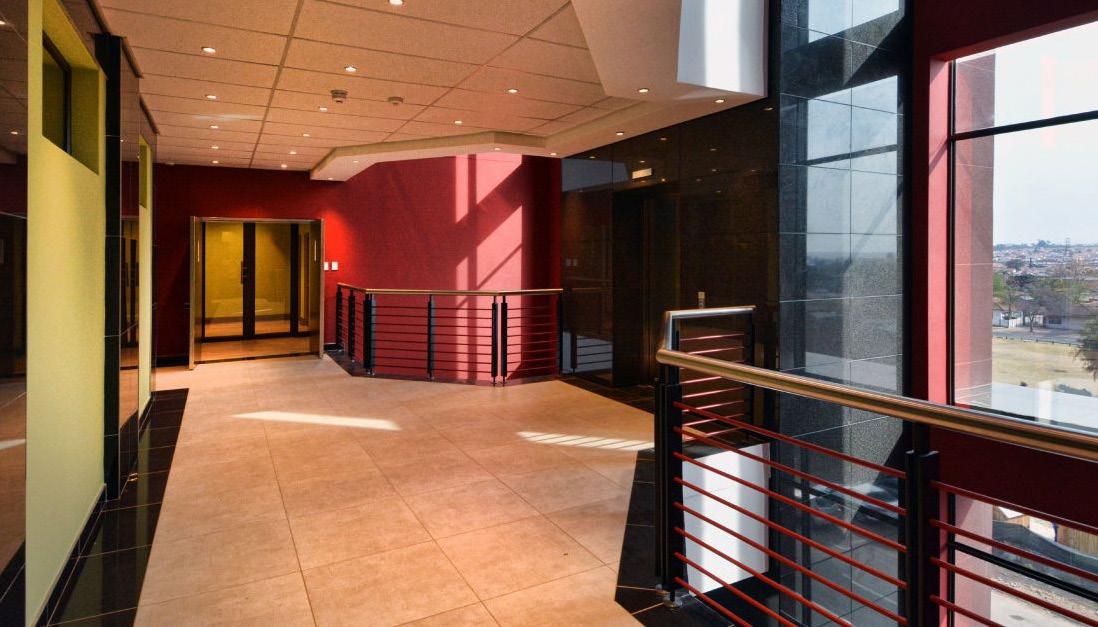
Asked how important these collaborations are, Mthombeni comments: “Building relationships with suppliers is key to Vharanani so that we work with partners and suppliers that understand our culture and way of doing things.
“We know who we do business with and we can count on them delivering what is expected of them – on time and within the required specifications – so that Vharanani Properties can meet its project deliverables in terms of quality, safety and budget.”
To counter the challenge, the company made use of an innovative technique. Mthombeni explains: “This involved some 78 kilometres of pipes ranging from 110 millimetres to 650 millimetres in diameter.
“We adopted a trenchless method called pipe cracking and horizontal directional drilling, where a temporary water bypass had to be created before pipe cracking could take place. The project was special to Vharanani Properties as all the AC pipes were replaced without having to use conventional methods of open trenches.”
As a result of the successful project delivery, the Polokwane CBD now benefits from a long-term, more reliable and safe water supply.
In Limpopo, the company is helping to link local people to vital amenities through the construction of a critical link road.
The community in question is Marulaneng, a village in the Sekhukhune District Municipality of the province which has been disadvantaged by poor connections to larger settlements and facilities. In response,
Vharanani Properties is building a 22-kilometre stretch of road with six bridges and several in-situ and precast concrete culverts.
Mthombeni expects the project to be complete ahead of schedule (by September 2021), the initial work beginning in April 2018 and within budget.
“This is important to our company as this road will bring much needed relief to the community which did not have proper roads to access clinics, schools and shops – hence we are helping to improve people’s lives. Vharanani Properties is all about restoring people’s dignity through infrastructure developments.”
Project delivery is not the only way the company is impacting communities for the better, however.
It channels all of its corporate social responsibility efforts through David Mabilu Foundation, the CEO’s philanthropic organisation which aims to uplift the socioeconomic conditions of the most vulnerable people in South African society.
The foundation does this through a variety of activities, including provision of educational services for
Vharanani Properties’ range of services and knowledge is formidable, as shown by its core capabilities and project scope.
Core capabilities
• Project management
• Civil engineering construction

• Construction management
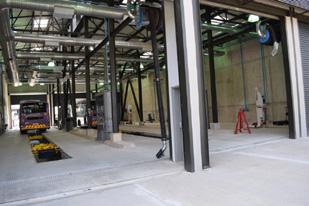
• Greenfield property development
• Turnkey solutions
• Land development
• Design and building
• Sustainable human settlement

Project scope
PUBLIC SECTOR: roads and water infrastructure, wastewater infrastructure, hospitals, schooling and housing infrastructure, student accommodation.
PRIVATE SECTOR: luxury residential houses, apartment and townhouses, retail and commercial offices, industrial buildings, roads and civils, structures.
disadvantaged children, shelter for those in need and support for women aspiring to develop their own careers. More widely, it contributes towards the establishment or enhancement of community training programmes designed to encourage entrepreneurship and job creation.
For example, in February last year the 100 Ekurhuleni Shining Stars programme was showcased at an event sponsored by Vharanani Properties. Here, accolades were bestowed on the brightest youth under 35 years old in Ekurhuleni in the areas of education, justice and law, health, arts, culture, media and entertainment, science and technology, business and entrepreneurship, environment, civil society and youth activism, philanthropy, politics and governance.
CEO Mabilu commented at the time that “our investment in the youth is an
investment in the future”, and it is this forward-thinking, community-driven ethos that will continue to drive the agenda of Vharanani Properties for years to come.
For Mthombeni, his business priorities are simple – to diversify further and focus on positioning the company for what he expects to be an upturn in the South Africa construction industry.
Achieve this, and Vharanani Properties will continue to restore dignity to people’s lives.
Tel: +27 11 656 1418
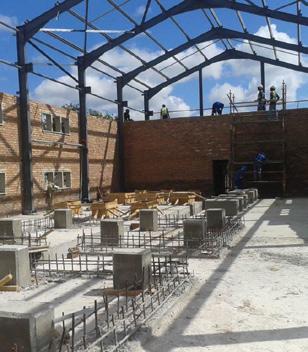
info@vharanani.com
www.vharanani.com
People lie front and centre to GAPP’s approach to architecture and urban planning, the South African firm working across borders having played a lead role in many of its home nation’s landmark buildings
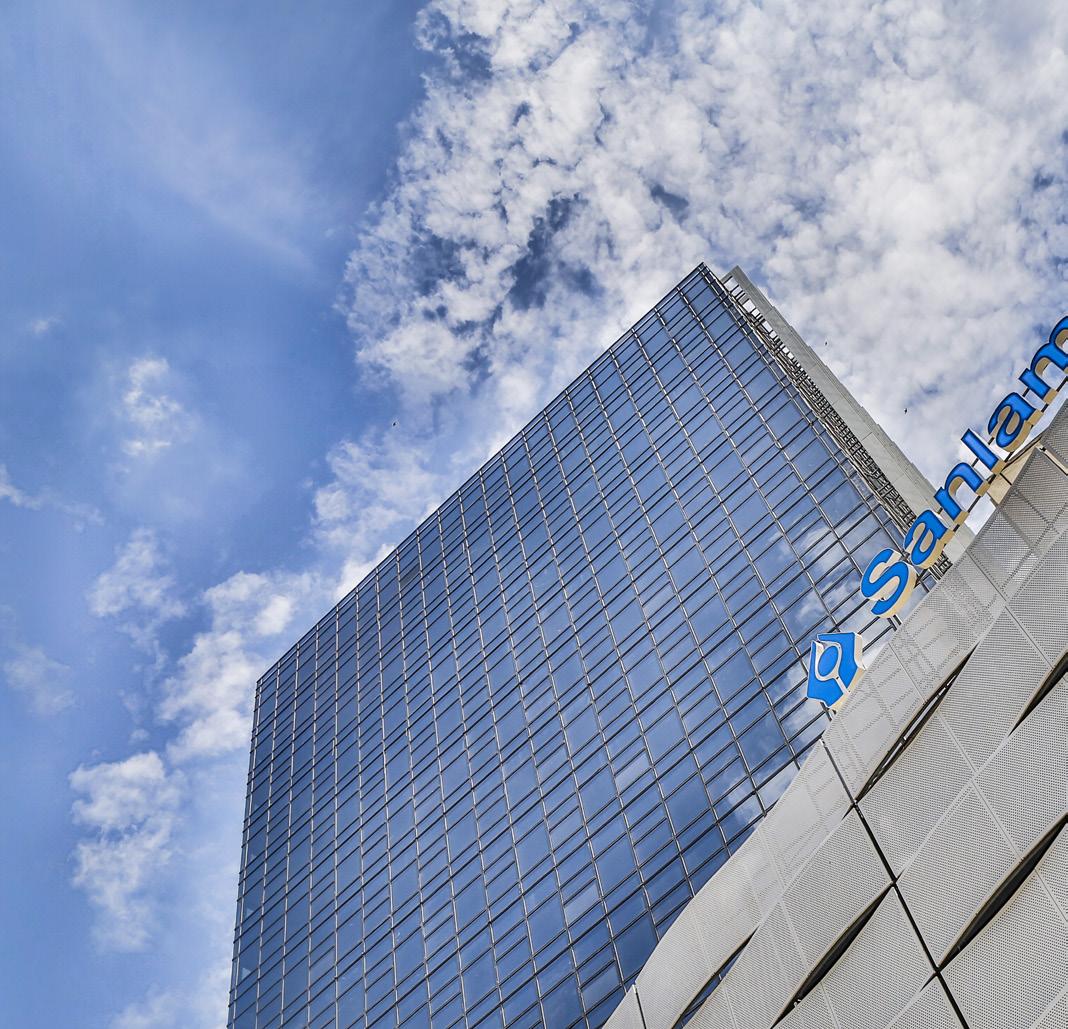 Writer: Tom Wadlow | Project Manager: Eddie Clinton
Writer: Tom Wadlow | Project Manager: Eddie Clinton
The late British-Iraqi architect Zaha Hadid once said that “architecture is really about wellbeing”.
Reminding us of the impact a construct can have on any given individual’s life, Hadid’s observations reveal how the thought process behind an architect’s work stretches far beyond simply an assembly of materials to provide shelter.
“I think that people want to feel good in a space… on the one hand it’s
about shelter, but it’s also about pleasure,” she went on to say.
For South Africa-based GAPP Architects & Urban Designers (GAPP), these words resonate particularly strongly.
“GAPP considers people at the heart of its architectural ethic and is inspired to find thoughtful and reflective design solutions to complex needs,” explains Director Sarvin Naidoo.
“The guiding aspiration for all our projects is to achieve sustainable,
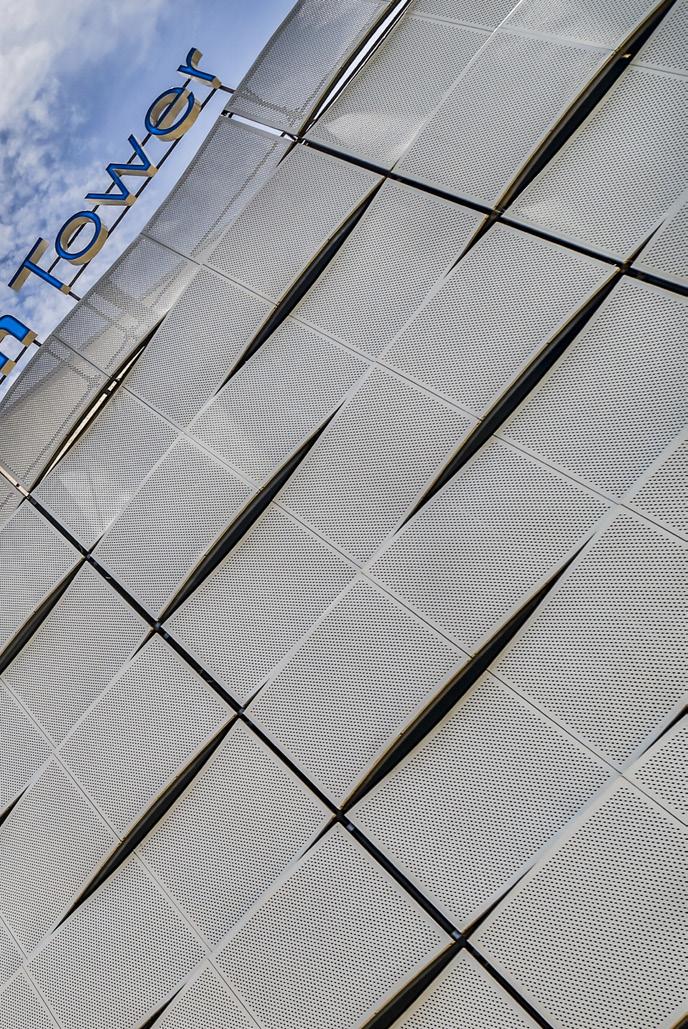
liveable, high quality and vibrant living environments. Our goal is to ensure that your project makes a positive contribution to the transformation, regeneration and rebuilding of our built environment.”
Naidoo has been part of the GAPP leadership team since 2006, the firm built on 40 years of track record which has seen it rise to one of South Africa’s foremost legacy architecture and urban design players, its award-winning portfolio made up of some of the country’s most prestigious and highend signature buildings.
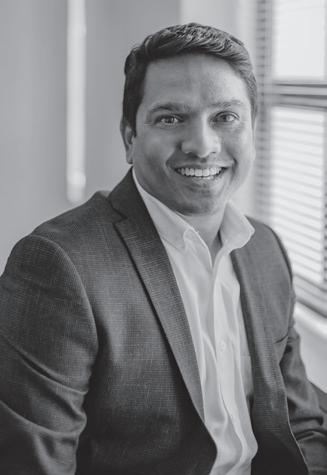
A key differentiator? The ability to design, deliver and manage large and complex public, commercial and institutional work for a wide client base, including both public and private sector clients.
“GAPP’s strategic market positioning is providing professional services targeted at sustainable, innovative solutions supported by a high-end design brand, expert technical knowhow, and by employing talented professional architectural and urban design staff engaging in a wide range of complex and varying activities,” Naidoo adds.
Central to GAPP’s recent strategy has been a concerted effort to work beyond South Africa’s borders.
Through establishing non-equity cooperative alliances with partners across the likes of Kenya, Rwanda, Nigeria, Botswana, Ghana, Uganda, Malawi, Mozambique and Zambia, among others, the firm has mastered what Naidoo refers to as the art of collaboration.
Indeed, GAPP has become a trusted foreign partner in these markets thanks to the cost-effective and responsible resourcing operating model of its partnerships. For most projects, GAPP serves as the lead design consultant and is responsible for the upfront concept and design development work stages, while the host country partner oversees the latter work stages such as local authority submission, contract administration and project close-out.
It has proven to be a winning formula, a landmark example being the completion of Coca-Cola East Africa’s headquarters in Nairobi in 2005, a project which provided a catalyst for GAPP to grow both its regional architecture and urban design portfolios.
Kenya continues to represent an active market for the company.
Here, Naidoo highlights two standout commercial developments for insurance firms British American Insurance Company (Britam) and Sanlam Insurance, both in the capital city.
“Designed by Chris Kroese, a former director of GAPP, Britam Tower’s prominent design arose in response to the client brief to define a modern, yet elegant building within Nairobi’s skyline,” says Naidoo. “Inspired by the iconic Mount Kenya, the prismatic geometry allows for a variety of floor plate sizes and tenant requirements while providing panoramic views over the surrounding city.
“Each level is designed to maximise available floor space, promoting
GAPP Architects & Urban Designers (Pty) Ltd (GAPP) was established out of a joint venture relationship between two renowned and reputable architectural and urban design partnerships. Gallagher, Aspoas, Poplak, Senior (GAPS) was established in 1983 and based in Johannesburg, while Prinsloo Parker Flint Elliot van den Heever (PPFEvdH), was formed in Cape Town in 1990. The two parties merged formally in 1993.
Its expertise can be divided into two major disciplines:
ARCHITECTURE: Portfolio extends across a range of subsectors which include mixed use, residential, hospitality, urban regeneration and heritage, retail and commercial, civic and cultural, healthcare and education.
URBAN DESIGN: Portfolio includes transit orientated development, campus planning, mixed-use development, affordable housing, residential development, public transport precincts, small town regeneration, CBD regeneration, brownfields redevelopment, waterfronts, marinas and resorts.
A full list of projects can be viewed at: www.gapp.net/en/our-work
collaboration and visuospatial exploration – highly conducive to a healthy work environment.”
With its 31-storey tower, Britam Tower is adding 31,500 square metres of lettable commercial space to the region, the 18-storey Sanlam Tower contributing another 15,000.
“Sanlam Tower draws upon lessons learned on previous projects to create a timeless design that will appeal to many generations while remaining appropriate to its lifecycle,” Naidoo continues. “It was designed to be constructed quickly and within the allocated budget, but keeping in mind its functionality and durability after completion.
“Sanlam Tower features a unitised curtain wall glazing system that is applied to all four façades. Unitised curtain wall systems are typically completed off site and hung on the building structure, providing significant benefits to larger projects by facilitating a more efficient installation,
reducing costs on site as well as providing better thermal and quality control of the interior climate.
“The façade design also highlights the thoughtful consideration given to the correct combination of solar factor and U-value requirements, essential in cutting down the net energy requirements of the building.”
Both projects discussed by Naidoo are testament to the collaborative approach to business adopted by GAPP, the firm also priding itself on collaboration between disciplines and with a wide variety of strategic alliance partners across the continent.
This is where fellow Director Erky Wood enters the conversation. A specialist in urban planning who has learned directly from some of the field’s early pioneers, Wood is all too aware of the need for architecture and urban planners to appreciate each
other’s contribution to the bigger picture.
“One cannot understand urban policy without understanding its three-dimensional implications in form and space,” he says, “and architecture’s real value lies in the contribution it makes to urbanism and the society, economy, culture and symbolism of the city.
“Sadly, if not seen through an urban prism, architecture may not only fail to make this contribution but in fact withdraw this energy from the city. Many firms have now embraced this, but I think it’s fair to say GAPP pioneered it at scale.”

Wood’s mentor – the late GAPP Director and great friend Glen Gallagher – studied under Louis Khan, a professor of architecture in the early 1960s at the University of Pennsylvania, where modern urban design is largely accepted to have grown its roots.
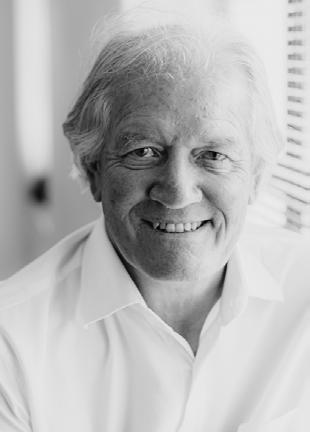
GAPP thus has urban design
engrained in its DNA, and Wood has also adopted the ethos of two fellow South African heavyweights.
“Roeloff Uitenbogaardt and Dave Dewar, two doyens of urban design in this country, coined the mantra
‘in optimising nothing, we optimise everything’,” he continues. “This means that if we optimise any single aspect of the city in isolation, we perforce compromise other aspects of the urban system.
“We do this catastrophically in South Africa in so many ways, and the sterilisation of the city’s economic and social capital through traffic engineering is possibly the most obvious and lamentable.”
GAPP is doing its utmost to address this imbalance.
Wood cites the Ntshongweni initiative as a prime example of how individual buildings and their urban context can be synergised effectively.
Situated in Durban, the project offers the opportunity to address the green re-industrialisation of the city through waste management, skilled recycling, waste-to-energy, fly-farming, utility provision and training, urban agriculture, intensive market gardening, and many other means.
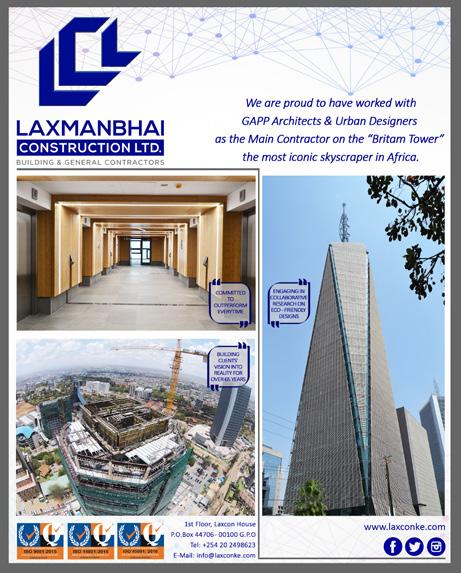
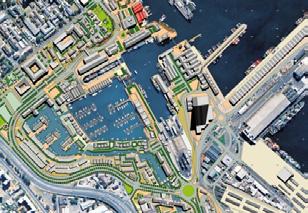
The Victoria & Alfred (V&A) Waterfront in Cape Town is situated at Table Bay Harbour, where GAPP transformed a working harbour into a tourism hub without disrupting the industrious nature of existing fishing and marine activities.
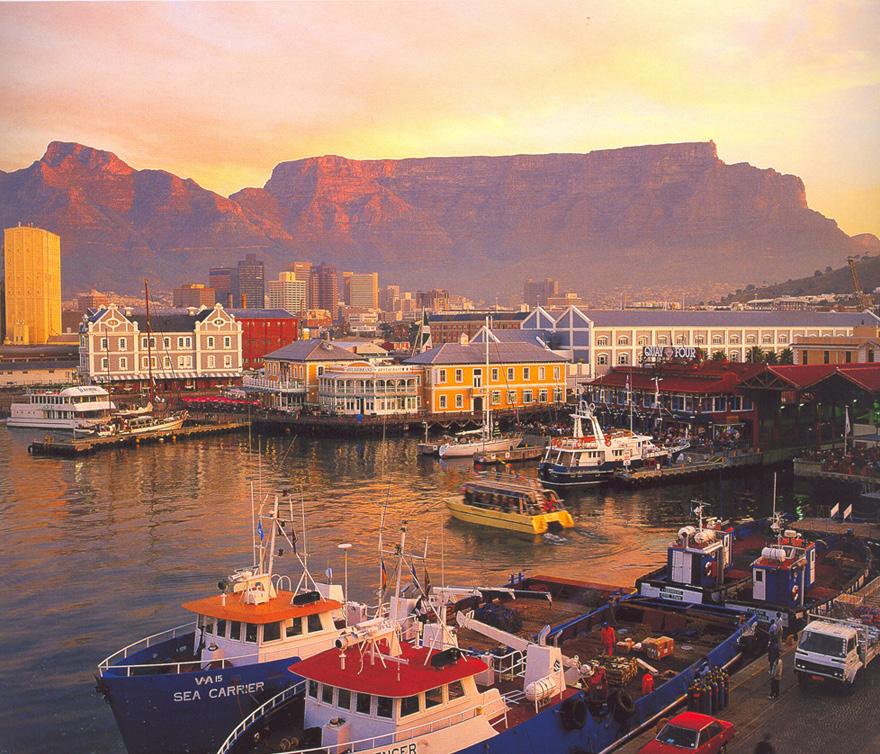
The development began in 1988 and now attracts more than 24 million visitors a year.
Wood explains how GAPP adopted the Dave Crane approach of ‘capital web’ and ‘the city of a thousand designers’: “This is about asking what are the bare minimum network of inputs one needs to inject into an urban area (the capital web) in order to elicit and direct response from the thousand designers, the myriad of developers and their individual professional teams who now cease to simply be ‘developers’ and truly become, collectively, city builders.
“We were able to really do justice to the Dave Crane approach, which has been enormously successful and is a great essay and case study in this regard. It’s seriously a world leader in waterfronts.”
“This has allowed us to think well past the levels of planning usually associated with a new town,” Wood explains. “Over the past 15 years there’s been great strides in environmental sustainability – mostly this has been in green architecture, but more recently has moved to the ‘green precinct’ which translates to architecture at scale within a sustainable urban context.
“Our ambition has always been to escalate this to the city or new town scale and the Ntshongweni development framework gave us the opportunity to go to ground-breaking levels, even by international standards.
“Beyond the technology, the most fundamental criticality of urban sustainability is the inclusion of everyone into a city commonwealth. Where the few with much live in cities that exclude the many with little, no city can be sustainable.”
It is not just in cities that GAPP is helping to transform built environments for the better.
Naidoo has already highlighted the multifaceted nature of GAPP’s expertise, and this also stretches into developments in rural communities. Once more this is centred around the art of collaboration, especially within local communities.
Here Naidoo introduces fellow GAPP Director Sally Tsiliyiannis, who has worked as a design architect and coordinator on many of the company’s high-profile works, most notably in the tourism sector through large-scale hotel projects in the Western Cape, among others.
But her attention now lies firmly in rural hospitality developments, not least in Rwanda where the Singita Kwitonda Lodge & Kataza House have recently been front and centre of her priorities.
“Rwanda is a fascinating country to work in,” Tsiliyiannis says. “This small landlocked country’ shows an amazing turnaround from the genocide that occurred not so long ago in the 1990’s.
“With a background of working on large scale, complex urban projects

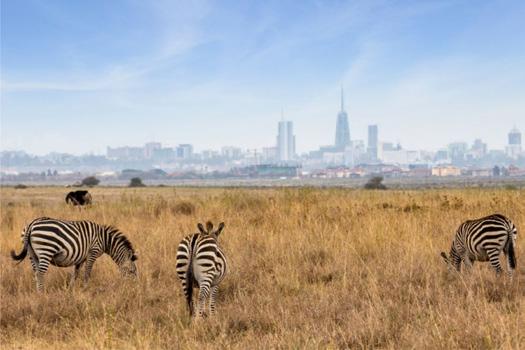
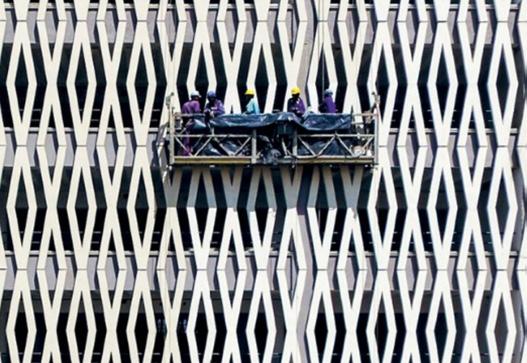
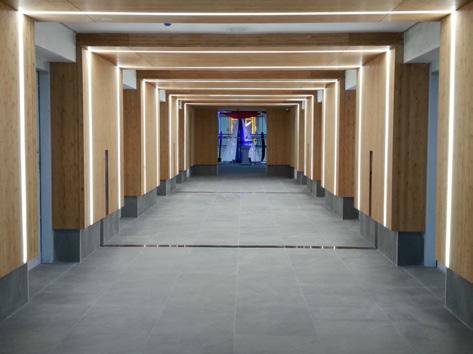
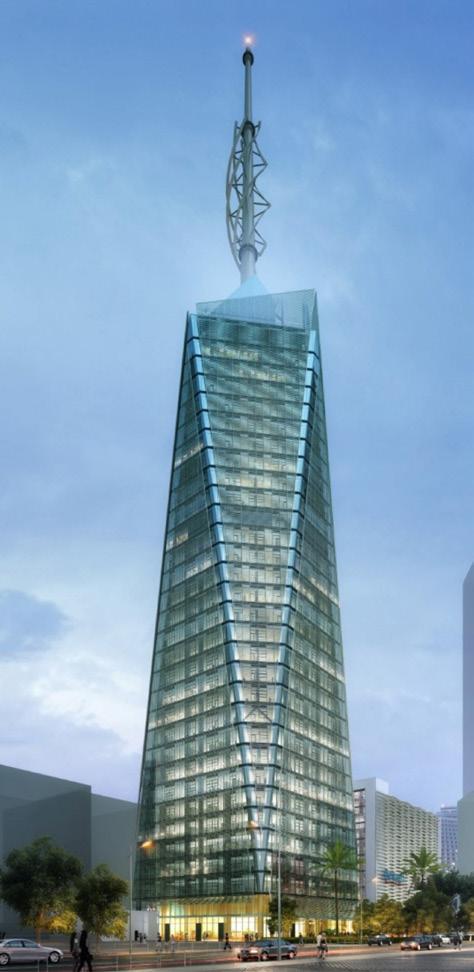
such as hotels with 400-plus rooms, the fact there are only 12 rooms marks a massive change in thinking. It is a more intuitive design that embraces the principles of low impact architecture. Nature is always allowed to be the hero and you can really focus on the things that matter.
“But the smaller scale doesn’t mean less work. Today there is no shortage of beautiful lodges in the wilderness. It has become a very competitive market, and to stay one step ahead of the game means continuously coming up with new ways of looking at the same things.”
Singita Kwitonda Lodge and Kataza House are set on a 178 acres of remote land on the edge of the Volcanoes National Park, the lodge made up of eight luxury guest suites and Kataza
The focal point of the project was and continues to be community participation and empowerment. For example, more than 500 local artisans and builders were employed during the construction period, while most of the building components were made on site using locally sourced materials, including the woven bamboo ceilings, volcanic stone walls and eucalyptus screens.

“We finished the project in 2019 after five years of work, and the community played a massive part, which was a personal highlight and the most rewarding part of the whole development,” Tsiliyiannis adds.
“It can be incredibly challenging uncovering the best local creatives
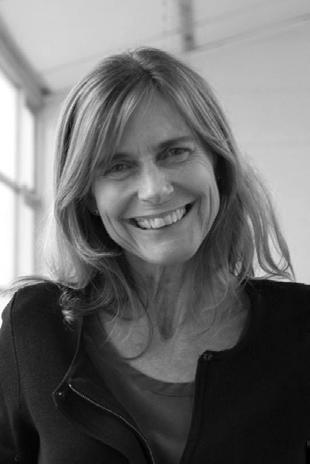 House serving as an exclusive foursuite villa.
House serving as an exclusive foursuite villa.
in an area, but it is also extremely rewarding when you do. In Rwanda, we worked hard to procure the appropriate materials and drew inspiration from watching how local villagers live and work. This allowed us to create extraordinary things with very ordinary materials, providing solutions that are both organic and surprisingly sophisticated.
“Architects have a reputation for being somewhat egotistical, but working with people of the area you truly feel part of something bigger and more important. We have been incredibly blessed by who we have met on this project.”
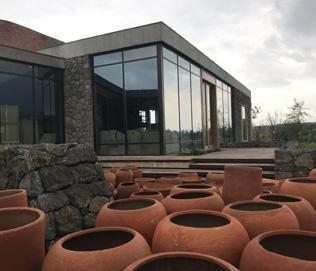
Singita is a longstanding client of GAPP, this portfolio of work perfectly showcasing the variety of projects the firm has immersed itself in during the course of its more than 40 years to date.
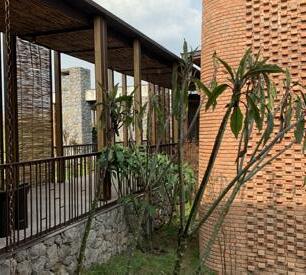
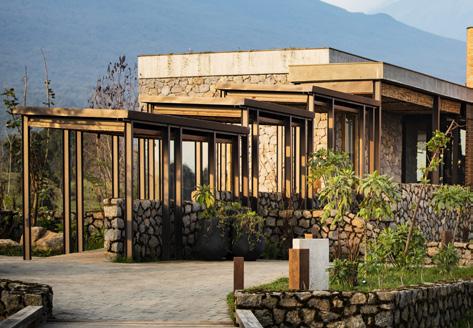
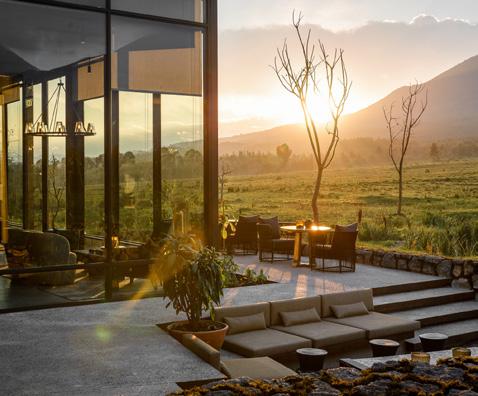
And looking ahead, Tsiliyiannis, Wood, Naidoo and the entire GAPP team are determined to continue contributing positively to the urban and rural built environment to the betterment of communities, be them in South Africa, Kenya, Rwanda or elsewhere on the continent.
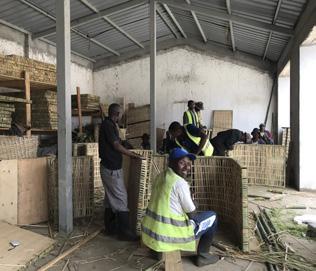
Naidoo concludes the conversation by reflecting these sentiments. “GAPP’s value proposition is defined by its pursuit for design excellence and innovation,” he says.
“This is approached uniquely for each and every project where all design opportunities are explored and interrogated through an iterative design process.
“GAPP’s aspirations and guiding principles are to employ a contextually appropriate architectural ethic to the

built environment that is reflective of culture and heritage. Our value discipline is focused on client intimacy and being able to deliver to clients exactly what they want in ways they never thought imaginable.”
Johannesburg office: +27 (0)11 482 1648
office@jhb.gapp.net
Cape Town office: +27 (0)21 424 2390
office@ctn.gapp.net
www.gapp.net
GAPP ARCHITECTS & URBAN DESIGNERSAleem Manjis Architects continues to take on ambitious developments in Kenya, remaining steadfast to its belief that every design must be backed by equally attentive service

Writer: Tom Wadlow
Project Manager: Eddie Clinton
I wish I could say that I have always been interested in architecture, and along with it share some anecdote of the precise moment when I knew it was the profession for me.
“Unfortunately, as opposed to me choosing architecture, I feel that in some way architecture chose me. As of the time when I had started my undergraduate degree, I can honestly say I still wasn’t aware of what architecture really was.
“As a matter of fact, I seem to recall that that was the question I had posed in a full auditorium to the dean of the college, as he delivered his welcome speech to the first-year students. I’m not entirely sure if such a question had been posed before at a welcome speech, nor am I certain that it has not been posed since. Regardless, it served to highlight how truly unprepared I was for the tasks that lay ahead.”
Some things, it seems, are just supposed to happen.
Aleem Manji, orator of these opening words, talks honestly about his somewhat haphazard entry into the architecture profession, recalling his initial struggles to grasp the subject matter.
Now Owner of highly successful Kenyan practice Aleem Manji Architects (AMA-Kenya), he looks back with fondness and realises, back then at least, that the ends were more important than the means to achieving them.
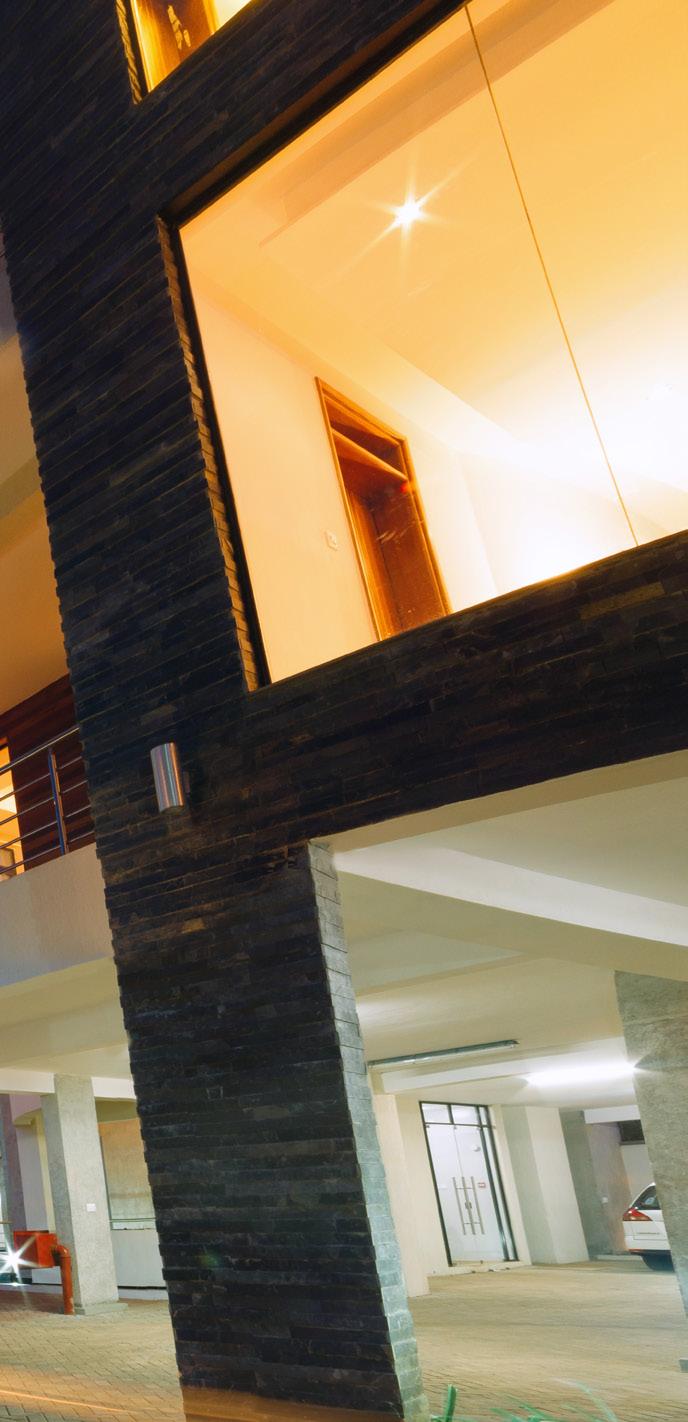
“Slowly comprehension came,” Aleem continues, “and with it a fairly profound realisation – it may not have been by design, if you’ll excuse the pun, but the end result was the right one. Architecture and I were meant to be.
“Having worked as a graduate architect for a few years, I decided in 2010 to work towards opening my own firm, or as I put it to myself then, allow myself to make my own mistakes.
“The learning curve was pretty steep, but extremely rewarding. I had the opportunity to mould the built environment to a small degree into spaces that I felt were closer to my understanding and appreciation of the concept of architecture. I have never looked back!”
Aleem’s approach to the means and ends dynamic could not be more different now he runs his own business. Indeed, AMA-Kenya is built on a simple, unwavering principle: that great design must be accompanied by great service. This is upheld on all projects,
AMA-Kenya approaches design with three fundamental tenets at its core. Aleem describes in his own words:
1. THE PRIMACY OF SPACE: “Every design is an envelope for space. We believe that the creation of quality spaces is the primary mandate of any architectural design, spaces that ultimately enhance the quality of life and efficiency of the end user.”
2. INIMITABILITY OF DESIGN: “Every project has a specific brief, a specific site and a specific set of parameters influencing the final outcome. As such we believe that every design should be unique, the final outcome of a myriad of factors that shape, mould and sculpt it into the ultimate solution for that particular development. As a result, we tailor design each and every project to achieve this ultimate design, thus guaranteeing a unique end product with no replications.”
3. CREATIVITY IN EXPRESSION: “Each design must leave a visible mark of expression on the built environment. We believe in the power of good design, and as such strive to create those that are not only in keeping with the clients’ requirements but are also distinctive. Each person, organisation or institution has a character of their own – why should a building not?”
the company able to offer design and supervision services for all architectural requirements, with a particular focus on the residential subsector.
Central to this service proposition is a work ethic instilled at every level of the organisation, Aleem explaining how crucial training and development is to ensuring a consistent experience for each and every client.
AMA-Kenya works with a number of interns, many of whom are offered employment opportunities. “Once they commence working with us, we gradually increase their responsibility levels as they progress to allow them to develop further and further into project architects,” the Owner adds.
“Throughout, there is a level of supervision given that allows them to make sound decisions, and at the same time maintain our firm’s level of service delivery.”
The abundance of young architectural talent to be found in Kenya is one of the major reasons Aleem continues to be excited about the wider industry backdrop in the country.
Although demand may have dipped slightly over the past couple of years, he highlights how today’s Kenyan architecture comprises an exciting mix of solid reputable firms who have been in the field for decades, and younger up and coming firms and architects looking to make their mark on the built environment.
“The synergy of energies and points of view make for a fantastic offering in terms of the variety and approaches to architecture as a whole, one that I feel further enriches the already rich tapestry of Kenyan, and by extension, African architecture,” Aleem says.
AMA-Kenya is certainly adding its flair to such a tapestry.
In the Riverside area of Nairobi, for example, it is working with Globe Developers on the Rumasia development of high-end duplex apartments.
The project involves nine towers which are connected at roof level by a specially designed terrace and
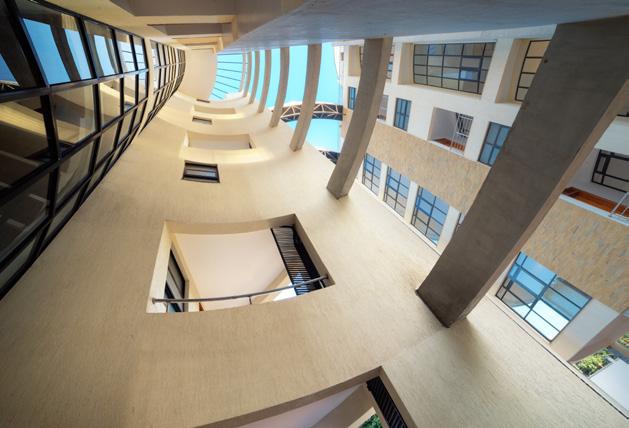
AMA-Kenya has several developments currently under construction, one of them being the Treewall apartments in Nairobi.

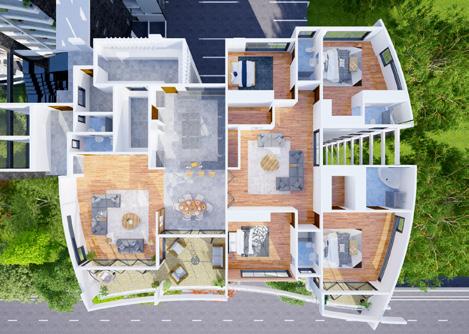
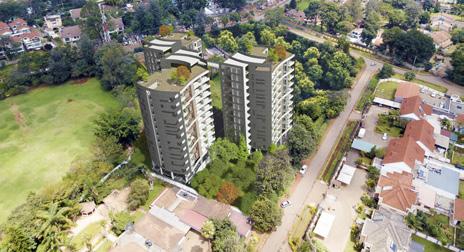
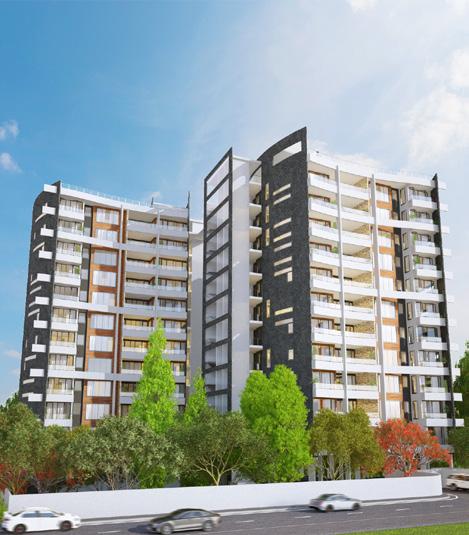
Comprising 33 apartments in three towers once more connected by a skybridge at roof level, there will be an extra layer of privacy for residents, as explained by Aleem. “This is the case due to the bold shield like curved edges that act as privacy barriers into the apartment from either side, giving each tower a certain pod-like appearance,” he says.
“Intermittent and erratic swathes of obscure glazing adorn the sides of these barriers to allow for filtered lighting from the sides into the apartments.”
Juniper Intakes Limited
P.O.BOX 21404 - 00100
Nairobi
FOREST VIEW FLATS
34 OJIJO ROAD
BLOCK 1, SUITE NO. 18
admin@juniper-intakes.com

juniperintakes@gmail.com
www.juniperintakes.com
common meeting area, the hallmark of what Aleem says has been a challenging, ambitious, and extremely rewarding undertaking.
“The challenges in building a structure like this, 19 storeys above ground with spans separating the towers of, at some point, eight to 10 metres, was challenging enough,” he explains. “But then to opt to have the roof structure house an infinity edged pool in the shape of a horseshoe almost 150 metres long took it to a whole new level of complexity.”
Rumasia is one of a number of residential developments in the
AMA-Kenya portfolio of the past decade.
Aleem points to two other standout projects in this field, the first being the Crystal Edge apartments, also in the Kenyan capital and in collaboration with Globe.



It is notable because it represents one of the first duplex-only schemes in Nairobi and also proved two AMA design concepts which were experimental at the time – the fractured façade and the use of individual towers connected by roof elements, as seen with Rumasia.
In the same part of the city
“The plot itself had a diamond shape, almost completely symmetrical,” Aleem describes. “We opted to use an almost triangular layout for the individual blocks, similar to the formation of birds in flight, to take full advantage of the stunning forest views available towards the front of the development.”
While many of the aforementioned projects have the connecting roof
(Westlands) is Solitaire, AMA-Kenya’s most recently completed duplex scheme.bridge element in common, what links all AMA-Kenya projects are the closeknit relationships with contractors such as Laxmanbhai and developers like Globe.


“As a whole, we prefer to work with consultants who we have a shared value base with,” Aleem continues. “We’ve built up relationships over time and, as a result, have the ability to work with other consultants who we share an accord with, both in terms of their work ethic as well as their deliverables.
“These relationships are important to us, as we can then move forward quickly and efficiently, safe in the
knowledge that the consultant partners we chose to work with will be able to match or exceed our requirements.”
This peace of mind is crucial for both AMA-Kenya and its clients, especially given the emphasis the company places on service operating hand in hand with quality design work.




Moving forwards, such a combination will continue to serve Aleem and his company well, the Owner concluding by outlining his objectives for the year ahead.
“We’d like to pick up a few more select projects as always, but mainly we are looking to attempt to navigate
what is looking to be a rather testing financial market,” he explains. “All the while we will be maintaining our standards, standards we have continually set ourselves in terms of great design and great service.”
For Andrew Gremley and Pharos Architects Ltd, sustainability must add practical and pragmatic value to a building, the firm pioneering a number of sustainable firsts in Kenya and South Sudan
Writer: Tom Wadlow | Project Manager: Eddie Clinton
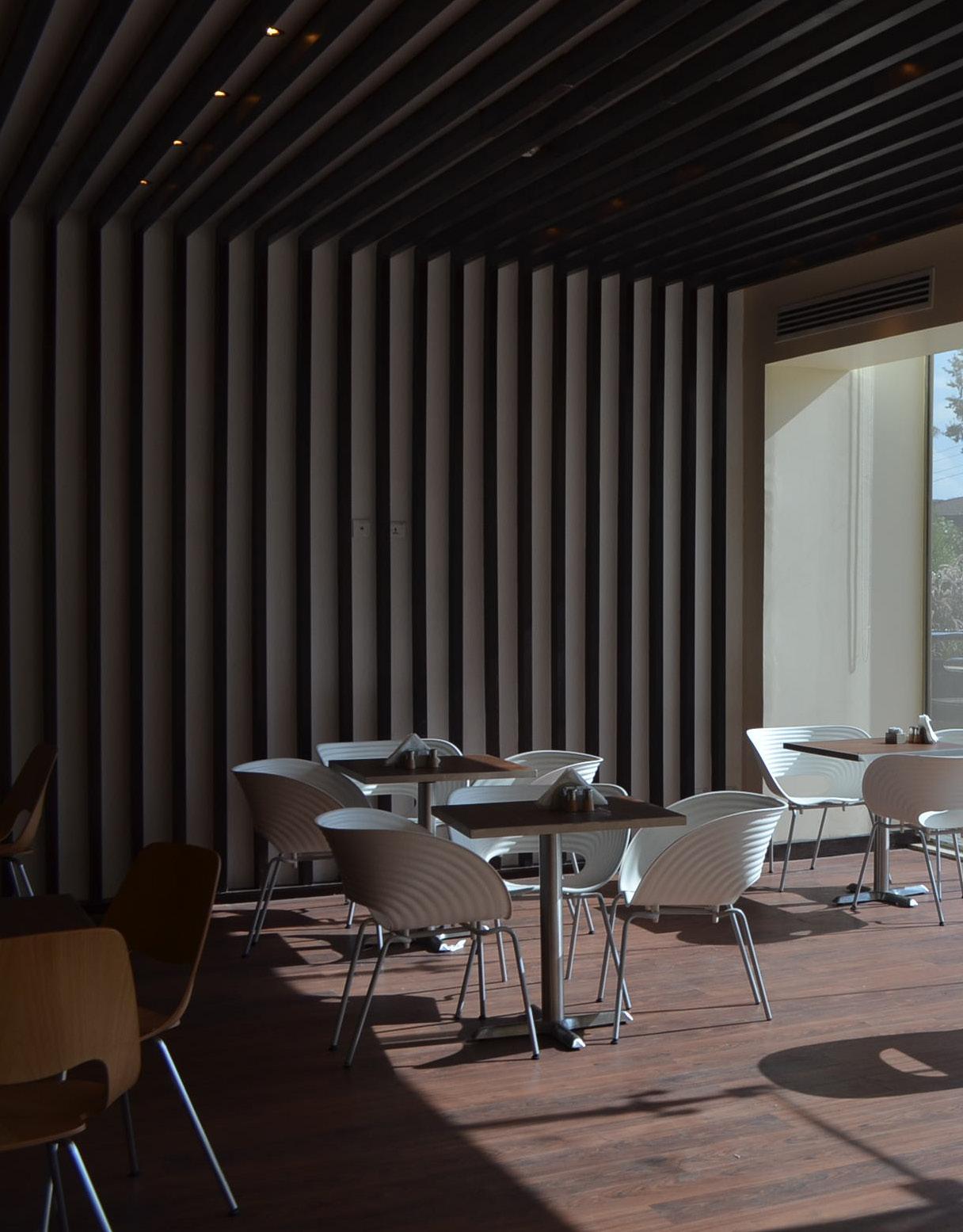
Ask two people for their definition of sustainability and you will be lucky to receive identical, even similar answers.
It is a term which, despite dictionary disputes, has managed to work its way into the daily dialogue and manoeuvrings of personal and working life, the need for individuals to live and corporations to act more ‘sustainably’ almost universally accepted.
But differences of opinion, often within the same professional disciplines, remain.
Take the architecture and building design trade. There are many internationally recognised standards such as LEED and EDGE which many aspire to, though how to get there is subject to a world of different approaches, priorities and attitudes.
“There are a lot of clichés bandied around about architects and sustainability, but our stance is what I would call a pragmatic approach to sustainability,” muses Andrew Gremley, Founder and co-Director of Nairobibased Pharos Architects.
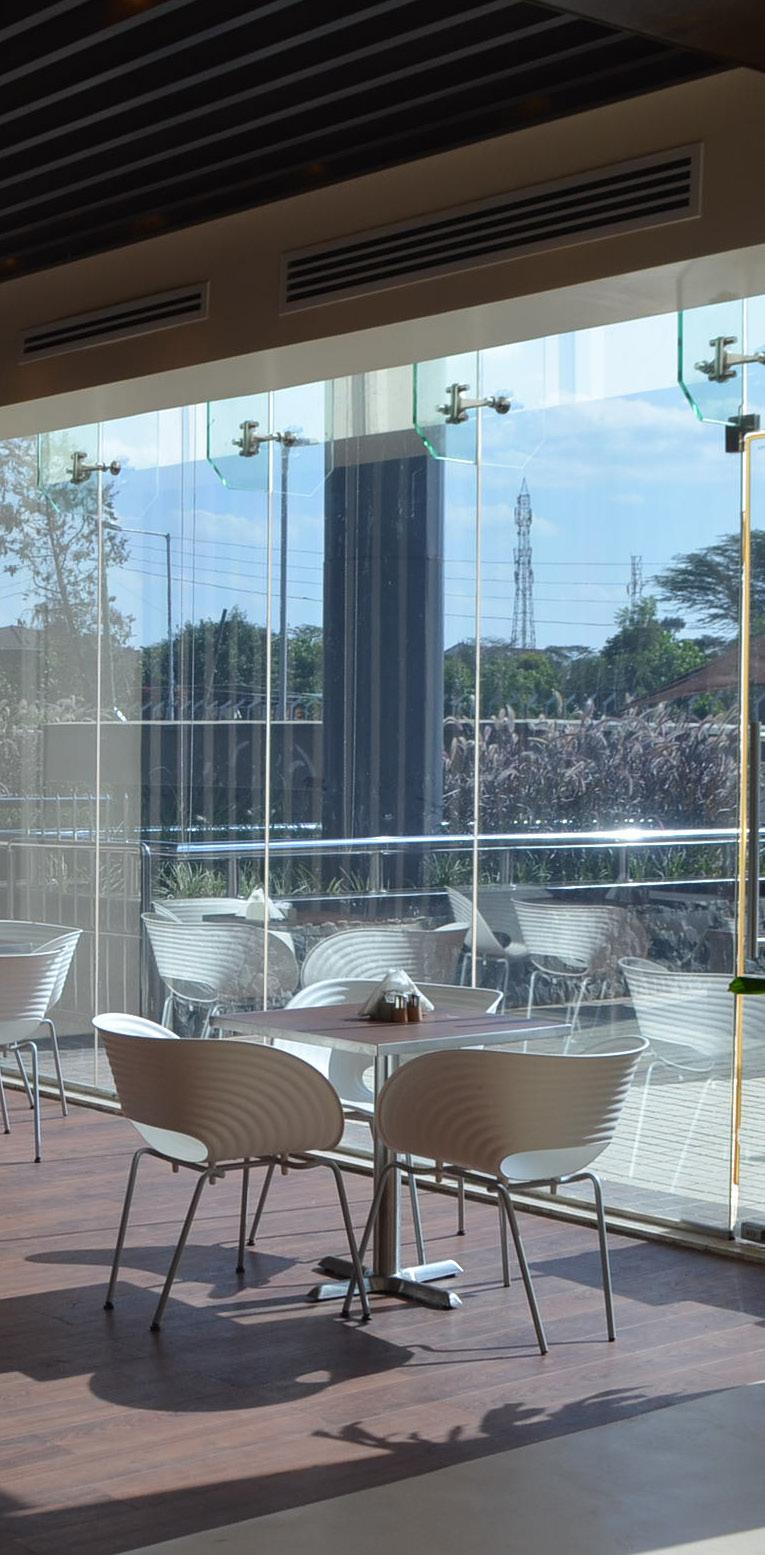
Involved in establishing the Kenyan Green Building Council, Gremley admits that sustainability is an inescapable consideration for architects on virtually all projects, the dialogue surrounding the subject ramping up immeasurably since he went into business in the 1990s.
His main motivation for moving to Africa from the US was not environmental, however – rather, it was the opportunity to impact people.
“I come from and studied in the United States and after graduation I ended up in a number of fairly dull jobs, so I decided to pursue an alternative which took me to Africa, Tanzania first and then Kenya,” Gremley recalls.
“I was working on shopping malls and airports and over time became more intrigued by work in developing countries, projects which can help people more directly as opposed to boosting the bottom lines of corporations. Straight away we did projects on
Colobos Cove is a private beach development undertaken by the partners. The images shown here are of the proposed design of six villas and an apartment building in a traditional Swahili style intended for off-plan sales.
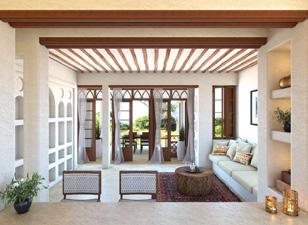
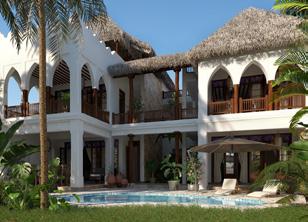
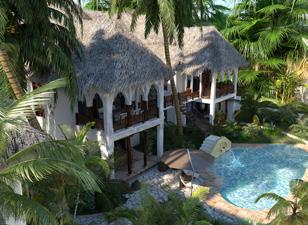

“I have visited or stayed at the most iconic resorts and villas in the area and this design is a distillation of my ideal beach-front villa,” says Gremley. “It is located on an isolated beach near Msambweni and is expected to start construction this year.”
schools and hospitals in mostly poor urban and rural areas.”
In 1998 Gremley struck out on his own under the name WEGS Consultants, later changed to Pharos Architects. Returning home to Kenya from the UK, architect Jasraj Sehmi later joined Gremley and together they formed Pharos Architects Ltd as a limited partnership.
Today, it specialises in donor-funded development projects such as schools, hospitals and medical research clinics, private houses, villas and other residential developments, with specialisations including green architecture, biocontainment and high security installations such as embassies.
“We have gone a little more commercial lately with projects covering
restaurants and coffee chains, but our main focus still tends to be schools and hospitals. For about 10 years we had a full-time presence in South Sudan until the civil war forced us to step back a little bit. Outside of our home market Kenya we do some work in Rwanda and Uganda, where we have an office.”
The conversation soon turns back to the subject of sustainability, a hallmark of many Pharos projects over the years.
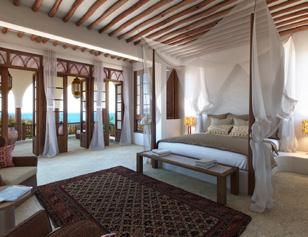
Gremley cites a number of national and regional firsts, including the first LEED-certified building in the region with its project for the World Bank in South Sudan, followed up by a first
in Kenya with the same client on an interior office fit-out in Nairobi.
Further, the company also attained LEED Gold certification for the French Embassy build in the Kenyan capital, with another building for the International Red Cross currently undergoing certification.


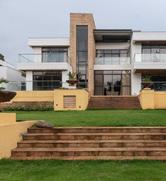
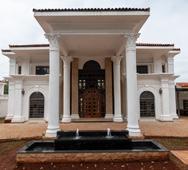







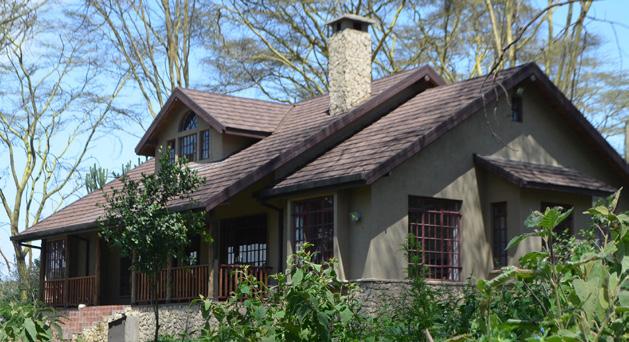

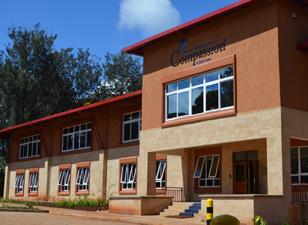
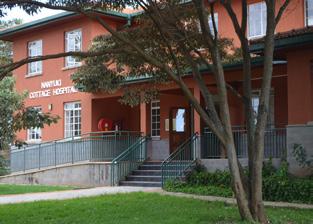
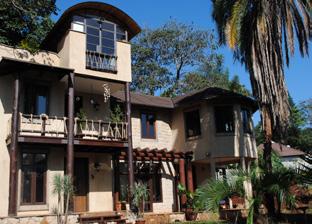
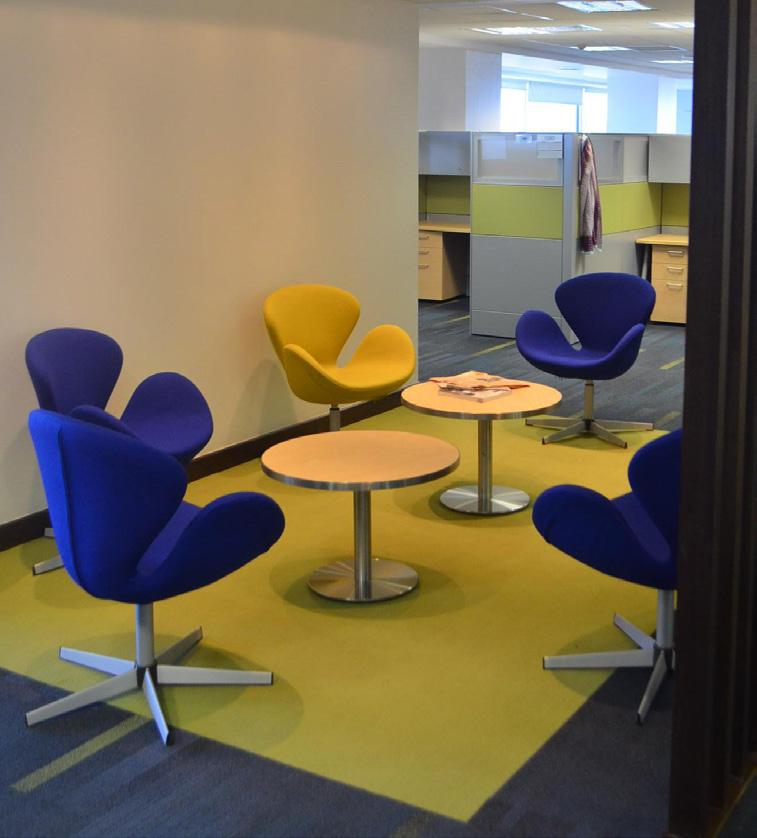
Pharos Architects has inspired several sustainable buildings either completed or under construction in Nairobi. These include:
WORLD BANK HQ: Based in the Upperhill district of the Kenyan capital, the World Bank HQ covers 13,115 square metres and was handed over in 2013. Work involved the complete internal fit-out including partitioning, systems furniture, finishes, mechanical, electrical, and security installations for 450 office workstations. Security is also a key feature, the building fitted with access control doors, lockdown areas and blast resistance. LEED Gold certified.
FRENCH EMBASSY: Finished in 2017 and situated in the Westlands area of Nairobi, the French diplomatic campus comprises offices, housing, support facilities and various landscaping features, including water management solutions which help to mitigate flood risks. LEED Gold certified.
KRIL HOSPITAL: Situated on Kiambu Road, this is currently under construction and will span 10,800 square metres once completed. It will operate as a multi-specialty hospital offering cardiac surgery, critical care, radiology, in-patient and outpatient services. Seeking EDGE certification.
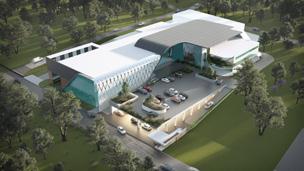
“There is also a certification process called EDGE,” adds Gremley, “and we worked on the second single family residence in the world and first in Africa to be certified. We are also working on an EDGE-certified hospital, KRIL.
“So, what I mean by the pragmatic approach is that sustainability coincides with what we see as the necessary elements for a building to have – it is practical, not gimmicky. We don’t push every aspect of certification and make token gestures. Rather, we fight hard for the ones which can make a difference.”
“A lot of this requires innovation, and here we have been working particularly hard on water systems.
“We’ve come up with solutions designed for developing countries, where municipal water may not be
available and there are lots of issues with both water shortages and flooding. This is very project-specific, bespoke work as opposed to implementing solutions straight out of a textbook.”
Gremley circles back to the French Embassy project as a case in point.
Here, a substantial focus was placed on the water system as it is located in an area that is prone to flooding, the building sat in the vicinity of several waterways. One of the rainwater runoff solutions identified by Pharos was a green roof, an aspect of the design the firm had to work hard on given the constraints it faced regarding availability of materials.
“Generally, much of our focus on water recycling is centred around recycling sewage rather than collecting
World Bank HQrainwater, which is not always the most practical solution as it depends entirely on when it rains,” Gremley explains.

“We therefore tend to encourage sewage recycling through a technologically driven process as opposed to a manual one, involving things like water retention ponds, natural wetland systems and careful implementation of plumbing and water tanks.”
This concept of pragmatic sustainability will continue to define Pharos Architects projects into next year, not least with the likes of KRIL Hospital which is slated for completion in the coming months.
Future success will also rely on cooperation and collaboration with
partners and suppliers, Gremley quick to point out their importance and how the company has been helping to promote the development of sustainable building materials through the likes of the Kenyan Green Building Council.

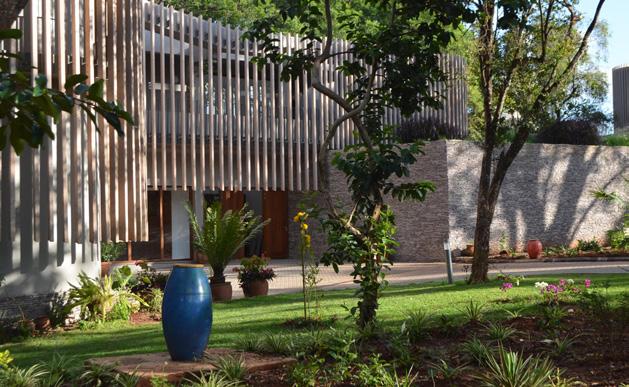
Key to Pharos’ longevity according to the Director, however, is the firm’s 19-strong team of employees.
In his concluding remarks, Gremley iterates the importance of nurturing and keeping the best industry talents inside the organisation.
“Mentoring is vital, as we do not want to cycle through staff,” he says. “We want them to stay with us for the long term and keep them interested and informed with what is going on in the industry.
“At this time the market is a little
slow and there are a lot of bright and talented architecture graduates about, so it is a case of selecting the right people and building them up with the company over time.
“This will enable us to carry on what we’re doing and continue to execute projects. We’re doing well in a slightly challenging market, but generally we are looking for steady expansion which includes new markets if we can find them.”
PHAROS ARCHITECTS

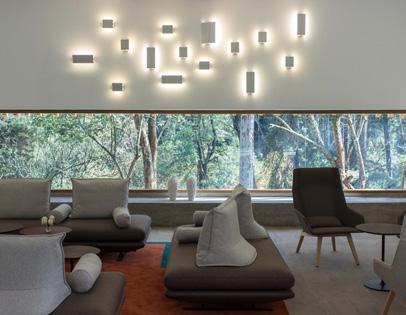
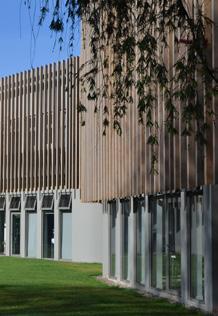
Tel: +254 720203030
info@pharosarchitects.com
www.pharosarchitects.com

The green city in the sun; the safari capital of the world; Nai (for short). Nairobi has garnered numerous nicknames over the years, but arguably none is more telling of its current reputation than its newest alias – the Silicon Savannah.
A monumental metropolis, the number of residents in the Kenyan capital has grown 40 percent in the past decade from 3.1 million to 4.4 million. And with that has come the city’s consolidated status as a crucial backbone of African business.
Take the Nairobi Central Business District (CBD), for example. Its skyline is comparable with those of many major European, American and Asian cities, and it has become the regional hub of hundreds of multinationals including Coca-Cola, General Electric, IBM, Toyota, Nestlé, Standard Chartered Bank, Heineken, Blackberry and Cisco.
Today, the capital accounts for 70 percent of Kenya’s wealth, and with an exponential growth trajectory that is continually accelerating, it
Tilisi Developments is a consortium of developers who came together in 2013, when they saw a pocket of land outside of Nairobi’s central business district. When finished, the project will serve as a major business and logistics hub
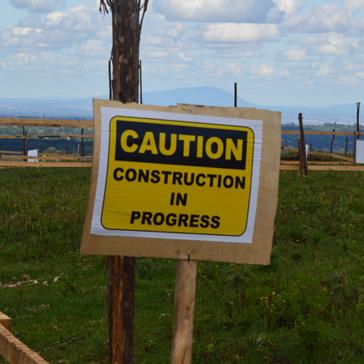
has created a buzz that has extended into the surrounding suburban areas, evidenced by some particularly exciting real estate projects.
Enter Tilisi Developments – an organisation heading up the multi-year development of a 400-acre site, named Tilisi, that can be found in a prime location against the backdrop of Limuru’s sprawling greenery, just 30 kilometres north of Nairobi’s CBD.

“Tilisi is a project that immediately caught our eye,” states Kavit Shah, Tilisi Developments’ Co-CEO.
“It’s within close proximity to local highways that provide access to both Nairobi and Westlands – two regional business hubs – and their associated facilities, such as schools, medical care centres, shopping malls and commercial offices.
“When our consortium of developers came across it in 2013, we immediately saw the project’s potential, and quickly set about purchasing the plot and gaining an understanding of how it could best be put to use.”
Tilisi’s unique business model of building world class infrastructure and providing fully serviced land parcels for investors to purchase and develop is enabling the transformation of a promising suburban Kenyan plot
Writer: Jonathan Dyble | Project Manager: Eddie Clinton
Mapped out from ensuing market research activities, the blueprint for Tilisi today looks like something of a miniature city, outlining what will eventually become a major logistics park, residential neighbourhood and commercial hub that is expected to transform the region.
There’s no question that building a miniature city from scratch is a highly complex undertaking. Yet this is where
Previously based in the UK, working for PwC as a qualified chartered accountant between September 2006 and March 2010, Shah had a change of heart and decided to alter his career path during a conversation with his father.
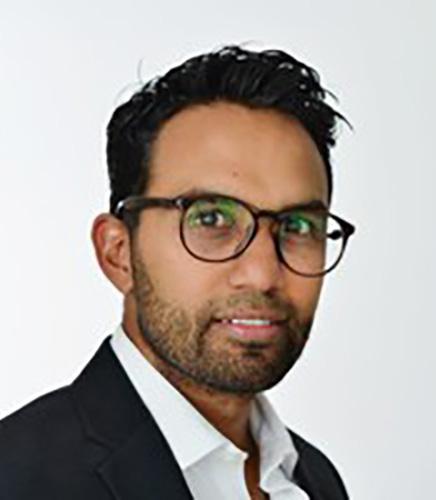
“I was getting a bit bored of my job, and told my father this, who then asked me if I’d like to join him in Kenya and work on a major real estate project,” he explains.
“I had a think and decided it was worth a try, so took a three-month sabbatical from PwC, came to Kenya, and never looked back. That was 10 years ago.”
Tilisi Developments’ unique business model bears fruit.
The organisation has budgeted $40 million to build world class infrastructure, creating fully serviced land parcels that will provide the platform from which the entire 400-acre environment can be built and eventually flourish.
“Tarmac roads, streetlighting, drainage, boreholes, power and utilities connections, footpaths and cycle lanes – we’re constructing the skeleton for everything you would expect to find in a modern urban community,” Kavit explains.
“The idea is that these parcels of land are then sold to residential and industrial developers, who can then complete their own construction works with ease by plugging buildings directly into the landscape and its readymade infrastructure.”
To date, numerous companies have sought to capitalise on this offering. Africa Logistics Properties,
for example, purchased 49 acres of land within the Tilisi Logistics Park to develop and lease out grade A warehousing, which broke ground in June 2019.
Likewise, real estate developers Maisha Homes and Chigwell acquired 10 and 47 acres to build high density apartments and medium density houses respectively, projects that will accompany Tilisi’s own residential undertaking which will also span over an additional 41 acres.
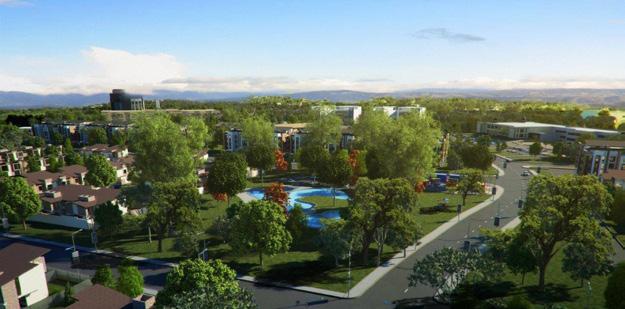
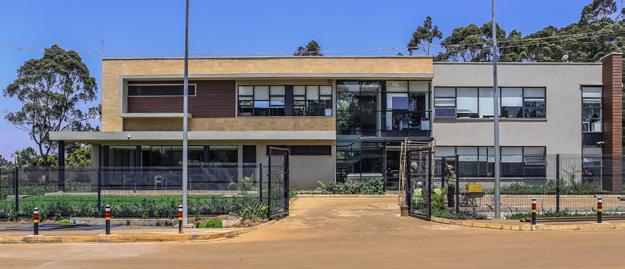
Owed to this unique model, Tilisi has to maintain close working relationships with each of its customers. According to the Co-CEO, however, its partnerships with suppliers, contractors and consultants are equally important.
“These relationships are massive to the long-term sustainability of the project,” he explains.
“When we bring a new entity on board, we’re looking for them to contribute to Tilisi’s entire lifespan.
If something goes wrong, or there’s a problem down the line, then we need to be able to rely on these organisations to provide a quick, high-quality, efficient fix in order to prevent any setbacks.”
Indeed, as a result of recent developments, these partners are undoubtedly more critical to Tilisi today than ever before.
The company announced in January that the second phase of its ongoing development programme had commenced, set to unlock the potential of
a further 120 acres of land that will be used for residential, educational, commercial and healthcare facilities. Meanwhile, in October it also welcomed its first housing project that is anticipated to begin accommodating residents before the end of 2021.

With these two key milestones set to constitute the site’s primary focus for 2020, Shah is able to end our conversation on an optimistic note, reiterating the long-term impact of Tilisi and its potential ability to transform the lives of local people.
“Every year Tilisi becomes more and more exciting as a we make more progress, break new ground and take ever greater strides,” he affirms.
“Even now, the ongoing works surrounding Tilisi are having a major
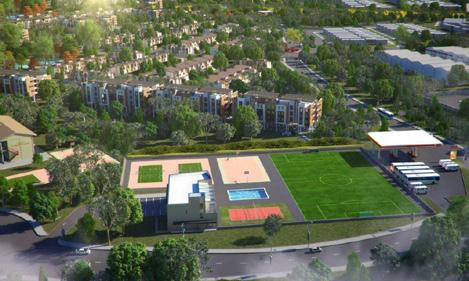
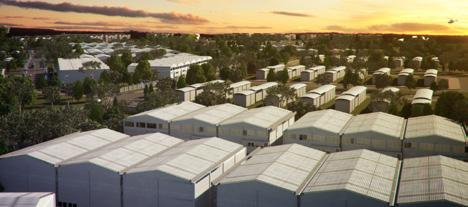
impact on the region, offering employment to numerous people, and we expect that the area will provide up to 10,000 new jobs and 5,000 homes which will accommodate 20,000 people once it is fully complete.
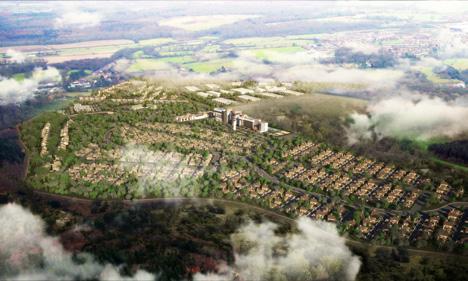
“On top of that, the amenities here will become a big draw. We’ll be building a flagship retail centre and recreational facilities including a stateof-the-art gym, that will also deliver an entertainment factor to the surrounding region.
“What we ultimately see Tilisi doing above all else, however, is setting a new standard in terms of how construction can and should be done.”

The dream of being your own boss is a common one.
According to the OECD, well over half of 18 to 64 year olds said they would rather take a risk and build their own business than work for someone else. Yet despite the aspirations of many, the same research report shows that roughly just four percent of people are able to identify themselves as entrepreneurs with paid personnel.
Writer: Jonathan Dyble
Project Manager: Eddie Clinton
It’s a stark gap, many unable or unwilling to take the plunge of launching a startup. For Alan Reed, however, the opportunity that presented itself was too good to miss.
“The chance to start my own business came in 1985, when WISEPCO, one of the largest building materials suppliers in Africa, decided to solely focus on manufacturing and leave the selling and installation to an agent network.
“I grasped this opportunity with two hands, setting up an agency in Johannesburg with two partners. One of them did the selling, the other oversaw the site work and being a chartered accountant, I took care of all financial and administrative matters.
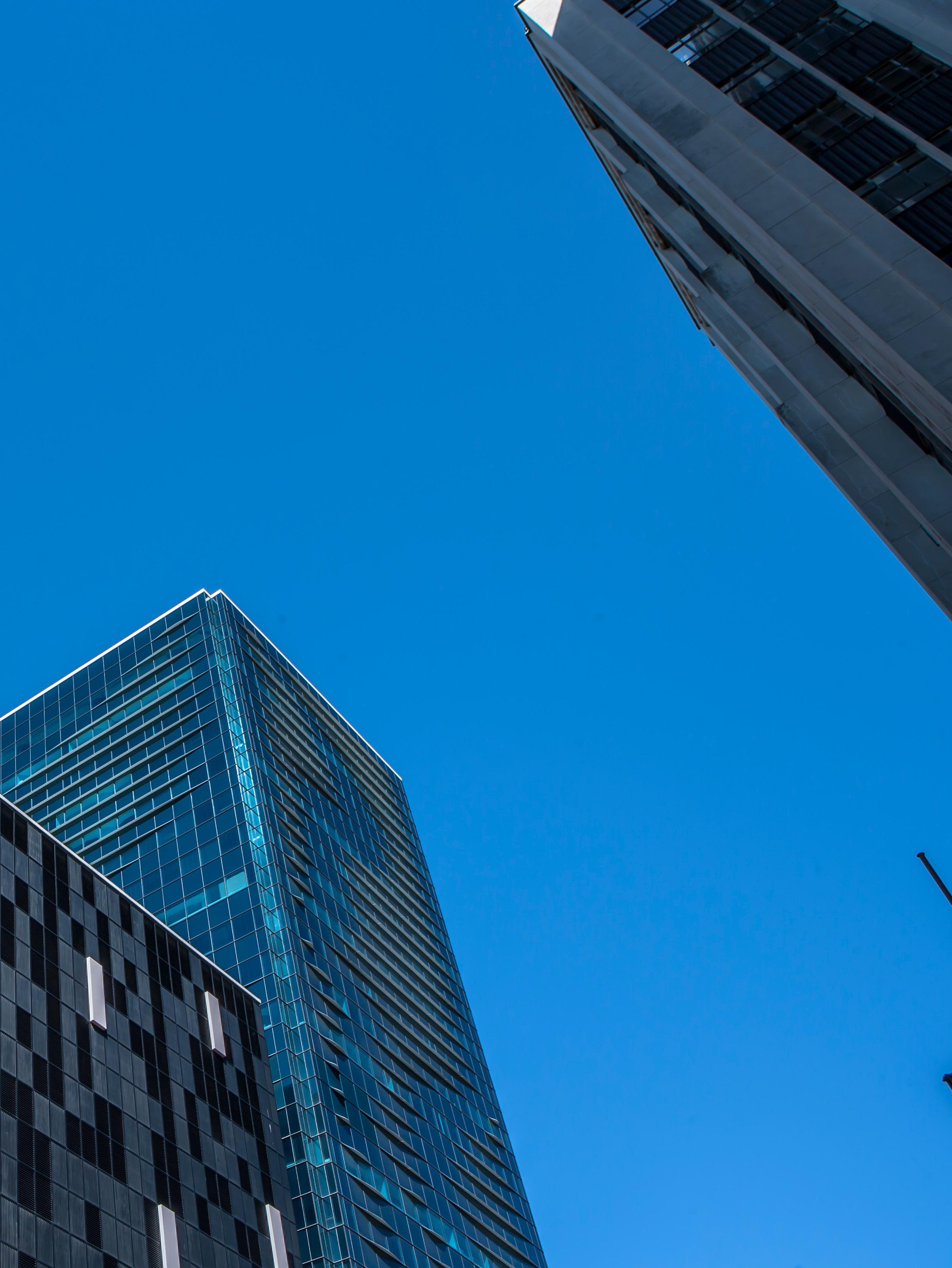
Maintaining a mantra that bespoke is best, World of Windows has risen from humble entrepreneurial beginnings to become a major player in Africa’s construction industry, delivering best-in-class façades
Establishing itself in Cape Town in 1997, WoW grew substantially thereafter and in 2005 established its own powdercoating plant.
“From here on out we began importing extensively from all over the world, reducing costs, improving quality and delivering greater value to our customers,” Reed reveals.
“By 2015, we started our own double-glazing line, and then in 2016 commissioned our glass processing plant, all of which has allowed us to better service our contracts. And since this time, we’ve also been operating a well-equipped sheet metal working facility, providing almost everything we need in house to operate independently in serving our customers.”
“Our business grew quite quickly, and we took on our own manufacturing soon afterwards to accommodate for purpose-made products required by our customers. By 1997, we had established ourselves in Cape Town, which has since become our head office, and haven’t looked back since.”
The company in question is World of Windows (WoW).
Today, offering a full design, supply and installation service for windows, doors, shopfronts, curtain walls, rooflights and any product consisting of glass and/or aluminium, its primary function is to turn the visions of architects into realities by delivering creative building façades.
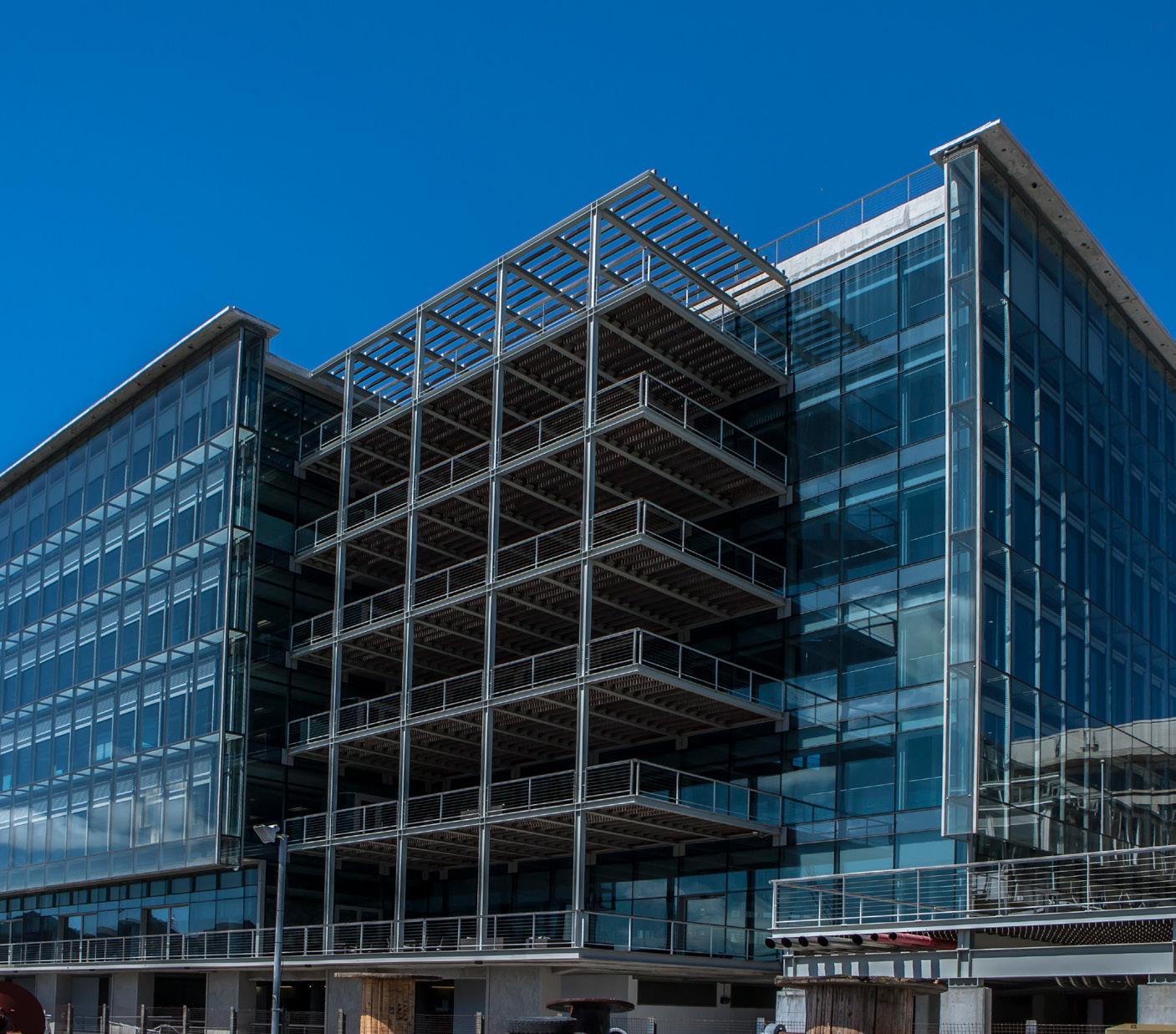
“We don’t believe in the idea that one-size fits all,” Reed, CEO of WoW, reveals. “Instead, we offer bespoke systems to achieve any design intent within a defined budget.
“We work closely with our clientele to design, develop and extrude a suite of dies to meet the needs of any major project.
“It is our mission to give customers peace of mind, and our best-in-class quality engineers achieve this by acting as a unified force of experience, intellect and passion in our operation.”
FG Trading (Pty) Ltd works with glass processors, insulated glass manufacturers, aluminium and UPVC fabricators, façade contractors and glaziers throughout SubSaharan Africa, delivering bespoke manufacturing packages to optimise production processes and produce high-quality end products for a wide range of applications.

Our diverse product portfolio comprises machinery, equipment, tools and consumables, augmented by technical and consultation services. We have exclusive distributorship for a number of internationally renowned products from Tremco illbruck, Kömmerling, Profilglass®, Quanex, Folienwerk Wolfen®, Neptun, Denver, Macotec, Cooltemper, Emmegi and Technology Italiana, many of which were previously unavailable in the region.
What sets us apart is our dedication to ensuring customer satisfaction, along with our considerable knowledge of the industry. From the planning phase through to the setting up of manufacturing facilities, our customers can rely on us for specialist advice and technical support at every stage of the project.
Whether you are setting up a new factory or planning on integrating new machinery into an existing factory, our team can assist with:
• Analysis of requirements and recommendations for suitable machinery
• Production lines and manufacturing packages tailored to specific needs
• Assistance with technical drawings and recommendations for factory layout
• Installation, commissioning and onsite training of machine operators
• Technical support, provision of spares and repairs
We invite you to review our website or contact our team for further information on how we can assist your business.
www.fgtrading.co.za




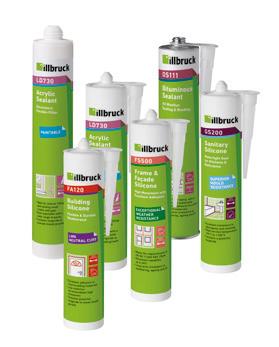
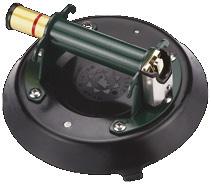
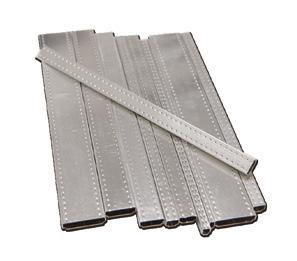
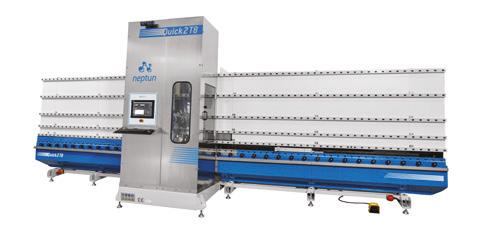

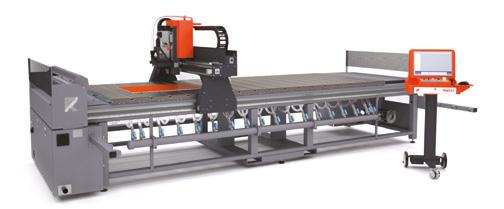
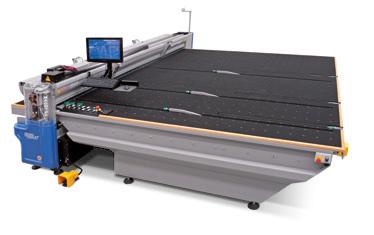
It is this that places WoW at the head of the pack.
Business is not considered to be transactional. Rather, the company embraces the visions of its customers from the outset, going above and beyond to source products the world over that exceed their demands, delivering high quality at reduced prices and never shying away in the face of adversity.
“We strive to deliver service excellence on every project and become the contractor of choice in the eyes of our customers,” Reed affirms.
“The construction industry is exciting. Every building is unique and in the façade space, life is never boring. New buildings add to our learnings and experiences and continue to equip us for the next challenge.”
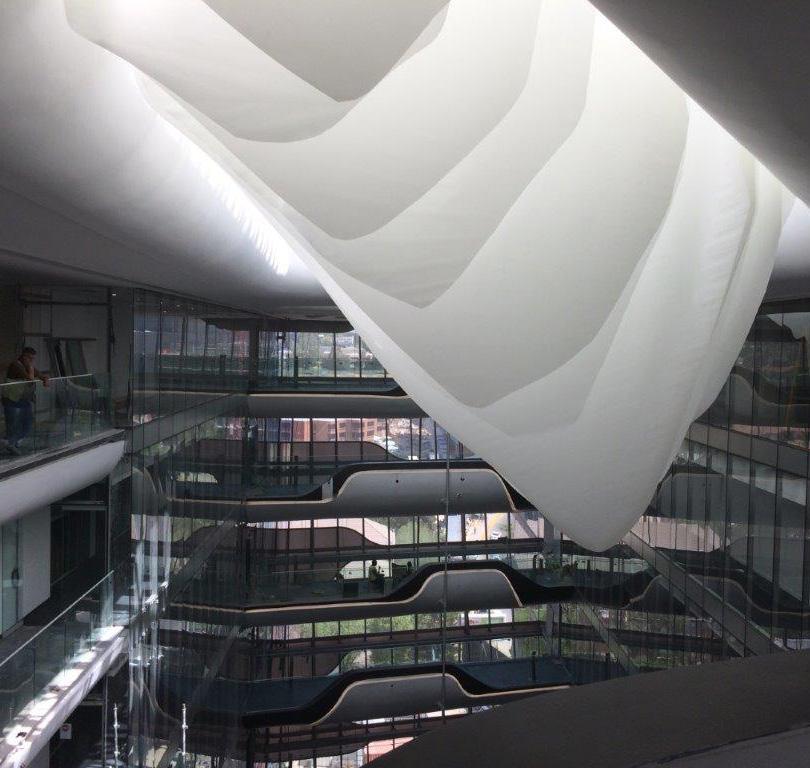
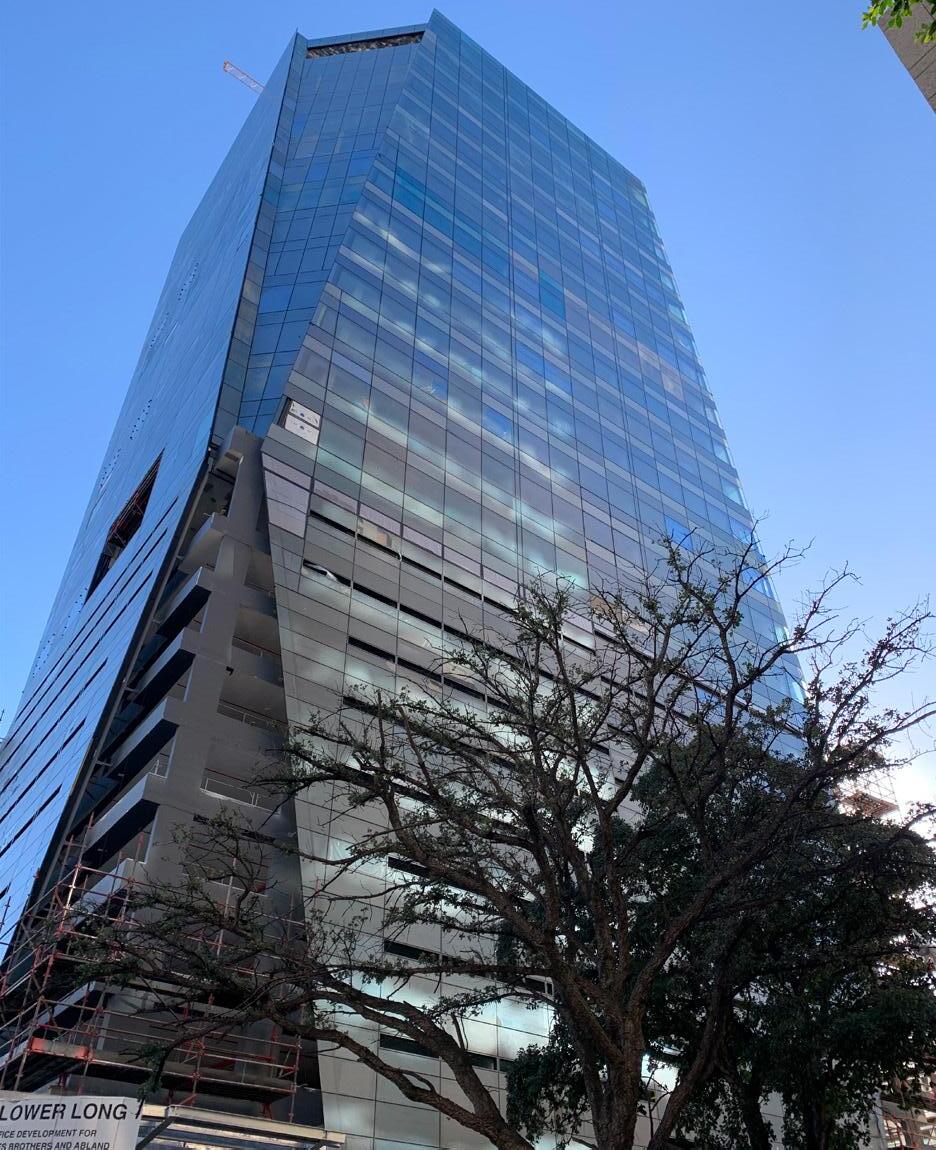

Through its can-do ethos, the company has delivered more than 4,000 projects to date – a portfolio that continues to comprise bigger and better

to suit each person’s specific
We pride ourselves on our company ethos of excellent personal service and we have delivered and met our clients’ expectations for almost 50 years. Our professionally qualified, efficient and friendly staff administer every portfolio in an interactive and proactive manner.

buildings as the firm’s timeline extends.
Bold investments and diversifications have played a crucial role in propelling this rising curve, the continual development of its glass processing plant and its 3D to fabrication technology standing as current focus areas.
The latter in particular is a flagship innovation, WoW being the first African façade contractor to develop technologies capable of scanning large as-built structures, in turn identifying issues and offering solutions prior to the manufacturing and/or installation phase.
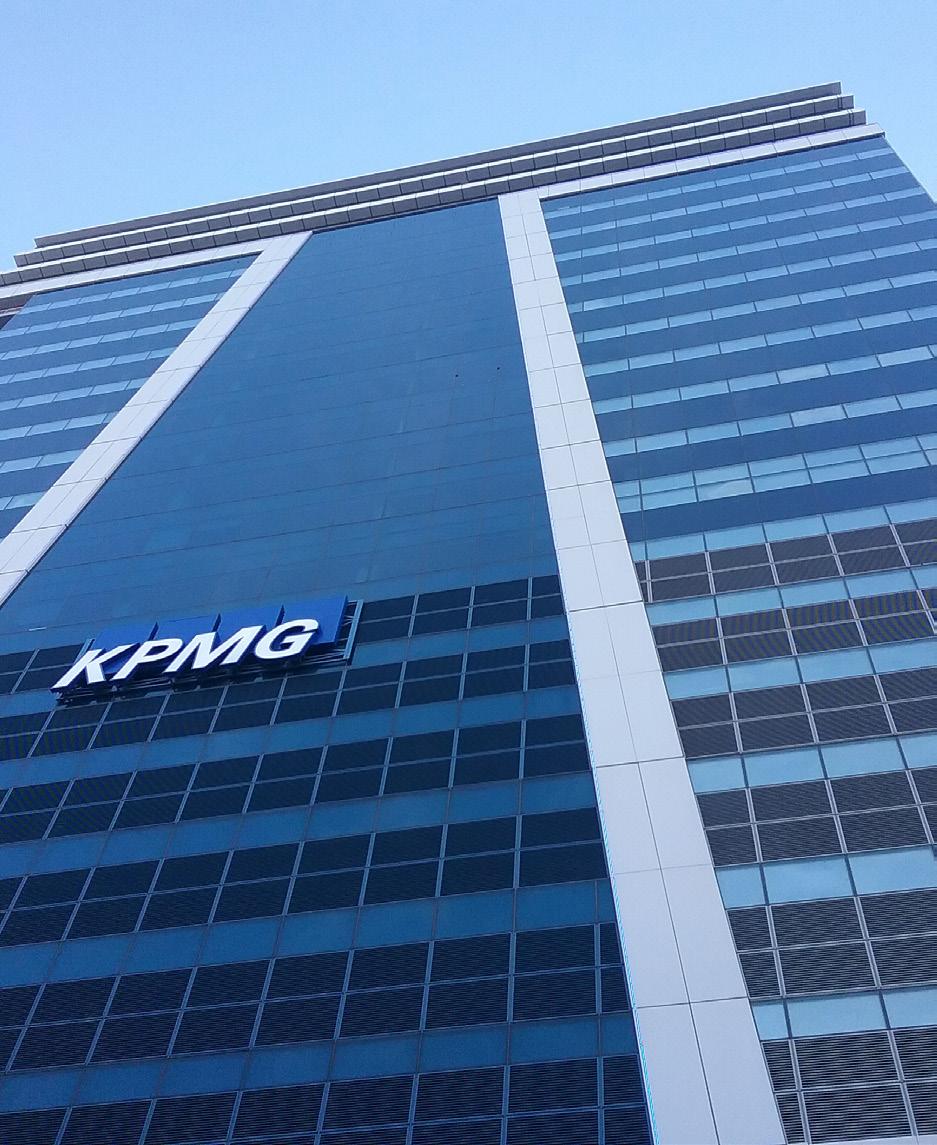
The enterprise can’t take all the credit for its own success, however, it also recognising the crucial role that its partners and employees alike play in facilitating this success.
“While we have geared our operation to be self-supporting, with many requirements met in house, our ability to import high-quality products is testament to our competent and competitive suppliers,” Reed states. “Equally, our staff are fantastic. Without them,
the business cannot function, and for that reason we strive to retain our best people wherever we can.”
Staff, partners, customer-centric operations and brave diversifications combined, the future looks relatively optimistic for WoW.
By Reed’s own admission, the South African market is a tough one to operate in at the moment. Economic headwinds including high inflation, increasing government debt and slow growth are providing headaches across numerous sectors, construction being one of those hit worst.
Yet the CEO remains confident in WoW’s ability to continue to secure new contracts, both within and outside of South Africa.
He concludes: “We aim to secure supply or project work outside of SA in the coming year, which is exciting. We already work in many countries
throughout Africa and remain excited about every opportunity we are given by our customers, large or small, but raising our profile further afield will add a new dimension to our business.
“Looking closer to home, much like the rest of the industry we trust that an environment will be created in which growth in the construction sector will be stimulated from 2020.
“The potential is there, but confidence needs a boost. Once this happens, there are some great projects planned in South Africa, and also in other African countries, which we are striving to be part of.”

WORLD OF WINDOWS
Tel: +27 (0) 215513525 (Cape Town) +27 (0) 113140101 (Johannesburg)
info@worldofwindows.co.za
www.worldofwindows.co.za
 Southsure Brokers is a privately owned independent short-term insurance brokerage founded in 1971. We provide professional advice to our clients across South Africa and structure insurance cover
needs.
Southsure Brokers is a privately owned independent short-term insurance brokerage founded in 1971. We provide professional advice to our clients across South Africa and structure insurance cover
needs.
FWJK is disrupting the property development market with a revitalised approach to real estate that’s been dubbed co-development at cost. David Williams-Jones, the man behind the method, tells all Writer: Jonathan Dyble | Project Manager: Eddie Clinton
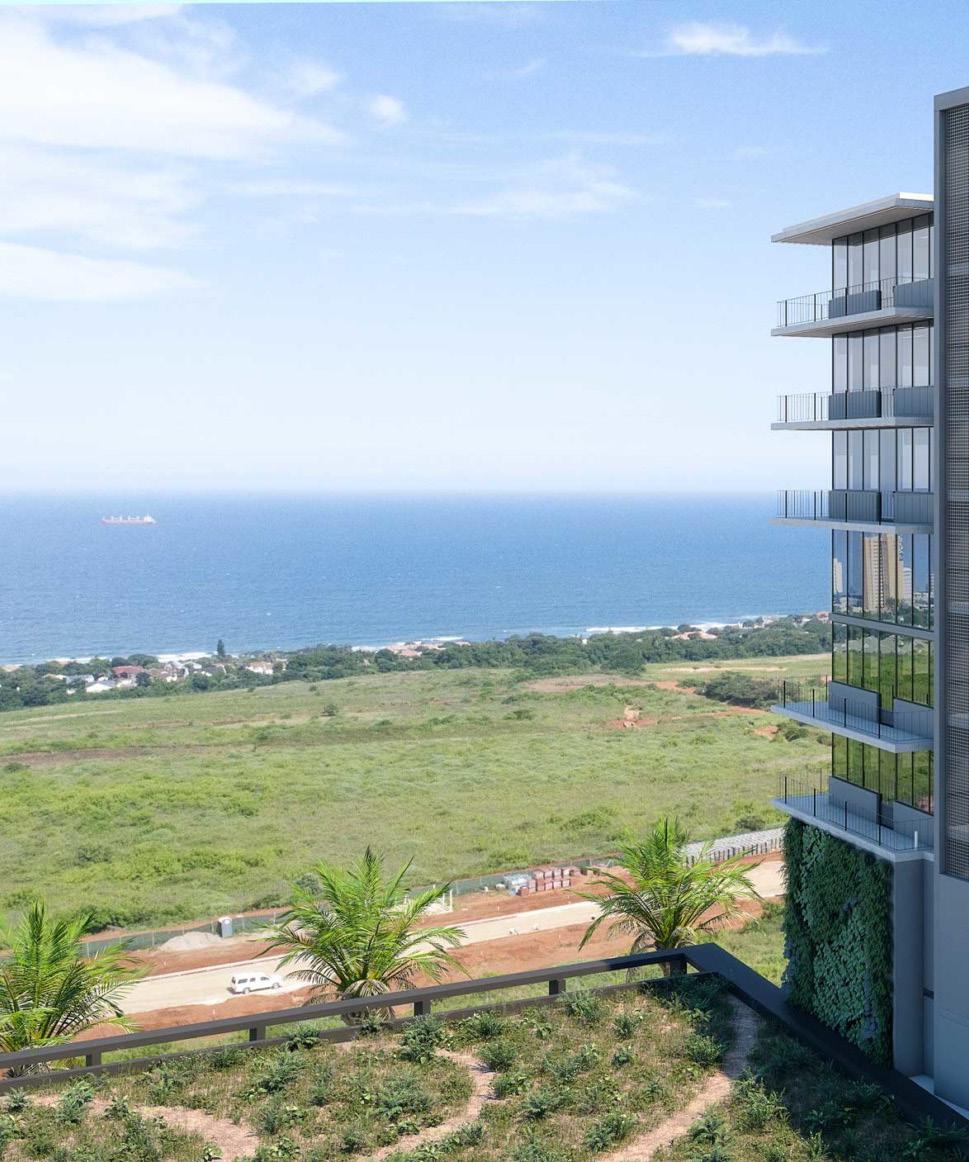
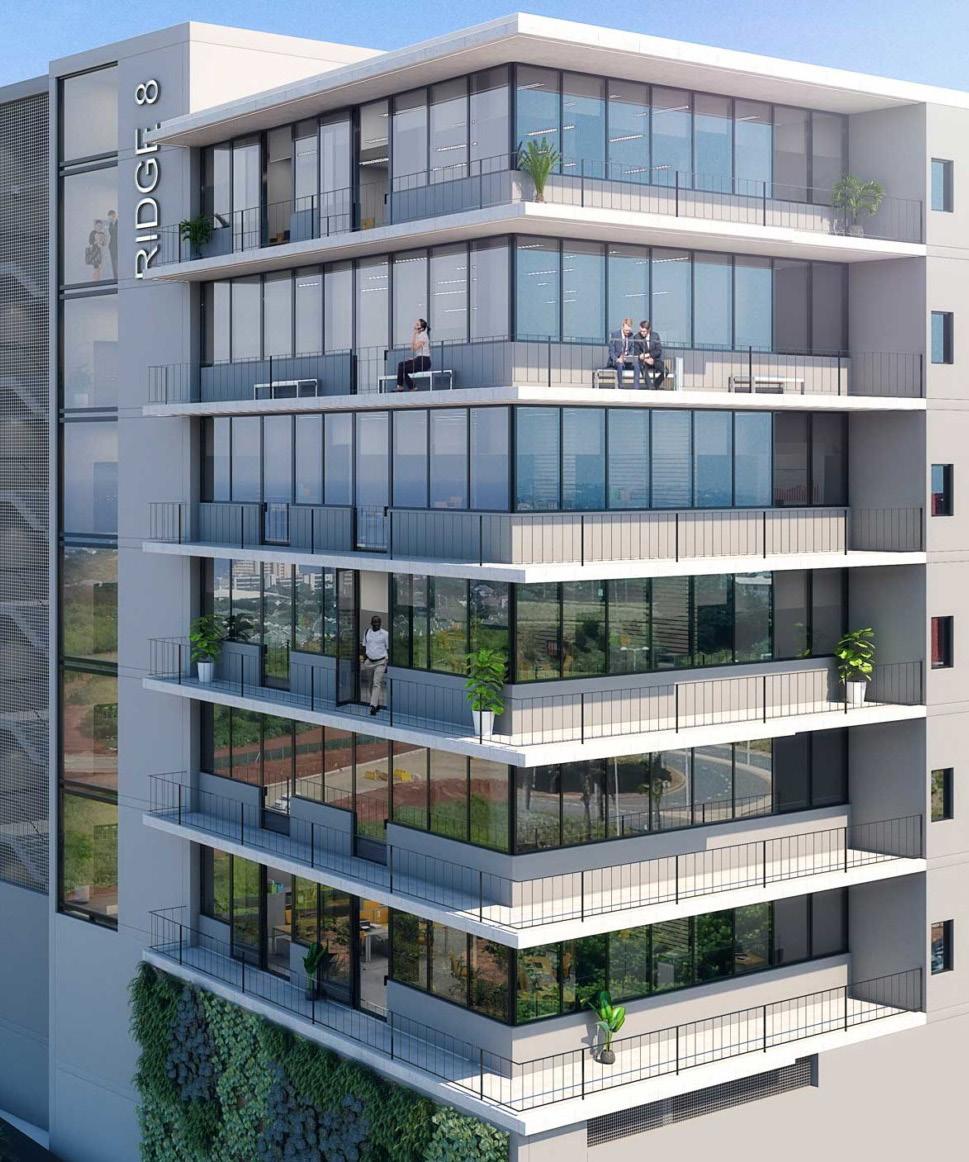
The explosion of discount days continues to take the world by storm.
According to analytics from Adobe, consumers spent a record $7.4 billion in the 24-hour window comprising 2019’s edition of Black Friday. Hop across to China, and Single’s Day – the local equivalent led by ecommerce giant Alibaba – raked in an astronomical $38.4 billion on November 11, its first $1 billion in sales having been netted in just 68 seconds.
Indeed, the success of these commercialised holidays is entirely reliant upon one simple fact of human nature – people are always on the look out for the next best deal.
“There’s a human psyche that one just cannot resist a bargain,” states David Williams-Jones, the CEO of successful South African property development enterprise FWJK Developments that has created its own concept based on this premise and applied it to the real estate market.
How does this work? The answer lies in its disruptive methodology, coined co-development at cost, which provides investors with the opportunity to invest in property at its actual cost price, allowing them to enjoy the same profit margins enjoyed by property developers.
“Think about buying a brand-new car,” the Chief Exec explains. “Often, you’d have to purchase it from a plush showroom, where 25 percent premiums are added to pay for the salesmen’s wages, commission, and the other costs associated with running such an outlet.
“Now imagine that you could buy directly from the factory and save on paying these premiums by stripping away these additional costs. This is essentially what we’re offering in the property segment.”
The idea, unbeknown to WilliamsJones at the time, stemmed back to 2003 when he was approached by an engineering company to share the ownership of an office block development.
“The site which this company was working with was double the size that they needed, so I agreed to take up the other half, sold it off for a profit, and didn’t think anything more of it until they approached me again in 2008,” he explains.
“In this second instance, the engineering company needed to double its footprint, so I called a property broker to find out whether there was any office space selling off plan in the specific precinct which they were looking at, to which the broker answered in the affirmative. I asked how much it was, and they said it was virtually sold out at a price of R20,500 ($1,400) per square metre.
“As a quantity surveyor, I knew that the actual cost was about R14,000 ($958), including the land. And that’s when the lightbulb moment occurred – I knew I was onto something.”
Since then, FWJK has built its business on collaboration, working with investors and end users alike to acquire property at cost, removing the 30 or 40 percent premiums that benefit profit-driven developers in the process.
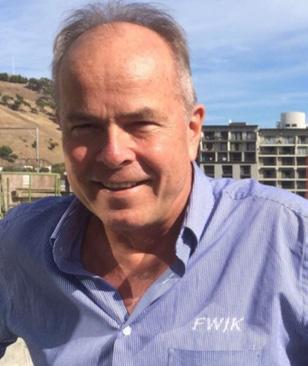
And, mapping out the company’s history, it seems this stroke of genius struck at just the right time.
JD SebenzaSecurity for big businesses and residential estates has mostly consisted of guards physically patrolling their perimeters; with additional monitoring of the premises via CCTV viewed at their on-site control rooms.
There are however many issues associated with this model, which include collusion between guards and criminals, along with basic human error – falling asleep whilst on watch.
This has helped pave the way for off-site monitoring to rapidly become the fastest growing sector of the security industry, and that is where JD Sebenza’s services come in.
The company’s expertise and solutions covers:
• Event driven off-site monitoring (analytics, video feed, alarm intrusion);
• Remote off-site monitoring (virtual patrols, alarms, verification via CCTV);
• Real time security personnel monitoring and tracking;
• Online intelligence.
• With the current economic conditions, businesses are looking to save costs whilst not compromising on security and safety.
This makes the cost effectiveness of independent, off-site monitoring a major catalyst in ensuring its rapid success in the security industry. While traditional guarding can come with increasing costs per guard, off-site monitoring is significantly cheaper.
“Our off-site monitoring services range from continuous remote surveillance to event triggered monitoring, as well as proactive dial in CCTV touring/patrols,” JD Sebenza states. “Our highly trained surveillance operators observe, interpret, predict, anticipate and evaluate the potential risk from our state-of-the-art control centre.”
Another important aspect of JD Sebenza’s business is its commitment to black economic empowerment, the company proudly standing as a B-BBEE Level 2 firm.
www.jdsebenza.co.za
•
• Reducing Your RISKS.


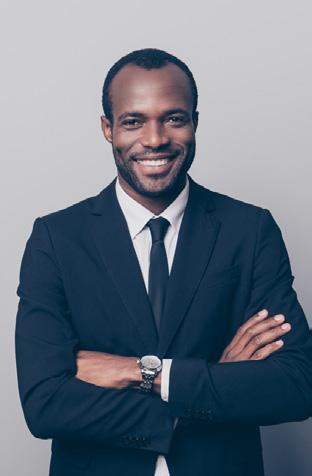

• Reducing Your GUARDS.

Co-development at cost is an elementary way of enabling smaller property investors to co-invest in a pipeline of new prime property developments in any category that they would not ordinarily be able to execute on their own.

The group of co-developers each take on investments of varying sizes in the development depending on their appetite and available funds. In turn, they enjoy the significant profit derived from their portion of the difference between actual cost and single sale retail market prices. Each co-developer remains responsible for their proportionate share of the development managed by FWJK.
“We introduced co-development at cost in the wake of the 2008 economic recession that had a profound impact on the property market,” explains the CEO. “We were faced with adversity – I was reluctantly forced to consider retrenching seven or eight staff.
“But thanks to this new methodology, we were able to turn adversity into advantage.”
The firm has since grown from a staffing base of 12 or 13 quantity surveyors to become a one-stop development shop comprising 175 professionals, its cost methodology having taken to the market like a wildfire.
“We’ve completed roughly R9 billion ($620 million) in developments over the past decade or so – something to be particularly proud of given our South African context,” WilliamsJones declares.
Interestingly, FWJK remains the only property developer of its kind.
The viability and popularity of co-development at cost is assured,
Pyro-Cote was registered in March 1986 as a specialised passive fire protection company and now leads the market both locally and in neighbouring territories with branches in KwaZuluNatal, Cape Town and Gauteng. Pyro-Cote employs approximately 200 people nationally, the majority of which come from previously disadvantaged communities and have been trained in the skills of passive fire protection.
Passive fire protection is an important aspect of building design as it provides for the safety of people and minimises building and asset loss for the developer in the unfortunate event of a fire. PyroCote products are designed to meet this criterion and has spent over R1.5 million on product tests in different configurations to ensure our products meet all requirements for commercial and industrial enterprises. Pyro-Cote views this as an integral part of our service and is currently a four-star NOSA rated company.
In November 2018, Pyro-Cote Cape established Pyro-Systems, Pyro-Detect and Pyro-Product.
Pyro-Cote specialises in passive fire protection for the commercial, industrial, chemical and petrochemical industries where various applications are undertaken pending on the client’s specification:
• Passive fire protection of cables
• Passive fire protection on wood
• Fire protection of air or cable ducts
• Passive fire protection of LPG vessels
• Passive fire protection on structural steel
• Passive fire protection of openings in walls
• Passive fire protection of openings in floors
• Fire curtains and walls
• Fire box enclosures
Professional association:
• Member of the Institute of Steel Construction
• Member of the Fire Protection Institute of SA
• Construction Industry Development Board (CIDB) certified
reinhardt@pyrocote.co.za
• Passive fire protection of cables

• Passive fire protection on wood
• Passive fire protection of LPG vessels
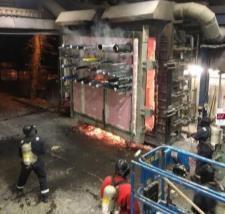
• Passive fire protection on structural steel

• Passive fire protection of openings in walls and floors



• Fire curtains and walls
• Fire box enclosures
• Clear Fire-Retardant Coatings for timber

evidenced by the explosive growth of the business over the past decade. However, the firm’s offering remains unique owed to the enormous amount of capital required to operate in such a manner.
The CEO explains: “For co-development at cost to work, you have to purchase land upfront which brings with it an element of risk. Most professionals are risk adverse and prefer to live hand to mouth, but we are fortunate to be working with a strong capital base.”
Indeed, the best evidence of the company’s successful method and impeccable track record comes from its esteemed portfolio of projects.
Take its Ridge office block series, for example. Comprising eight (soon to be nine) separate A-grade commercial office developments in the Umhlanga Ridge precinct of Durban, each block has been designed in accordance with its surrounding environment.

Ridge 7, for example, captures the views provided by the coast and
Durban cityscape with its multi-faceted facades and expansive balconies, while Ridge 8 is built to blend the green and urban spaces that surround it at ground level, doing so using perforated screens and long-spanning glazing elements that provide architectural balance.
Each of these projects have become iconic localised landmarks, a characteristic common of all FWJK’s buildings, also embodied by Illovo Point.
Totalling 15,750 square metres and home to FWJK’s own headquarters, the latter is situated on Illovo, Johannesburg’s highest point, commanding majestic views over Sandton and admired itself as a modern architectural marvel.
It is not just the company’s existing portfolio that showcases excellence, however, its pipeline comprising a number of equally exciting large-scale developments.
REO Group was established in 2014 in Durban as a light fitting supplier to various construction projects. Today we have offices in Durban and Cape Town and specialise in various product solutions.
We offer professional consultation, designs and supply of comprehensive lighting products, systems and solutions and service the entire market segment.
Architectural ironmongery
We offer comprehensive architectural ironmongery specifications and supply an extensive range of products including door handles, locks, cylinders, door controls, panic hardware, hinges and accessories.
Our smart access and security solutions provide efficient and secure spaces.
Asked to pick out a few highlights, Williams-Jones points straight to www.reo.co.za
Megapile has become synonymous with piling and lateral support in South Africa over the past decade. This is due to the dedicated and committed service we provide to our clients, including FWJK.
We provide geotechnical solutions from conceptual stage, through budgeting and planning, participation in value engineering and then final implementation.
The co- development at cost model that FWJK has developed has been a contributor to the sustained commercial market growth in KZN which has benefited the local building and construction industry. FWJK’s confidence in continuing to develop in the current market is very positive and commendable. We are proud to be associated with FWJK and congratulate them on their ongoing success in the property development market.
E info@megapile.co.za
www.megapile.co.za
We offer the following complete solutions through our business structure ACCESS & SECURITY | ARCHITECTURAL HARDWARE | LIGHTING SOLUTIONS

REO Group | info@reo.co.za | www.reo.co.za

FOUNDATION PILING
LATERAL SUPPORT

GEOTECHNICAL SERVICES
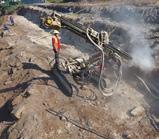


SOIL IMPROVEMENT
TESTING & ANALYSIS
FULL DESIGN CAPACITY
FOUNDATION PILING & LATERAL SUPPORT
info@megapile.co.za | www.megapile.co.za
 REO Group provides interior building systems, solutions and lighting to the construction industry.
REO Group provides interior building systems, solutions and lighting to the construction industry.
The Vogue – a 37-storey mixed-use development that’s already shaping up to be a centrepiece of Cape Town’s skyline, featuring undulating balconies sandwiched between a bustling ground floor retail complex and penthouse apartments.
“We’re also busy with 16 On Bree, another mixed-use project based in the centre of Cape Town that’s valued at just under R1 billion ($68 million),” he adds. “We’re currently constructing the final six of its 36 floors, with the entire project due for completion in September 2020.”
The firm is also set to break records too, courtesy of FWJK’s Zero 2 One Tower.
Once complete, it will be the tallest building in Cape Town, its 44 storeys set to house 1,450 micro apartments topped off with a viewing deck, while open and protected walkways will allow pedestrians access at various points along the building edge, integrating the skyrise with the urban streetscape.

FWJK is extremely proud of the fact that it has been awarded the certificate for the best developer in South Africa by PMR Africa and has also received awards for its architectural, project management and quantity surveying divisions. In the process of developing timeless buildings and continually diversifying its team, FWJK’s in-house capabilities today span a number of specialised fields. These include, but are not limited to:

It employs a fully qualified and experienced team of professional architects with a broad background and varied experience in Africa’s architectural landscape. The firm’s architectural philosophy is all about maximising building use and design cost efficiency while ensuring aesthetic significance.
Considered to the cornerstone of the company’s co-development at cost methodology, FWJK’s development managers give life to its pipeline. They identify the best opportunities to pursue, ensuring its investors receive the highest possible return on equity.
With FWJK Cost Engineers having been founded in East London in 1953, cost engineering is what the brand has been built upon, its quantity surveying skillsets providing its clientele with unrivalled services.
FWJK Project Management provides services to both the company’s own projects as well as numerous public and private sector clients in South Africa. Delivery within time and budget has become the hallmark of this practice, the company implementing the latest technologies to uphold this reputation.

Since opening its doors in 1984, Strauss Daly has grown, evolved and modernised to become one of the most prominent and progressive legal firms in South Africa. Our team of property experts has the necessary knowledge and experience to assist you with the biggest investment of your life – buying a home. When working with us, you will experience nothing but the best service at the best price during your propertyrelated transactions.
Please come and visit us at one of our branches. We will make you feel at home.
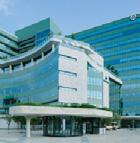
Profica is a leading property & construction solutions company in africa. We provide expert consulting services across key sectors throughout the african continent with country teams in various focus areas including project and construction management, as well as turnkey / design & build solutions.
•
Proudly involved with FWJK Developments and responsible for the following disciplines: -



Medium Voltage Installation, Low Voltage Installation, Generators, UPS’ s, Access Control, CCTV, Smoke Detection and Evacuation E-Mail-

“The beauty of our developer model is the fact that we can push the accelerator down or tap off depending on our workflow,” the Chief Exec states.
“It’s almost like a ship with perpetual motion. We’ll keep producing new developments and open up in new territories with the belief that this methodology will always capture the attention of the market.”
It is at this point that Williams-Jones eludes to the firm’s impending UK expansion, inciting confidence that FWJK will be capable of disrupting the London market in a similar manner.
“The concept is the same – instead of paying £500,000 for an apartment, we’d be able to provide the same product for just £375,000 or
£400,000,” he reiterates.
Meanwhile, in South Africa, the firm is busy working to develop a second methodology in order to capitalise on recent regulatory changes introduced by South African Revenue Service (SARS) that aims to deploy greater investment into the hospitality sector.

“This governmental strategy, under Section 12J, complements our existing model quite nicely,” the CEO affirms.
“The idea is to generate investments using tax that would otherwise be paid to SARS, recouping and deploying these finances into new hospitality products.”
Combining these diversifications with FWJK’s existing commitments, it is undoubted that the firm will become increasingly busy over the coming months as its workload continues to heighten.
Sir Lowry Square“WITHOUT OUR STAFF, WE WOULD NOT BE IN BUSINESS... WE VALUE THEIR CONTRIBUTIONS IMMENSELY, OFFERING THEM WITH THE OPPORTUNITY TO PROFIT FROM OUR INVESTMENTS AS WELL AS PROVIDING BURSARIES AND TAILORED TRAINING PROGRAMMES WHERE POSSIBLE”
We are DNKA, a multidisciplinary, client centric accounting firm.
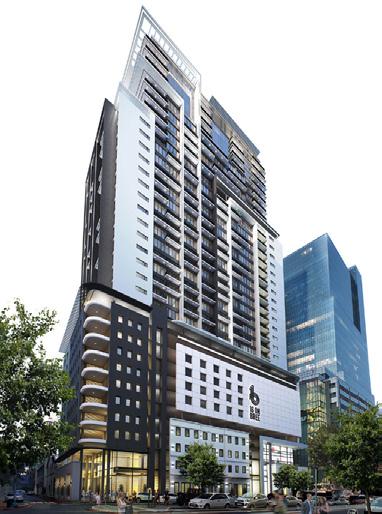



We specialise in supporting our clients with bespoke, fit for purpose solutions adding value to their businesses.


Our services include:

• Assurance,
• Accounting, • Tax,
Business Advisory.
Enviroware Construction, engineering contractors, established since 1981, are synonymous with providing HVAC+R solutions to various sectors of industry.

The staff and management are committed to project completion of technical and installed excellence; and customer satisfaction is our primary objective. Providing service excellence on project requirements through innovative, quality assured and cost effective solutions.
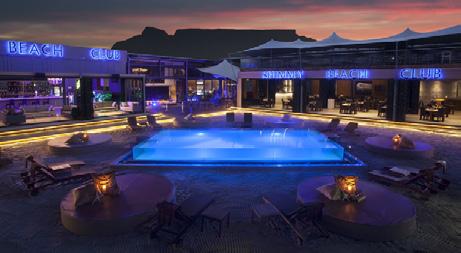

“WE’VE GOT A METHODOLOGY THAT INSULATES US TO A LARGE DEGREE FROM TOUGH ECONOMIC ENVIRONMENTS AND THE TRIBULATIONS IT BRINGS, AND FOR THAT REASON I’M EXCITED FOR THE FUTURE, WHEREVER IT MAY LEAD US”
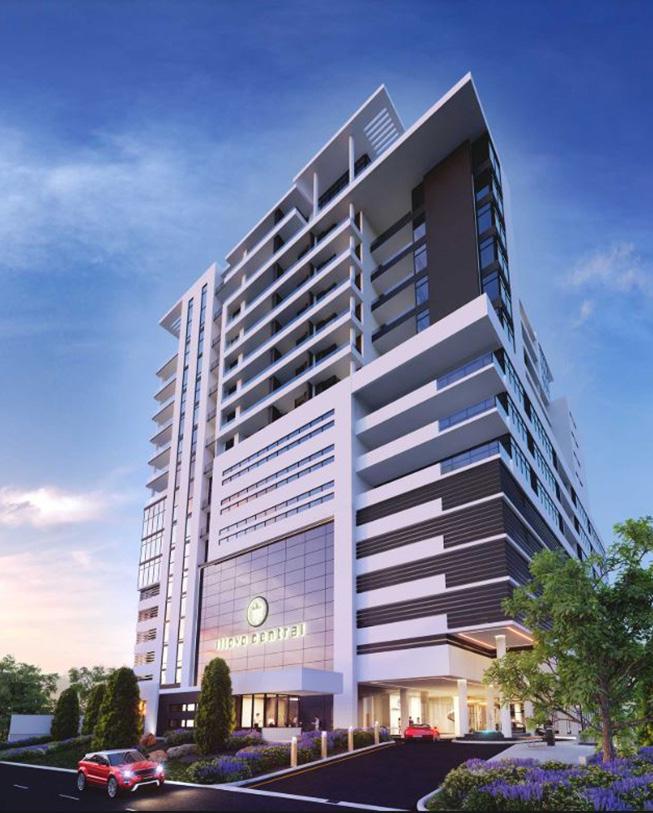
Outlook Publishing’s awardwinning in-house team is now utilising its extensive production skills to offer a full and bespoke range of editorial, design and marketing services via its new Outlook Creative Services division.

Roll-Up Serranda is a manufacturer of high-quality, custom made galvanised and aluminium roller shutters, domestic and sectional doors, servicing the commercial, industrial and domestic markets for over 70 years. With a network of distributors both locally and across
CONTACT US
FOR MORE INFORMATION VISIT: www.outlookpublishing.com/creative-services
And here, its emphasis on establishing sound relations with employees and partners alike will bear fruit.

“Without our staff, we would not be in business,” Williams-Jones states, first eluding to the former. “We value their contributions immensely, offering them with the opportunity to profit from our investments as well as providing bursaries and tailored training programmes where possible.
“Property development is a specialised field, but we’re fortunate in that we’re able to attract professionals simply by being at the coalface. We are not a quantity surveying practice contracted to a property developer – we are a property developer, which gives our employees a sense of ownership over the business’s success.
“Likewise, we choose our partners carefully and like to support those that support us with great services.
“We work with a mixture of local and international contractors,

Africa, Roll-Up Serranda offers a versatile and aesthetic product range that provides safety, security and access solutions, including specialised applications such as fire, hurricane-force winds, temperature control, access control and high speed.
Head Office Tel: +27 11 494 5809 | Fax: +27 11 494 5813
Email: doors@rollup.co.za | Website: www.rollup.co.za
Also main centres, out-lying areas & international
often working with world leaders when it comes to sourcing crucial building assets such as elevators or generators.”
Owed to the firm’s ability to lean on these two supporting pillars as its uniquely innovative co-development at cost operating model continues to gather momentum, the future looks incredibly bright for FWJK.
Reiterating the significance of milestones such as the UK expansion and completion of Zero 2 One Tower, Williams-Jones ends our conversation on an optimistic note, highlighting the company’s opportunity to take major strides both at home and overseas moving forward.
“Property development is a tough market everywhere, and generally speaking it’s been a tough year for all industries in South Africa,” he reveals. “Thankfully, we’ve had the advantage of being front and centre in the wholesale property market where there’s an
abundance of buyers and investors still looking for bargains.
“Perhaps we’ve been fortunate in our ability to carry on with projects when other profit driven developers have had to pull their horns. I think back to the economic recession in 2008, when we sold out three office buildings in three months at a time when people were declaring bankruptcy left, right and centre.
“But we’ve got a methodology that insulates us to a large degree from tough economic environments and the tribulations it brings, and for that reason I’m excited for the future, wherever it may lead us.”

Specialising in the transportation of commodities via value-added services, an extensive fleet and expansive footprint, BHL Group is helping the SADEC region to blossom both socially and economically
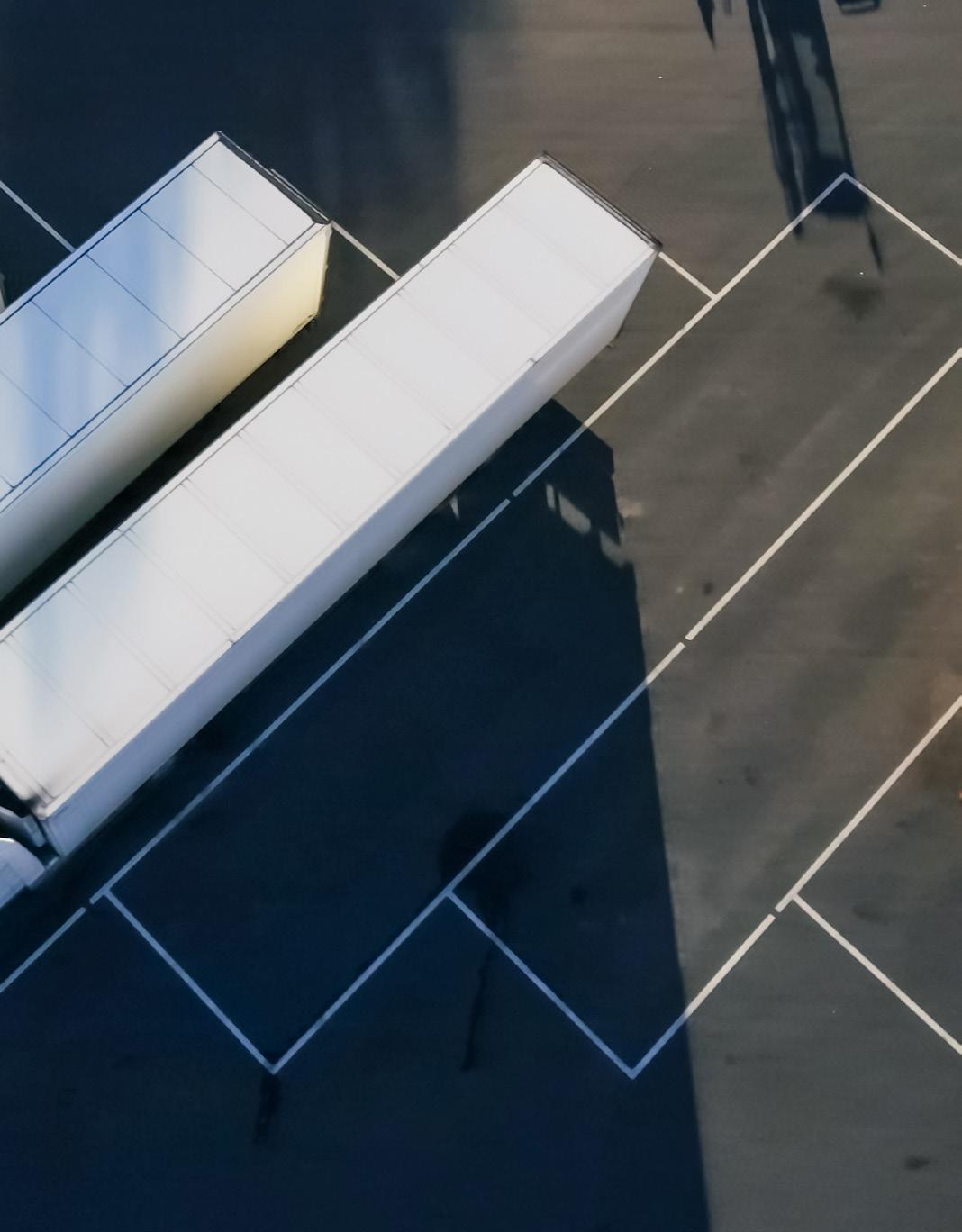
In the grand scheme of history, the fact that many of us can say we have lived through two millennia is something of a sensation.
The Gregorian calendar ticking over into 2000 was met with spectacular celebrations the world over, marking more than just another year but a global chance to make a fresh start, leave behind the mistakes of the previous century, and transition into a world of universal progress, openness and prosperity.
In Southern Africa, this opportunity was wholeheartedly embraced.
Between 2000 and 2008, real GDP for the region rose by 4.9 percent annually – more than twice the yearly economic growth seen in the 1980s and 1990s as regional construction boomed, retail flourished, investment blossomed, and telecommunications and banking thrived.
In 2000, the GDP of Zambia was $3.6 billion. Yet, as of 2019, that figure has now risen to $32 billion.
BHL Group specialises in the transportation of various commodities via value-added services, an extensive fleet and expansive footprint of six core depots. It offers total logistics solutions within Zambia, Namibia, DRC and other Sub-Saharan African countries, renowned for continually raising the standard of local transport while innovating with new solutions and methodologies.
Its portfolio of services and assets include:
100 line side tippers
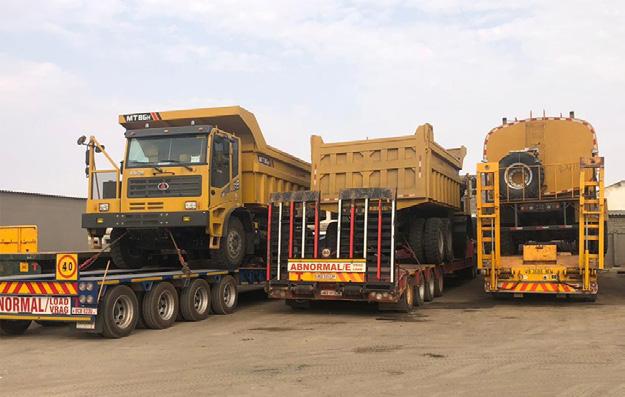
175 flat decks
70 subcontractors
CONSTRUCTION project capabilities
WORKSHOP repairs centres
MISSION: To provide optimal transport and logistical solutions throughout Zambia and Sub-Saharan Africa by combining loads, ensuring that the vehicles are optimally utilised and maintaining all stock levels on a weekly and monthly basis.
VALUES: Honesty, transparency and objectivity.
TOTAL Zambia is driven to fulfil both our environmental commitment and our promise to partners to deliver the most performance- and cost-efficient lubricants. TOTAL products help you to keep your competitive edge through efficiency and improved equipment service life.
TOTAL RUBIA lubricants can achieve extended drain intervals and TOTAL Zambia through its dedicated team of lubricant engineers who closely monitor the performance of your in-service oils. The team is well trained in the science of oil analysis and tribology. On average our customers have been able to extend fleet drain intervals by over 50 percent*.
The team of lubricants engineers are committed to reduce Total Cost of Ownership (TCO) by introducing energy efficient and fuel-saving lubricants, implementing new lubrication procedures, and changing storage infrastructure and logistics.
• Dedicated team of lubricant engineers
• Product availability in each province in Zambia through its wide network of sites
• Free oil analysis with experts feedback on performance oils
• Free delivery of lubricants to all customers
• Digital platform to access lubrication knowledge
• Dependent on the age, and condition of the engine. www.total.co.zm




The IMF, South African politicians Thabo Mbeki and Nkosazana DlaminiZuma, Chevron CEO David O’Reilly, US Treasury Secretary Paul O’Neil and celebrity campaigner Bono have all described this as the African century as a result.
And, indeed, looking at this development trajectory, it is easy to see why.
“The Southern African Development Community (SADEC) has tremendous growth potential,” declares Elrick De Klerk, CFO of BHL Group.
“Since 2000, the sub-continent has experienced significant prosperity, and for Zambia – a distribution hub perfectly situated for operators to serve various countries and ports in the region – that has been hugely impactful.”
BHL Group itself is one company that has successfully capitalised on these economic tailwinds.
Inaugurated in 2004, it has become renowned as a regional champion of
leading logistics services across the SADEC region and DRC, specialising in the transportation of various commodities, be it mining products or general cargo.
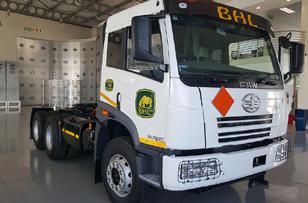
“We have a number of facilities in the region that allow us to best service our international clients,” De Klerk affirms. “We have enormous experience in adapting to changes and see ourselves as a leader that other companies in the region can look up to.”
A simple glance at the company’s fleet showcases this emphasis on best-inclass quality.
Currently it comprises 100 side tipper links with a payload capacity of up to 37 tonnes, 175 flatbed trailers with a capacity of up to 36 tonnes, 10 front end loaders and two TLB machines that combined ensure the company’s widespread coverage across two crucial logistics zones.
We create tomorrow by what we do today.
The Mount Meru Group is a business conglomerate in Africa, headquartered in Dubai, UAE, with operations in downstream petroleum business, manufacturing of edible oils, LPG, lubricants, infrastructure (real estate) and logistics along with non fuel revenue business including Bean’s Talk Café, Meru Bakers, Meru Mart, and Tiger Wheel & Tyre Fitment Centre.
With diversified employee strength of more than 5000, currently the group has presence in Tanzania, Zambia, Malawi, Uganda, Rwanda, Ivory Coast, Botswana, Mozambique, Namibia, Kenya, Zimbabwe and Congo.
www.mountmerugroup.com
Our aim is to provide heavy earthmoving machinery to the ever increasing mining and construction industry in Zambia at a reasonable rate and provide a reliable service to all our clients.
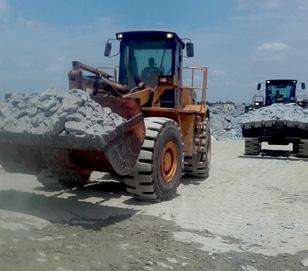
We have been in the business for over 20 years and have grown considerably since.
Our professional team is dedicated to offer to the best service possible, and this customer related approach and our team experience will ensure that you are provided the best service efficiently and successfully.
For more information about Truckmec and its services visit our website via the link below.
www.truckmec.co.zm

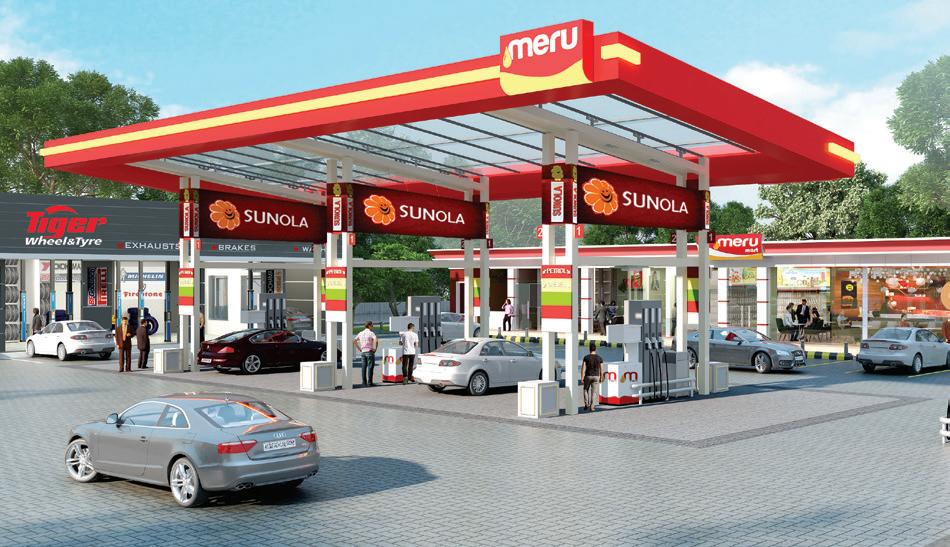





The first of these is the Zambian Copperbelt Province – the country’s resource-rich hub in which BHL serves major players such as Canadian mining company First Quantum Minerals, the operator of the Sentinel copper mine and Kanasanshi copper and gold deposit.
“First Quantum Minerals is one of the biggest mining companies present in Zambia,” De Klerk reveals. “The fact that we have been able to supply them with continued logistics solutions is testament to our ability to serve global clients in accordance with the international standards that they are used to.”
Accompanying the Copperbelt Province is Walvis Bay Corridor – an integrated system of well-maintained tarred roads and rail networks, acting as a crucial chain in the link between the Port of Walvis Bay and the Trans Kalahari, Walvis Bay-Ndola Lumbumbashi Corridor and TransOranje Corridor, providing the region’s landlocked countries with transformed
access to global markets.
“The Walvis Bay Corridor is likewise a critical part of our operation, and an area where we currently have about 60 percent market share,” De Klerk affirms.
“Logistics aside, we are also aggressive when it comes to new opportunities – we’ve developed an in-house rebuilding division that completes major repairs on our vehicles and have been busy building a new depot in Solwezi, for example.

“We always look for long-term sustainable growth and build our relationships with clients and other operators based on this principle.”
Perhaps the best evidence of BHL Group’s proactive attitudes towards diversification come from its community projects.
Here, the enterprise completed the construction of a 221-kilometre stretch of road between Kaoma and Kasempa
– a massive undertaking delivered entirely off BHL’s own back for the surrounding communities.
“Corporate social responsibility forms a large part of our work,” the CFO states.
“Stretching through Zambia’s northwestern and western provinces, this road was non-existent two years ago, but we’ve spent $4 million on its construction and maintenance to turn it into a reality.”
Indeed, this is not the organisation’s sole venture in the way of impact investment, having also collaborated with Chinese firm MeiMei to complete the construction of the Nsobe Community School Project at zero cost to the government or local community.
Focussed on offering education with employment opportunity, the school today helps to prepare numerous Zambian children for jobs, changing their lives and uplifting rural communities.
Further, the company is an equally
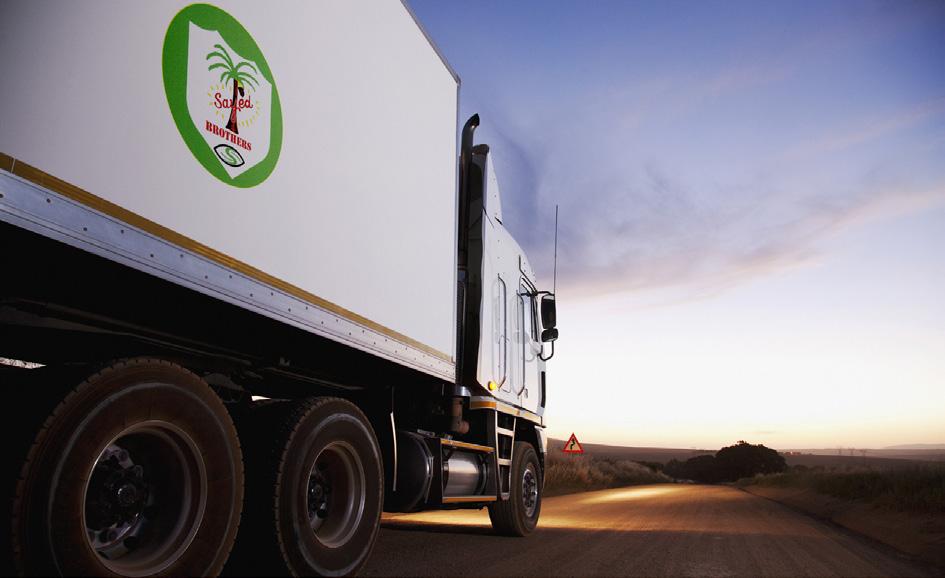






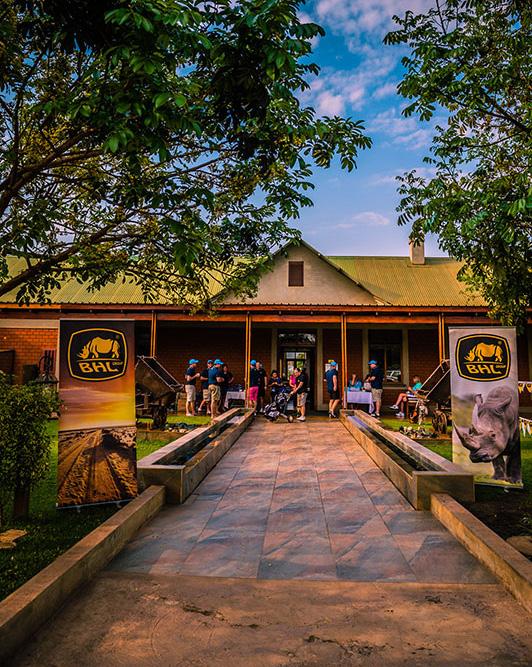
keen advocate of staff empowerment. De Klerk explains: “Our staff are very important – without them the business would not be a success.

“We try to instil a performance-based work ethic and employees that show potential are given the chance to quickly move up the BHL ladder. Likewise, we balance this against integrity, a core part of our culture, by conducting regular tests that allow our most dedicated staff to stand out and gain recognition.”
Looking ahead, BHL Group is set to take continued strides as a stalwart of local community development and unrivalled logistics services in Zambia and beyond for years to come. As talk turns to the future, the CFO highlights a plethora of investment opportunities currently being explored behind closed doors at the company in the aim of optimising the operational efficiency of its existing fleet.

“We are always considering and
evaluating new trends in the market, developing new technologies that are able to improve our service level and/ or reduce our costs,” he states.
“One major headache we’re dealing with is the empty leg issue – when a truck is running without a load.
“This in mind, we’re currently looking at new trailer designs which have the potential to enable us to transport a variety of different commodities on the same trailer, thereby reducing the number of empty legs that our trucks

complete during any given month.”
The wider aim of these investments? To further bolster BHL’s market share along the Walvis Bay Corridor at a time when the DRC is forecast to see a massive increase in copper exports over the course of the next 18 months.
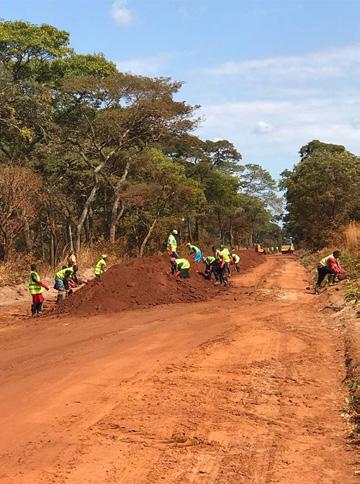
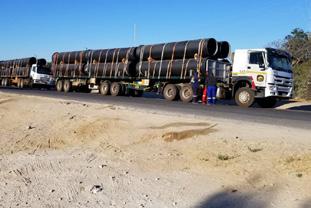
Striving to ensure that this key trade route is a primary beneficiary of this impending trade boom will be a key goal for the organisation moving forward. Yet it is not the only priority, the CFO able to cite BHL’s additional

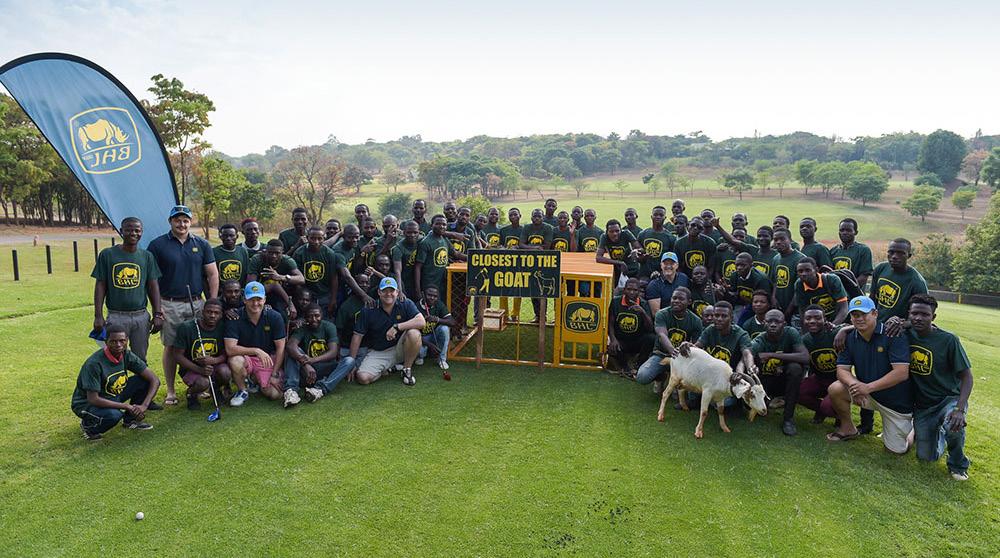
ambitions as our conversation comes to a close.
“Beyond our current scope, Botswana has always been a country that we would like to operate in, and we’re busy with a couple of projects there that could potentially start this year or next,” he comments.
“The logistics industry here is always going through change. Therefore, long term we will continue also to evaluate any major changes and always communicate with key stakeholders and
governments to make sure logistics in the SADEC region remains protected and competitive.”


How a simple idea to adapt a bicycle for local needs has transformed into a multifaceted, empowerment-driven conglomerate reaching all corners of the country
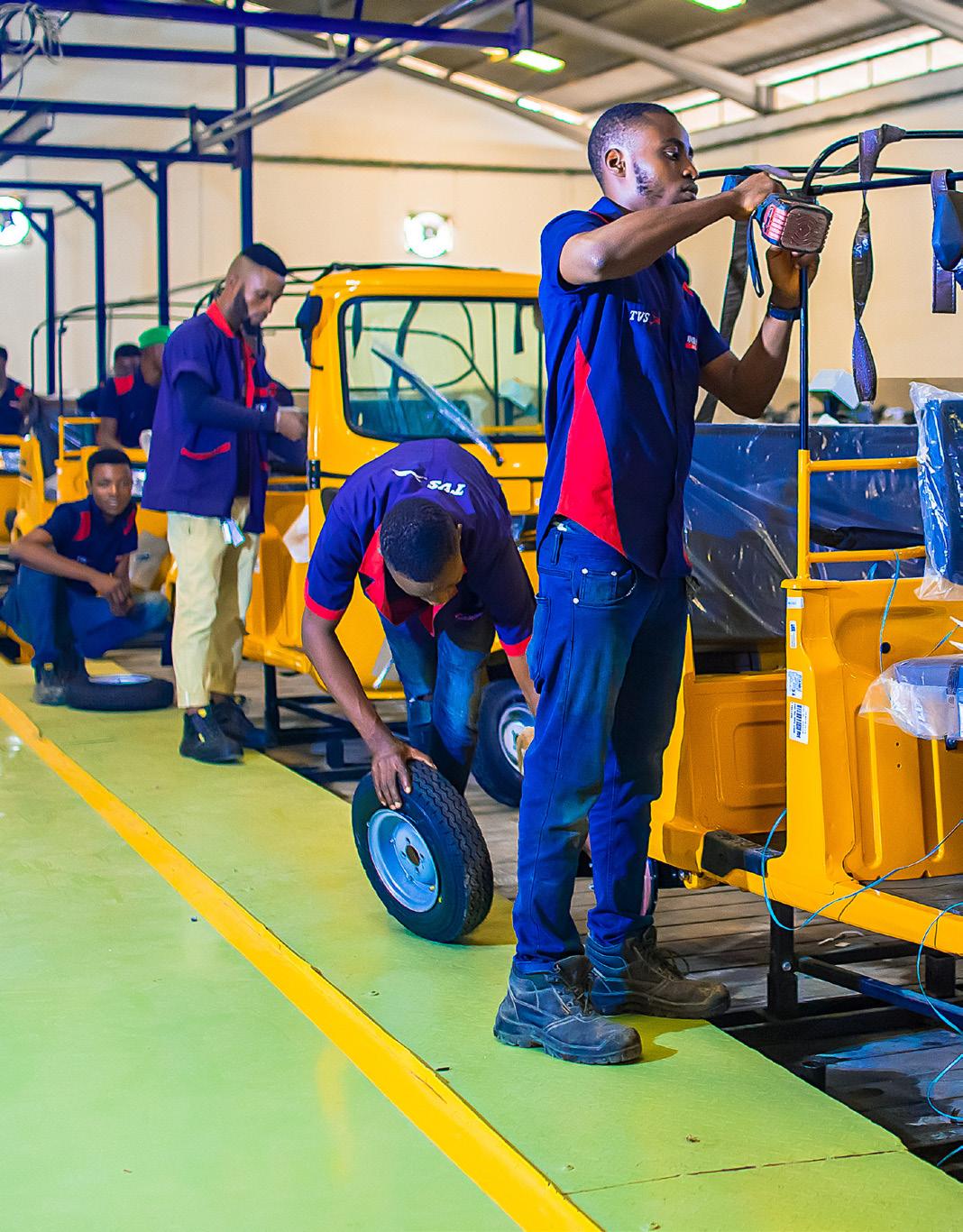




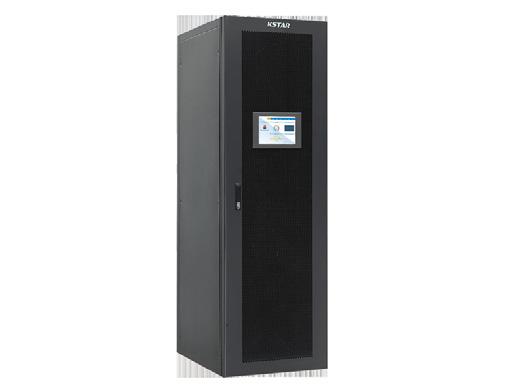
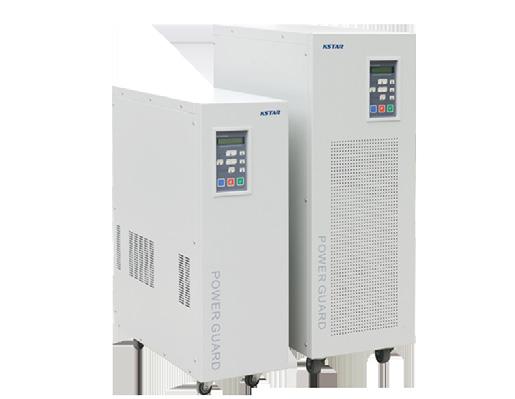
Shenzhen KSTAR Science and Technology Co., Ltd. founded in 1993, is a leading brand in power electronics and new energy products, including data center of critical infrastructure (UPS, battery, precision distribution), R&D and manufacture of PV and ESS solutions. According to the IHS Markit latest report, Kstar ranked six in the global UPS (Uninterruptible Power Supply) market and ranked top ten in the inverter market.
KSTAR has more than 3000 employees and 18 overseas branch offices in different countries since 1993. There are over 600 R&D engineers, the majority of whom have more than 16 years talented experience in inverter industry and data centers solutions. KSTAR is committed to innovation based on global customer needs. By providing smart solutions of data center and PV inverters ,as well as innovative design, KSTAR products are safer,more efficient and more reliable, easy to install, creating value for customers to achieve better ROI with higher yields and lower maintenance cost.


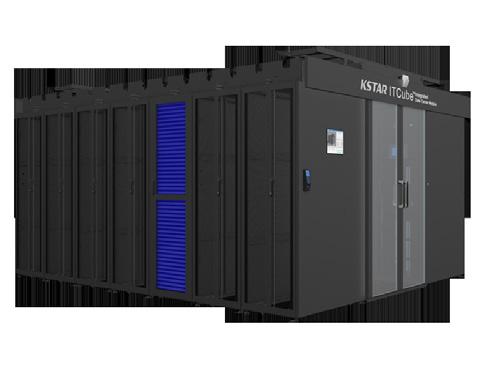

I remember the first model we co-created with our manufacturing partners – it looked so different to anything else that was being offered.
“It may have been a struggle to sell the first hundred, the first thousand… but it wasn’t long before the product, and the range that followed, gained traction and popularity. Within a few years, we took a commanding leadership position in the industry, with our five brands sharing 30 percent of the market.”
Vinay Grover is talking about the humble bicycle.
With origins tracing back more than 200 years, when Kral Drais invented the first steerable two-wheeler, it has
played a fundamental part in human mobility ever since, the simple yet effective design providing an economical, efficient means of getting around.
But even the simplest, most successful inventions can be modified for the better.
Grover is Founder and Managing Director of Nigerian conglomerate Simba Group, its multifaceted nature built on the foundation of a simple observation – that imported bicycles were not suited to Nigerian farmers.
“The average weight of a Nigerian adult differs from that of a Chinese or Indian person for whom the cycles offered here were being developed for,” he says. “The road conditions differed greatly, and so too did the
garments worn by Nigerian farmers. All these seemed to be important considerations to take when designing a bicycle.”
The quickfire success of the Simba cycle prompted Grover to explore other products that could be adapted for Nigerian tastes and usage conditions, a concept which has stayed true to the group in the 30-plus years since it was founded in 1988.
“Though we are a much larger company now than we were back then, offering a diverse range of products and solutions to the Nigerian marketplace, I think this simple, yet fundamental idea still strikes at the heart of what we do at Simba,” he adds.
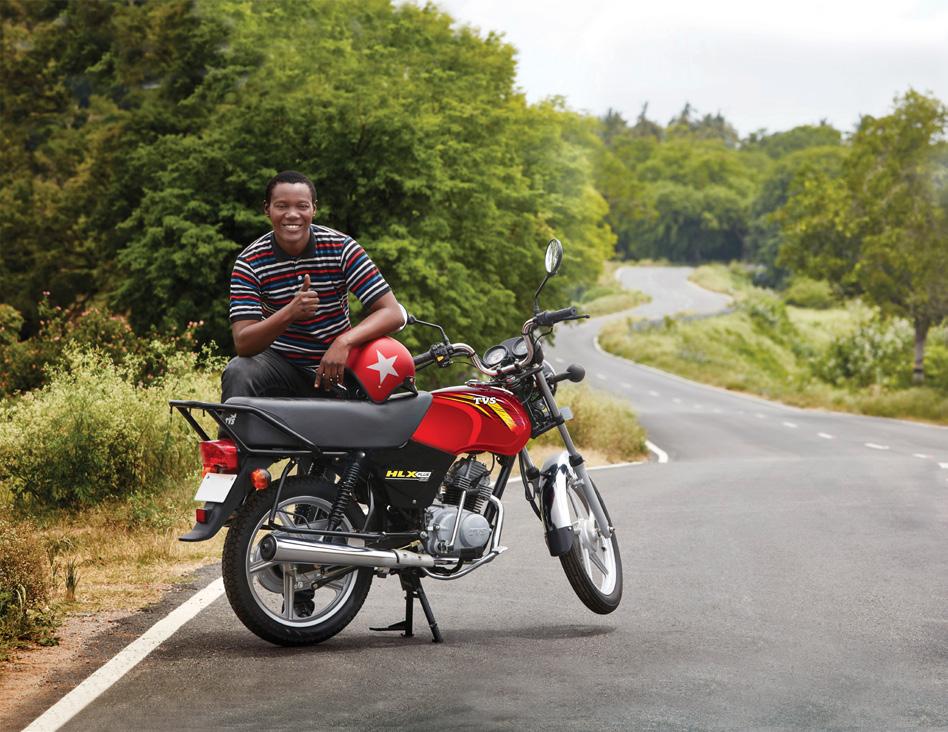 TVS HLX Plus – the best-selling Simba Group product
TVS HLX Plus – the best-selling Simba Group product
Genus Innovation is an important part of the esteemed Kailash Group, worth USD 400 million. We design, develop and manufacture various eco-friendly solar power products such as Solar Inverters, Solar Panels, Solar Power Conditioning Units, Batteries and more.


Our high-capacity inverters feature our proprietary software technology, Auto Sense Intelligent Control or ASIC, and run on superior DSP chips. ASIC enhances battery life, enables

noiseless operation, diminishes electricity bills, provides maximum power backup, is ecofriendly, and ensures fast charging.
Our advanced manufacturing facilities in Haridwar and Jaipur, and our vast network of 2000 distributors and 7000 dealers, help us manufacture and supply cutting-edge products to public and private establishments. We are exporting to 22 countries and still counting .



“We are still about offering good quality products, customised for local tastes and the operating environment, backed by dependable customer service.”
Indeed, today the company operates through a network of 10 branches across Nigeria, enabling it to extend its reach to the remotest corners of the country.
Its products and services cover a number of vital sectors, notably agriculture, energy, IT and automotive, Simba’s 1,000-plus staff working across diverse industry verticals but united by a common vision – to enrich Nigerian lives with innovative products and solutions in partnership with world class organisations.
These include the likes of TVS Motor Company, Mahindra EPC, Luminous Power and Genus, major market-leading brands which have entrusted Simba to represent, build and, if necessary, adapt their products to suit the Nigerian market.
Enriching lives is, for Grover, the major motivating factor behind the group’s success.
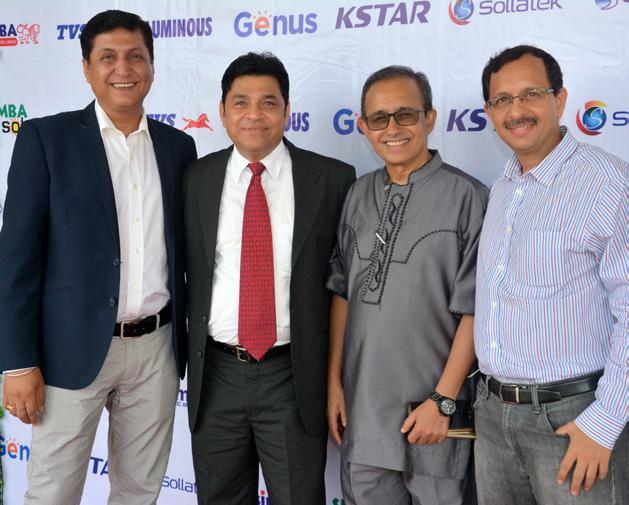
It does so in many ways, the first and most obvious being the empowering impact of its array of products, the Founder and MD highlighting proudly just some of the ways Simba is uplifting the fortunes of Nigerian citizens.
“Our motorcycles and tricycles touch the lives of millions of Nigerians everyday – taking them to work, to school, to pray – driving them, and driving the economy in turn,” Grover explains. “Our inverters and solar solutions bring light into people’s homes, and our agricultural solutions help improve efficiency across the agricultural value-chain so that that the food they eat is affordable.
“But our impact is even more direct in terms of the employment generation our products create, even beyond our factory walls.
Simba Group is a conglomerate operating across several industry verticals, its products used in energy, agriculture, transport and IT use cases, among many others.
Central to its model is partnering with market-leading brands and offering them an entry into the Nigerian market.
For instance, it represents TVS Motor Company, part of the $8 billion TVS Group, assembling, distributing and servicing TVS motorcycles and tricycles in Nigeria.
“We are also leaders in the motorcycle and motorised tricycle business, with our TVS King tricycle enjoying a commanding share of the market, and our TVS HLX motorcycle being recognised as the fastest growing model in the country,” Grover adds.
“This model was developed exclusively for the African continent, with customised modifications for each market. TVS Motor Company has sold one million TVS HLX models in Africa, and the vehicle was even featured on Amazon’s Grand Tour programme presented by legendary motoring icons Jeremy Clarkson and Richard Hammond.”
Another key brand partner is Mahindra EPC, part of the $20 billion Mahindra Group and specialist in agricultural equipment and mechanisation solutions.
Simba is also a leader in the inverter business. Here, it collaborates with Luminous (part of Schneider Electric) and Genus, offering customers respite from fluctuating power conditions by delivering always-on power.
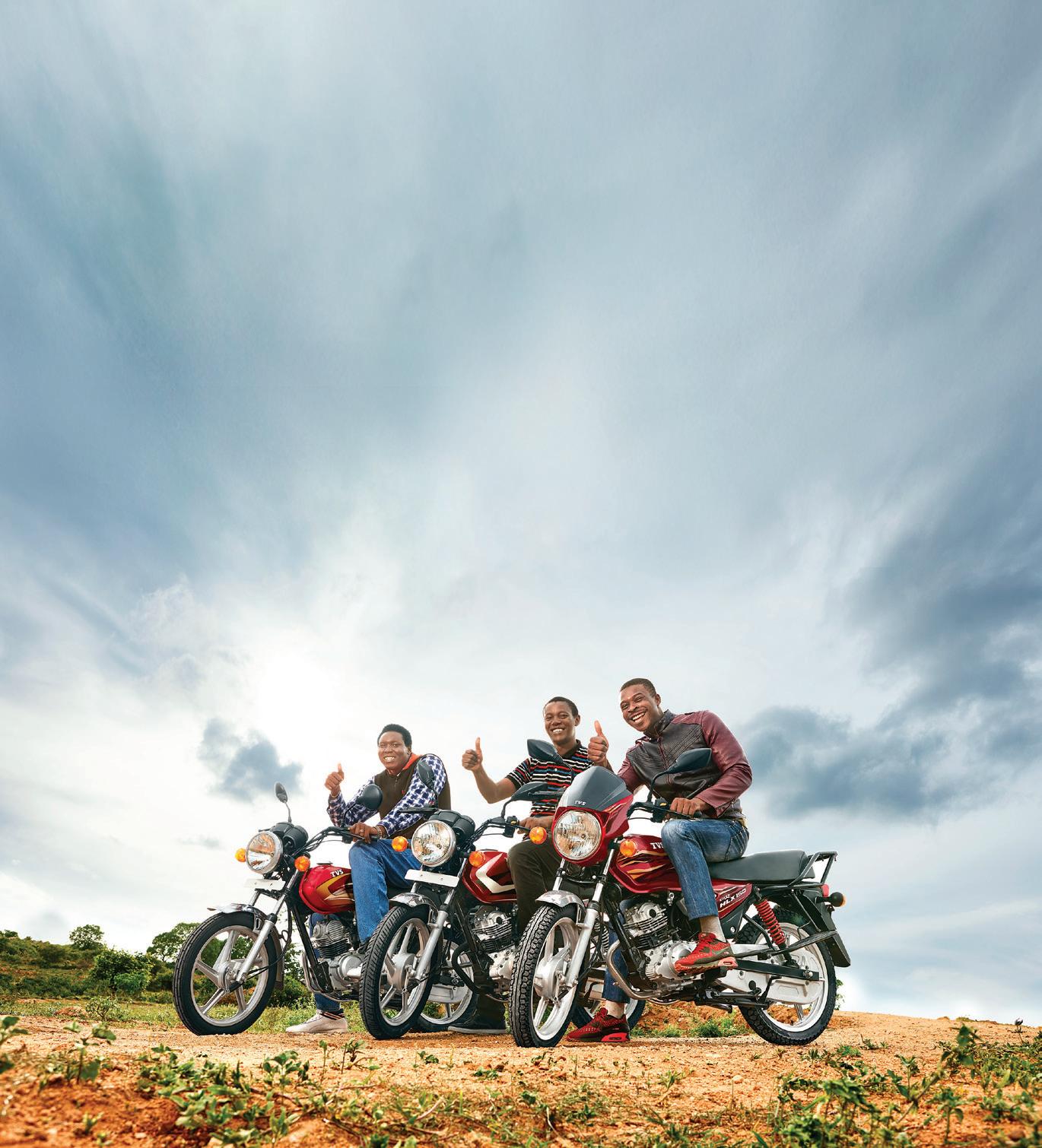
“Firstly, there are the riders of the motorcycles and tricycles which are used as taxis, who earn a daily wage for ferrying passengers to and fro. Then there are our dealers, microfinance partners and fleet owners who play critical parts in our value chain and ensure that the vehicles are made available to potential owners and investors.
“Finally, there are the tens of thousands of mechanics and spare parts dealers who repair and service our products and ensure that they are back ‘on road’ or ‘online’ as soon as possible.”
Beyond the transformative effect of its day-to-day business, Simba is also empowering communities through a sustained series of corporate social responsibility activities.
Grover identifies the Queen Riders programme as a particularly pride-inducing example, the scheme designed to promote female empowerment by
building a safe environment for them to own and ride tricycles, the company providing assistance with purchasing and safe driver training.
Another impactful initiative involves the running of health check-up camps. Here, Simba vehicle riders are invited to take part in company-sponsored health screenings for the likes of diabetes and eye problems, attendees also having their vehicles serviced free of charge at the same time.
“And of course, there’s our sponsorship and support of the Nigerian Football Federation,” Grover adds.
“We are proud to be the official motorcycle and three-wheeler of the ‘Super Eagles’ which has enabled us to not only contribute to the nation’s greatest pastime, but also bring our customers and rider community closer to the action with dedicated fan events and opportunities to meet with the players.”
A proud 100-year heritage of supporting nigerians
Union Bank of Nigeria (Union Bank) is one of Nigeria’s long-standing and most respected financial institutions, offering a portfolio of banking services to individuals, SMEs, commercial and corporate clients.
With a robust geographical network comprised of 288 service centres and over 950 ATMs spread across Nigeria, Union Bank has remained committed to helping individuals, families and businesses grow for over a century.
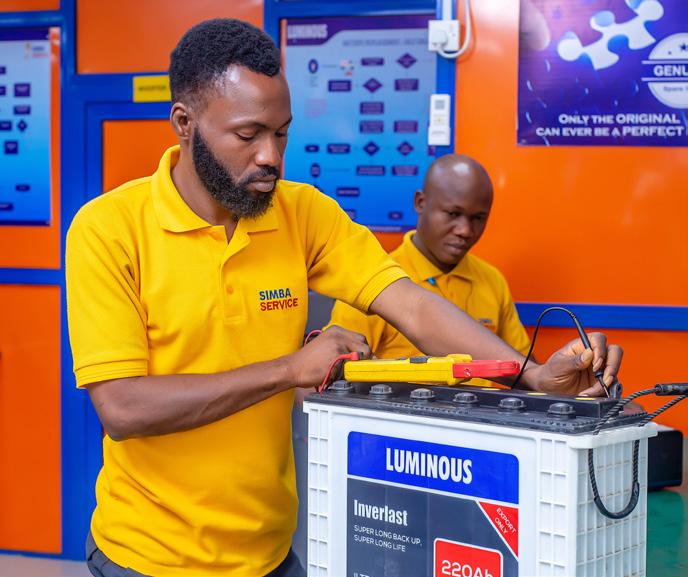
The new Union Bank
With its ambition hinged on successfully delivering against six strategic pillars – quality of customer experience, client base, talent, banking platform, professional standards and earnings – Union Bank’s goal is to be Nigeria’s most trusted provider of quality banking services. Aggressive execution of this strategy is underway, and has resulted in a marked transformation of the bank’s people, processes, technology and structures, resulting in what many refer to as ‘the new Union Bank’.
Awards and recognition
In recognition of the strides Union Bank has taken, it has received numerous awards including most recently, the ‘Excellence in Internet Banking’ award at the 2019 Finnovex Awards; ‘Excellence in Banking Innovation’ award at the 2018 New Age Banking Awards; ‘Fastest growing retail Bank in Nigeria’ at the 2017 International Finance Awards, and BusinessDay’s 2017 ‘Best bank to support Nigeria’s small and medium scale enterprises’ award.
On track to serve another generation
Union Bank remains focussed on delivering customer-driven solutions that add value and support business and personal ambitions and position it as a strong player in the Nigerian banking sector, committed to being Your Simpler, Smarter Bank.
Our world class banking solutions help our customers meet their business goals. With a heritage of over 100 years and our successful re-positioning, we deliver the simplest, smartest solutions to enable success for all our partners.

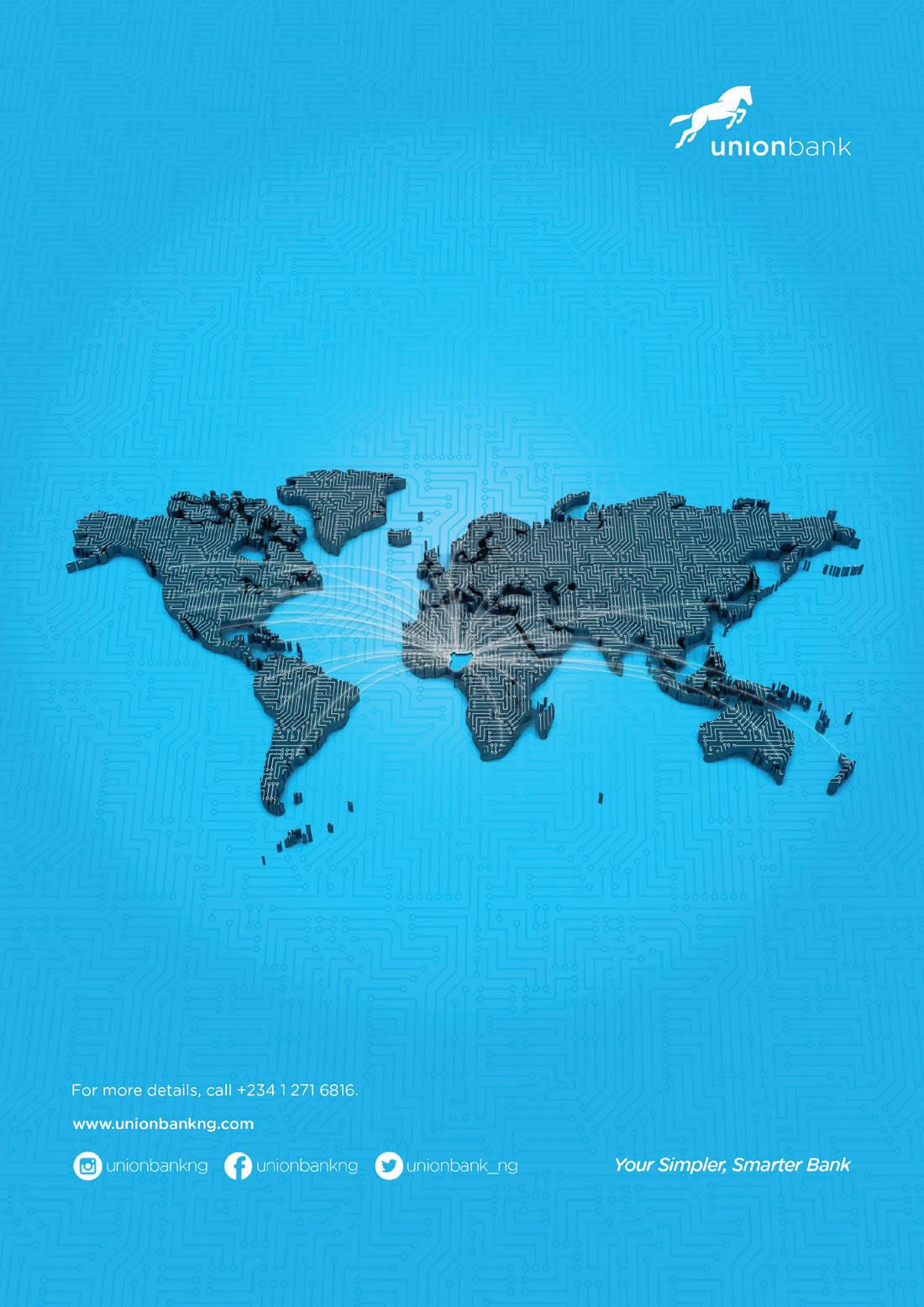
The bedrock of the Simba community, however, are the company’s staff, those inside the factory walls that Grover has already eluded to.
Indeed, this dedicated team of people create what the Founder and MD describes as the company’s point of difference – an unrivalled attention to detail in the area of customer service.
“That’s in our culture… in our DNA, if you will,” says Grover. “How do we ensure that every member of the Simba Group knows this and knows how to respond to customer issues? It’s through the importance we place on training.
“This not only includes a deep understanding of the technical parameters that define our products and services or an ability to respond to maintenance and customisation issues, but also the managerial skills that help build an ecosystem centred around providing timely, affordable and accessible service for our products.”
Grover also points to how investment in training stretches far beyond Simba’s direct employees, training which also contributes towards an enhanced customer experience.
For example, the TVS motorcycles and three-wheelers division has carried out advanced training for over 2,000 private garage mechanics from its training centre in Lagos. Another 20,000 have been trained across the length and breadth of the country, around a fifth of this activity in collaboration with the Nigerian Automotive Design and Development Council.


The group’s specialist inverter business is also busy training technicians to service its products. Known as Simba Service Kamps, these sessions have been carried out by Simba’s manufacturing partners, including Luminous Power Technologies, Genus Innovation, Kstar Power and Sollatek, covering subjects such as power protection, safety, efficient deployment and technical aspects of the products.
Such a devout commitment to building expertise within the organisation and its partner network will continue to differentiate Simba as it progresses into the next chapter of its development.

This includes exploring and expanding into new sectors, agriculture representing a key focus for Grover in 2020.
“Nigeria is primarily an agrarian economy with more than 65 percent of its population deriving livelihood out of farming,” he explains. “The country, which was once a major exporter of crops such as cocoa, cotton, ground nut and palm oil, has become dependent upon food imports to feed its growing population.
“The paradox has demanded urgent intervention from the government and participation of private entities like us to step in and contribute to the revival of the sector.”
One of the agribusiness areas Simba has expanded its offering into is irrigation, identified as crucial to
Top: Simba Den and Simba TVS Outlet. Left: Simba’s TVS Tricycles escorting the Nigerian football team to the FIFA World Cup 2018. Above: Mr Manish Rohtagi presents MVP award to Ekong William at Adokiye Amasiamaka Stadium in Port HarcourtPhilipson Global Resources Limited, a company primarily established to engage in signage production and digital printing. We print on different kinds of media such as Flex, Textiles, SAV, PVC, Tarpaulin, Mesh, window graphics and reflective films, both Front-lit & Back-lit. We offer the following products and services:
Bill boards – Front-lit/Backlit
• Uni-poles
• Vehicle Branding
• Window Graphics
• Buntings
• Labels & Stickers
• Point of Sales & Fabrications
• Display Stands & Wall Drapes
Graphic Design & Digital Photography

• Office Branding
• Company and Shop Signage
Birthday Sticker
• Wedding Sticker
T: +2348022172628, +2348067825900

E: info@philipsonglobalresources.com
W: www.philipsonglobalresources.com
operations, progress which will be ensured through increased training opportunities and establishment of a stronger presence throughout the country.
“And we will continue to pursue new opportunities which are in line with our investment philosophy, in tandem with our vision, and consistent with our values,” Grover adds in his concluding remarks.
Nigeria improving its levels of farming productivity and output.
“Today, one fifth of total farmland is irrigated, but it produces almost 40 percent of the world’s food,” Grover continues.
“To attain self-sufficiency in food production, Nigeria has no other option but to adopt irrigated agriculture on a massive scale. Currently only one percent of cultivated land here is under effective irrigated agriculture, meaning substantial room for productivity improvement exists.”
Despite the pressing need for mass irrigation, Simba is determined to support such efforts in a sustainable manner, ensuring that water resources are not overexploited for short-term gain.
And it is this longer-term, sustainable development ethos that Grover is determined to maintain moving forwards, the company primed to contribute substantially to Nigeria’s ongoing socioeconomic development across many industries.
This will be achieved first and foremost through excelling in its own
“We believe in the future of this country, and will continue to invest where we see opportunities to enhance economic development and contribute to socioeconomic improvement, whilst building value for our stakeholders.”
SIMBA GROUP

Tel: +234 (0) 815 083 2255
info@simba.com.ng
www.simba.com.ng
33, greenland street egbeda lagos Suit 26, cross town shopping mall iju road agege lagos, Alimosho, Lagos
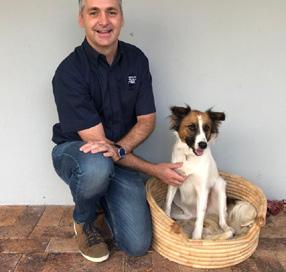
Writer: Tom Wadlow | Project Manager: Josh Hyland
Humans have long been lovers of animals.
The practice of keeping the likes of dogs and cats as pets can be loosely traced back to the early processes of animal domestication. In Mesopotamia, dogs that resemble the present-day mastiff were depicted participating in a lion hunt, while ancient Egyptian drawings often show them taking part in everyday family life.
Indeed, our relationship with such animals has evolved from a marriage of usefulness (in hunting and battle) to a labour of love, with animals of all shapes and sizes adopted by people the world over as companions.
It is also big money. By 2025, the world pet care market is forecast to hit $259 billion, a figure driven by trends such as increasing veterinary capabilities and a growing insurance market.
In South Africa, it is thought that some nine million dogs and two million cats are kept as pets.
Stephen Warner, CEO of nationwide pet care superstore Absolute Pets, is responsible for one on each of these tallies.
“I am a huge animal lover and grew up on a farm where we had four dogs and a Siamese cat,” he says. “I used to love taking the dogs for walks through the fields. Living in the city now I am restricted to just having one dog and one cat.
“Pet care retail is a unique industry in that when a customer walks into a store you know you have a common interest in the form of a love for pets, which allows for a level of engagement that you don’t get in other retail markets.
“The South African market presented an interesting opportunity in that we are a nation of


animal lovers, and while there were many pet care retailers, there was no single brand with any scale and which operated across the country.”
This is where Absolute Pets comes in. Having identified a gap in the market, it opened its first store in 2005 and has since grown its footprint to 85 outlets across Western Cape, Gauteng and Kwazulu-Natal. Warner joined in 2013, when the firm had just eight stores, the last six years representing a ramp up in the company’s growth trajectory.
Absolute Pets identified a need for an all-encompassing pet store brand in South Africa, Warner explaining how it responded to the growing trend of pet humanisation.
“Changes in the way people view their pets and how they look after their pets has been key, seeing them as a family member that also requires as much love and care as humans, often times a little more, as they are unable to ‘fend’ for themselves.
“As this perception changed so too did the demand for better products needed to take care of them and a wider range to provide for all aspects of their lifestyle. A more holistic view on pet care started to emerge and so the gap opened up for a broader range of products for pets, not just food and a bowl.
“The rise in homeless pets also increased the awareness of responsible pet ownership, and the duty we all have to care for them.”
“Our aim is to be the uncompromising champion of pets in everything we do,” the CEO adds, “whether it is carrying the best quality and value products, promoting responsible pet ownership, or the contributions we make to animal welfare in the form of donations, hosting adoption days or sponsoring fund-raising events like dog walks.”
More than 300 dedicated and animal-loving employees are responsible for the running of Absolute Pets’ stores, nine of which offer a pet spa service alongside its comprehensive range of quality food and accessory products. Here, Pet Spa Stylists, as they are known, are fully qualified cat and dog groomers who offer the full spectrum of services including washes, speciality cuts, nail clippings, ear cleaning and eye cleaning.
Customers can also benefit from the Pet Parent Loyalty programme through a cashback points system, pet care advice, and birthday vouchers for
their beloved animals.
Health is another critical area of the Absolute Pets offering.
The company partners with vets in each of the three provinces it operates in. “The partnership with vets is critical to our business,” Warner adds. “Customers come to us for advice and assistance when it comes to pet care and having access to a vet means being able to provide as much assistance as possible up to the point where the customer needs to see a vet, which our teams then recommend.
“The vets’ expertise is very valuable and critical when it comes to sharing important information with customers about the best way to look after their pets.”
As well as supporting local veterinary practitioners, the company also works with a number of local suppliers in its procurement activities, the fact the formal pet retail industry is relatively new in South Africa opening up opportunities for local businesses.
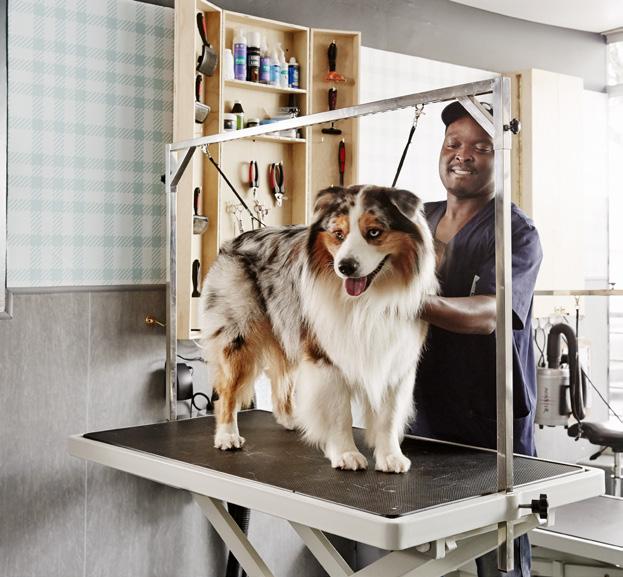
Premium
Some of our premium brands are:


- Cuthbert’s Crunchy Oven Baked Biscuit Treats

- Probono Dog Biscuits
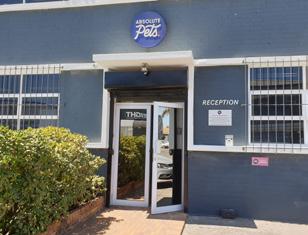



Our Treats are very nutritious. They are made with only the best ingredients selected specifically to suit the digestive system and then oven baked.
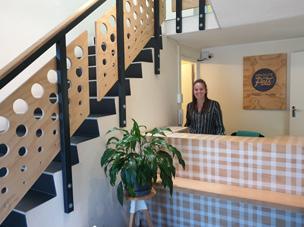
Africa Outlook issue 80 | 133 RETAIL

From new food options and accessories to insurance products, Absolute Pets continues to develop its comprehensive offering to customers. Among its newest additions are:
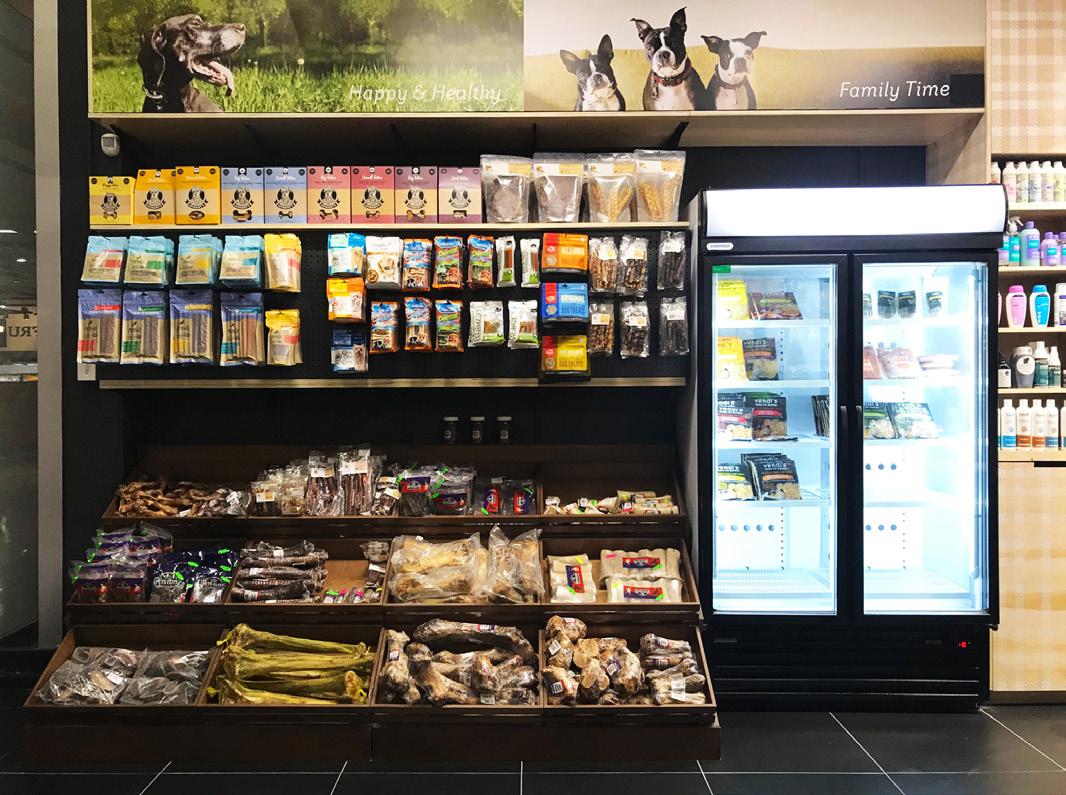
LOKUNO DOG AND CAT FOOD: Developed with top South African animal nutritionists and exclusive to Absolute Pets, this range of food contains very high levels of protein with chicken as the predominant ingredient. It is manufactured locally, supporting local businesses, and is available at a competitive price versus brands offered in supermarkets. In addition, it has a welfare element whereby R1 of every bag of pet food or box of cat pouches sold is donated to animal welfare initiatives.
OLLY & MAX LIFESTYLE PRODUCTS: A range of high-quality lifestyle products and accessories that combine function and style. Includes unique bowls, bamboo grooming brushes, a catnip range, leather collars and leads, outdoor accessories like water bottles and biodegradable poop bags.
PET INSURANCE: A range of insurance grades (Pet Accident Cover, Classic and Premium Cover) for cats and dogs, the Premium Cover category being the most comprehensive, providing cover for routine care which includes tick and flea treatment, annual vaccinations, teeth scaling and polishing, sterilisation and annual check-ups.
“Suppliers are key to the success of our business and our aim is to develop strong relationships with these partners,” explains Warner. “It is obviously critically important that the highest quality standards are adhered to throughout our supply chain but also that newness and relevance is offered to our customers.”
Evolving the way in which products are offered is also critical in remaining relevant with consumers.
Much like other strands of the retail industry, the pet category is moving increasingly online as owners seek more convenient ways to shop for their animals.
In order to remain at the forefront of pet retail in South Africa, Absolute Pets continues to evolve
its ecommerce wing, its online store providing a number of alternatives to traditional modes of shopping.
“Pet retail lends itself well to ecommerce in that the products, particularly food, are bulky and the buying habits are generally quite regular,” says Warner.
“Our online store is easy to use – we offer home delivery in three working days, and free delivery for orders over R500, and a central point of contact for queries. We are also about to launch our ‘click-and-collect’ and subscription services to offer even more convenience to our customers.”
This is not to suggest that in-store services are in any way being overshadowed by the rise of online.
Human service remains a key differentiator for Absolute Pets thanks to its well-trained and passionate

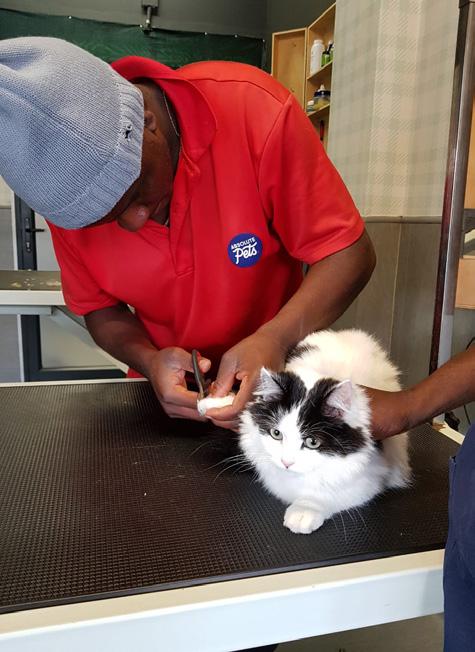
employees who are on hand to offer friendly advice to those customers who do venture into their outlets.
Training is taken extremely seriously, each member of staff provided with practical and online tuition which includes being educated by the vets who work in partnership with the company, as well as direct meetings with product suppliers.
This setup will be key as Absolute Pets looks to expand its footprint even further in 2020.

Warner is targeting another 15 to 20 store openings over the next 12 months, his concluding statements reflecting on what is becoming an increasingly competitive and challenging market to thrive in.
“We expect economic conditions to remain tough in SA and the pressure on the consumer will be high, so in
essence the pie will be smaller and the number of participants bigger,” he says.
“However, that said, I am confident about our plans to grow and remain the ultimate champion of pets. We saw early the opportunity to give the South African pet lover well-presented and professionally run stores which could enhance their shopping experience, and will carry on doing so.”
Tel: +27 (0) 21 510 0897
info@absolutepets.com www.absolutepets.co.za

Riaan Maree and his brother Jaco Maree founded WIRUlink with the vision to better connect South Africans. A decade on and that vision is well and truly realised

Since my childhood I have been intrigued by all things related to technology. I started assembling, selling and repairing computers from the age of 12.
“After finishing school, I went in full-time to look after the complete IT infrastructure for a few SMEs with anywhere between one and 50 computers. Working only on referrals, the company quickly grew to a stage where I had to employ more staff to keep on offering honest IT support services to the growing customer base.”
Riaan Maree was destined to play a protagonist’s role in South Africa’s connectivity story.
“Service levels in South Africa are not up to standard and IT professionals are generally not business focused, and businesses and homes alike often have no internet or phone lines because of copper cable theft,” he continues.

“I started testing long-range outdoor wireless equipment to keep our office online and not be impacted by cable theft. Soon our customers, businesses and homes asked if they could also get internet access and phones via wireless. This led us to realise that there is a massive demand for alternatives to ADSL.”
Inspired to make a positive impact and set the standard for African IT leaders on how to conduct ethical business, the entrepreneur teamed up with his brother Jaco to form WIRUlink in 2009 after something of a eureka moment.
Today WIRUlink stands as a fully licensed national network infrastructure and service provider, offering internet and telephone services to thousands of businesses and home users via its own fibre and carrier grade last-mile wireless network infrastructure.
Maree’s motivation? To influence millions of people’s lives, including staff, suppliers and customers, for the better.

Indeed, the CTO knows all too well the empowering impact an internet connection can have, not least in opening up access to the world of information and means to self-teach almost any skill.
“My official qualification is Matric, or high school grade 12,” Maree adds. “I do not have any tertiary education or qualifications, but I had access to the internet from an early age and could read up and learn about any topic of interest to me.
“Internet access is vital for the development of South Africa, and it is essential to ensure there is healthy competition between network providers to increase levels of service and reduce costs. Government can play a big role through drafting business and telecommunication regulations and subsidising access to the internet for the poor.”
The last decade has seen WIRUlink develop what is now one of the largest fixed wireless networks of its kind in South Africa:
TOWERS: >100
CUSTOMERS SERVED: >10,000
EMPLOYEES: >100
SUB-CONTRACTOR NETWORK: Approx. 50
STANDARD UNCAPPED SPEED: Up to 50Mbps per customer
The company offers a full suite of connectivity services, including wireless internet, business fibre, home fibre, voice, hosted PBX, VPN and hosting.
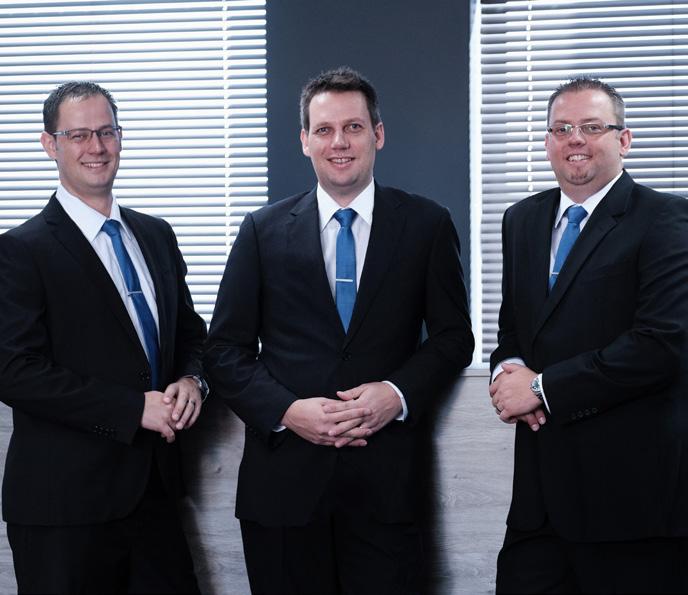
With the latest spate of freight looting and fleet attacks bringing the South African commercial vehicle industry under the spotlight, fleet owners are increasingly needing efficient solutions to address new and existing safety challenges.
“In the short-term, solutions like sharing alerts on crime and hijacking hotspots, certainly can help alleviate the problems that the industry is facing. However, having the right tech tools at their disposal will not only help fleet managers take preventative measures to avoid landing up in dangerous situations in the future, but also improve the operational efficiency of their businesses going forward,” says Justin Manson, Sales Director at Webfleet Solutions.
Fleet owners bear the brunt of rising fuel costs in South Africa, and businesses therefore need to proactively address the issue of fuel efficiency and how to achieve this.
Using route optimisation technology will shave off a considerable amount of time spent on the road. This will not only ensure drivers take the best and most direct routes to their destinations but will also calculate the best route schedule that drivers need to make in the day. Real-time maps can also prove useful when it comes to cutting down on travel time and, by extension, help drivers avoid delays as a result of heavy traffic.
Security has become a major concern for the commercial vehicle industry. Real-time vehicle tracking is a useful tool that allows managers to monitor their drivers’ whereabouts at any point, making it easier to respond to security breaches quickly. These tools also allow users to plan safer routes that avoid high risk zones.
The commercial vehicle industry may face its fair share of challenges – from temporary disturbances to issues affecting business operations – but the right technology can address these challenges and help streamline efficiency in businesses.
Since our launch 20 years ago, we’ve grown to become a global leader in telematics, helping over 50,000 businesses manage vehicles and maximise productivity. Having recently been acquired by Bridgestone, we now change our name from TomTom Telematics to Webfleet Solutions. Our goal remains the same: to innovate fleet management and build the future of mobility solutions.
Let’s drive business. Further.


Yealink is a global brand that specialises in video conferencing, voice communications with best-inclass quality, innovative technology and user-friendly experience.
As one of the best providers in more than 140 countries and regions, Yealink ranks number one in the global market share of SIP phone shipments.
As for Yealink’s enhanced DECT solutions W80B, it supports stable and seamless roaming in large indoor and outdoor spaces with up to 100 parallel calls. Besides that, W80B also supports multiple existing terminals, such as headset, VoIP phones, Yealink CP series, etc.
Distributed in Africa by Even Flow Distribution www.yealink.com
For WIRUlink the objective is clear – to meet the current and future telecommunication needs for everyone, from homes to businesses of all sizes, and to become the preferred service provider in South Africa while acting with integrity and honesty.
A quick glance at the company’s presence today, and it is clear to see momentum is gathering towards such an end.
Starting out over a decade ago as a garage-based startup, WIRUlink is now operating one of the largest fixed-wireless networks of its kind in South Africa, its team of 100-plus staff and 50-plus subcontractors servicing more than 10,000 customers around the country.
Many mobile network operators (MNOs) and other network providers are realising the value in renting colocation space on WIRUlink’s wholly owned and managed towers, of which there are now more than 100
WIRUlink began life as a startup in a garage, and has since grown into a leading fixed-wireless network provider with more than 100 towers deployed


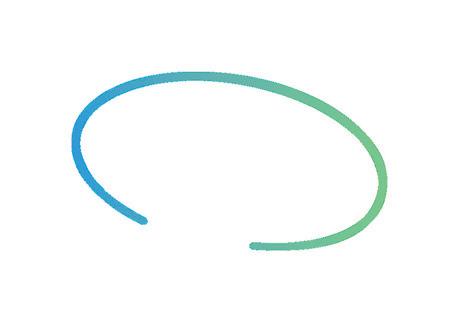





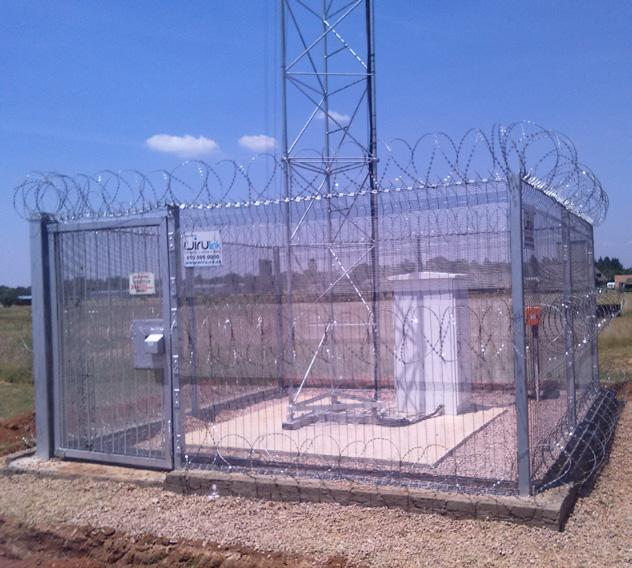

Riaan Maree: “To stay ahead of the competition and have clear strategic plans for the future, we make sure that we keep a very close relationship with suppliers and equipment vendors. We attend a lot of local and international trade shows, test alpha versions of new technologies to be released in the future and communicate our needs to vendors.
“You are only as good as your people, and in this case our people include trusted contractors and channel partners. Contractors and channel partners are, in certain instances, the face of the WIRUlink and RUSH Network brands. It is therefore important to make sure that we put ourselves in their shoes when structuring procedures, remuneration, training and the like, so they can be successful while growing with us.”
in operation and just under 200 in various stages of permitting.
For Maree, this growing uptake is proof that wireless is the way to connect all corners of South Africa.
“Although there has been a ‘fibre hype’ over the last decade, people are starting to realise that fibre connectivity is not economically feasible to deploy everywhere, and therefore the majority of Africans will not get access to fibre in the next decade or two,” he explains.
“The rapid advancement of wireless technologies allows networks like WIRUlink to offer fast, reliable and affordable internet where fibre network operators cannot.”
This prompts the CTO to highlight a number of recent landmark achievements, the first coming in early 2019 when the company became the first national fixed wireless operator to offer uncapped wireless internet at speeds of 50Mbps for an affordable price.

In October 2019 WIRUlink launched the open access RUSH Network, enabling other internet service providers (ISPs) to utilise WIRUlink’s infrastructure to create and white label their own fixed wireless products for deployment across the wide coverage area.
“The RUSH Network is getting a lot of attention from major South African ISPs,” Maree says.
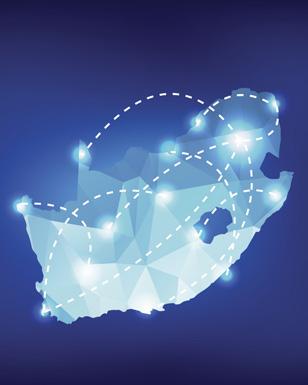
“Our in-house software development and network engineers are constantly adding more features to the web portal and APIs where ISPs can have full control and visibility into the network. This allows them to offer better first-line support to their customers and really treat the network as if it’s their own.”
Leveraging the power of the RUSH Network is a key priority for the CTO and WIRUlink moving forwards, no better demonstrated than by their plans to expand network coverage by a massive 70 percent through 2020.
Maree also reveals that the firm’s property and tower acquisitions team is currently securing land leases for approximately 1,500 new towers over the next two years and almost 200 towers are currently in various regulatory approval stages across South Africa for use by the RUSH Network and/or other MNOs.
This will enable the company to onboard and add to the success of even more South African ISPs, which in turn will help to connect previously unconnected parts of the country and contribute enormously to socioeconomic development.

Such is the ambition, Maree wants to expand the network nationally, the details of these plans being kept under wraps while WIRUlink ensures it has the necessary technical and logistical
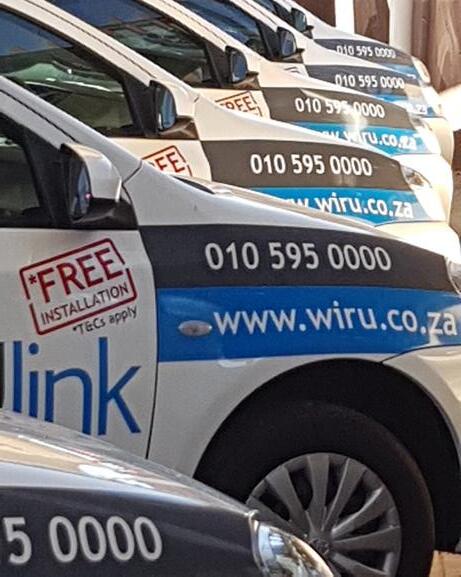
foundations in place, essential if it is to maintain its renowned high service levels.
And it is on this note that Maree bases his concluding remarks, signalling what he believes will be the start of a new era of South African connectivity, one that is largely driven by wireless.
“The demand for good connectivity is huge,” he says, “and a big part of the population is being neglected by fibre
need to step up and address the growing digital divide.”

“THE DEMAND FOR GOOD CONNECTIVITY IS HUGE... AND A BIG PART OF THE POPULATION IS BEING NEGLECTED BY FIBRE NETWORK OPERATORS”
March 17-18 | Lagos, Nigeria | www.securexwestafrica.com

SECUREX WEST Africa is the most established and only dedicated security exhibition in West Africa encompassing fire and rescue, commercial, perimeter, homeland and cyber security.
The 2019 edition of Securex was the most successful yet. In 2020, we are expecting Securex to grow even larger with the exhibition celebrating its 10year anniversary. See more than 100 exhibitors over two days and join over 2,500 professionals from more than 20 countries.
Securex West Africa takes place at the purpose-built exhibition venue, The Landmark Centre, on Victoria Island on March 17-18. The event is held in Lagos, the commercial capital of Nigeria and indeed West Africa.
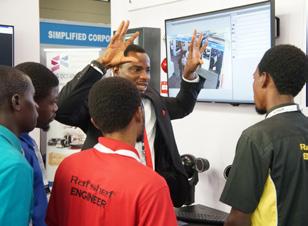
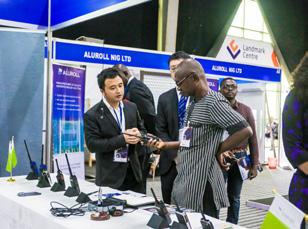
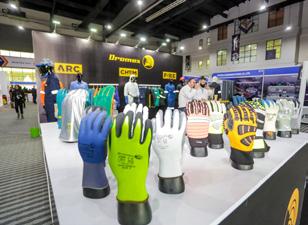
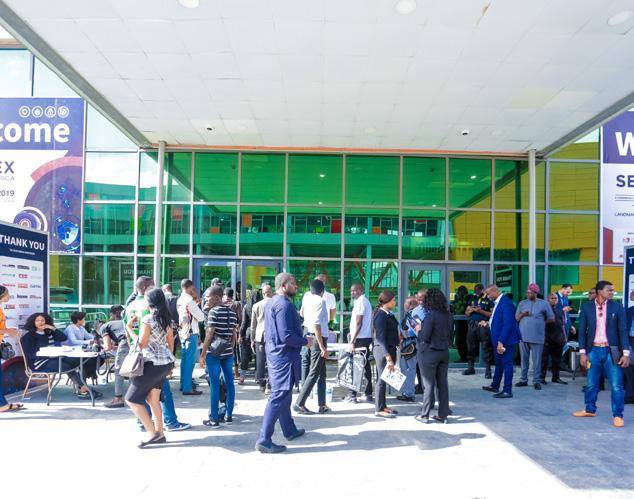
A high-level conference will be running alongside the exhibition and
the programme will include technical classes, presentations and panel discussions hosted by industry-leading minds from across the region, as well as international names. The conference is created in close collaboration with leading industry associations, commercial partners and ministries to ensure its relation to the most relevant and vital for West Africa.
2020 will also welcome back West African Cyber Security Summit (WACSS) once again. A full day is dedicated to this high-level conference that will focus on analysing the most effective methods of cyber protection, including growing threats posed by new technology such as the internet of things, - up to 300 cyber security professionals from within the region will be in attendance.
Securex West Africa 2020 will also
see the return of Firexpo, a dedicated fire and safety pavilion, that will be running alongside the exhibition. This will be a good opportunity for business owners to explore overlapping interests in fire and safety, as Firexpo will be concentrating on these sectors.
With sister events Securexpo East Africa and Securex South Africa, Securex West Africa is part of a bigger brand and guarantees to deliver an international trade platform for its visitors and exhibitors. Discover the prominent issues affecting security, hear industry experts and leading brands as they share insight and key knowledge to strengthen your security measures.
2,500+ VISITORS 20+ COUNTRIES 100+ EXHIBITORS BROUGHT


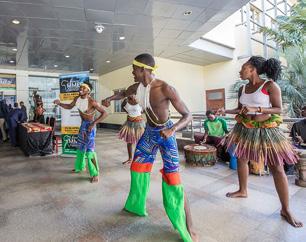
SINCE 2008, the Mozambique Mining, Oil & Gas and Energy Conference (MMEC) has been covering the key developments, policies and projects in Mozambique’s extractive industries.
It has become an important networking platform for all stakeholders by showcasing the huge opportunities in the Mining, Energy and Oil & Gas sectors and their ramification on the national economy.
With over 400 participants originating from Mozambique’s mining, energy, oil and gas industries, MMEC presents a unique event that connects the main stakeholders of these sectors. The conference features a dedicated
networking platform that allows you to maximise your participation.
MMEC gathers the most influential stakeholders – financiers, investors, national and international operators, government officials, etc. – in Mozambique’s mining, oil and gas and energy sectors.


Attending MMEC will grant you access to the major league players who are active in these sectors. You will also benefit from the knowledge presented in the focused conference stream. This is what makes MMEC an important asset in establishing your investment strategy in the country for the next two years.
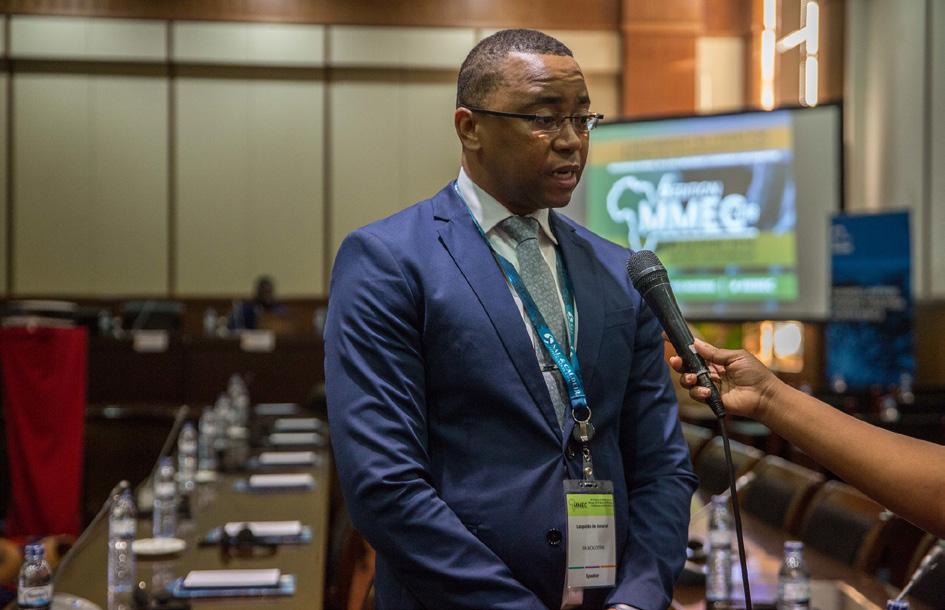


April 28-29 | Gaborone, Botswana | www.bwminingandenergy.com
BOTSWANA MINING & Energy
Expo and Conference (BME) is the region’s latest international mining and energy gathering of top mining, energy and power executives, representatives of regional executive authorities, investors, banks, industry associations, service companies and equipment producers for two days of networking, knowledge sharing and business matching.
Supported by the Botswana Chamber of Mines and other key Botswana Mining and Energy stakeholders, this event comprises two whole days of conference with a free-to-attend exhibition, hosting the region’s leading mining, energy and technology pro-

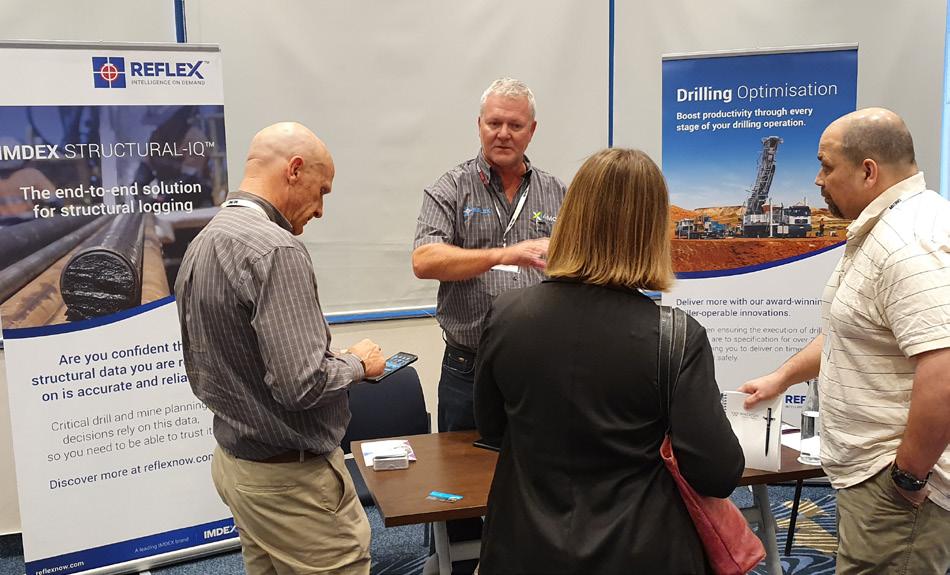
viders and post-conference site tours.
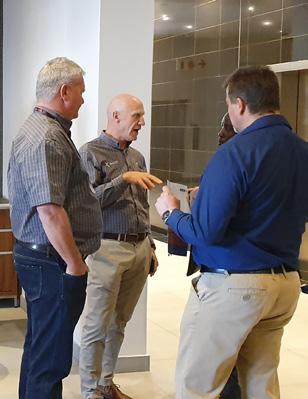
The event focuses on the mineral resources, renewable energy opportunities, challenges and perspectives.
The event addresses the new direction for the mining and energy industries to move forward, presents market investment development options, enhanced government policies and new regulations.
With over 30 exhibitors and 400 attendees, this is your one-stop expo for product demonstrations and networking.
Join us to harness the full potential of Botswana’s mining and energy sectors.

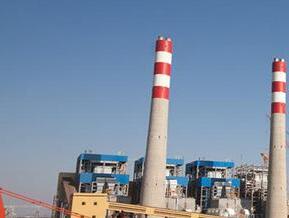

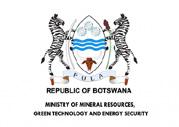

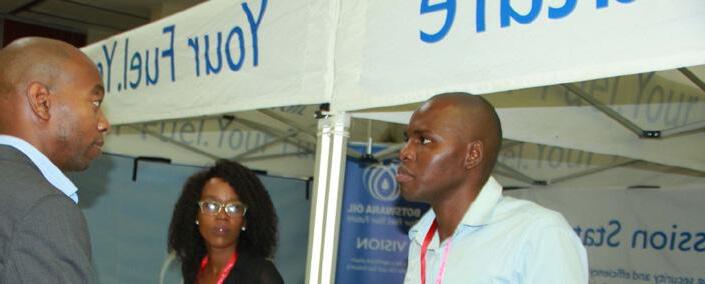
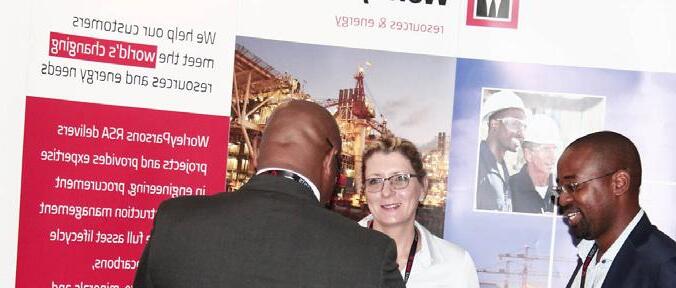

 Aleem Manji Owner, Aleem Manji Architects
Aleem Manji Owner, Aleem Manji Architects

“Profit, I suppose. The basic premise of any financial endeavour. Aside from that, I feel a successful business must also attempt to be the very best version of itself. Every business in every market undergoes challenges. These challenges come in many diverse forms, but at their very basic level, need to be surmounted. How these are tackled defines the business, and if the business manages to surmount these challenges, while still maintaining its core identity and principles; while delivering a product or service that surpasses expectations; while turning a profit, then I would classify it as a successful business.”
Lina Githuka Managing Director, Kenya Wine Agencies Limited

“Clarity of purpose. Being agile enough to withstand and adapt to business disruptions in dynamic and fast changing environments. A successful business is underpinned by
sound processes and systems. Ability to craft a better future underpinned by motivated people in the right roles. Contributing to sustainable development as well as recognising the business’s responsibility to reduce harm.”
Vinay Grover Founder and Managing Director, Simba Group
Founder and Managing Director, Simba Group
“I have always believed that besides a stated vision and wellarticulated mission, companies need a clearly defined set of core values to be successful. All companies start off being managed by their founder or founding members. Eventually, without the founder available for every decision that needs to be taken, the professionals who manage and lead these businesses need to be able to make calls that are in line with the company’s vision, mission, strategy, culture and most importantly, values. “Defining these values are not difficult – they should just be an extension of the founder’s own values. Articulating them can be challenging, and truly relying on them can be difficult. But if
you can do that and provide value to all your stakeholders – your customers, your employees, your shareholders –I think you can begin to consider your business successful.”
CTO and Co-Founder, WIRUlink

“Problems need solutions and the world is full of problems that can be solved. Entrepreneurs need to build businesses that address real needs, not nice-to-haves. Once you are solving problems, make sure that you keep on improving your products and services all the time. Looking at history, you will see that very few of the top 10 international companies from 50 years ago are still relevant today. They went into a comfort zone, stopped innovating and improving their products, causing their competitors and new technologies to overtake and crush them.”
Are you a CEO/Director with a company story to tell? Contact Africa Outlook now!
To round off each issue, we ask our contributing business leaders for their views on the same question






Complementing the production of Africa Outlook, Asia Outlook and EME Outlook magazines, Outlook Publishing’s award-winning in-house team is now utilising these same specialist production skills to offer a full and bespoke range of editorial, design and marketing services via its new Outlook Creative Services division.
For more information on how we can work with you in providing a plethora of completely flexible and customisable production services, please visit: www.outlookpublishing.com/creative-services
DESIGN:
Stephen Giles +44 (0) 1603 959 656 steve.giles@outlookpublishing.com
Devon Collins +44 (0) 1603 959 661 devon.collins@outlookpublishing.com
EDITORIAL:
Tom Wadlow +44 (0) 1603 959 657 tom.wadlow@outlookpublishing.com
Jonathan Dyble +44 (0) 1603 959 660 jonathan.dyble@outlookpublishing.com